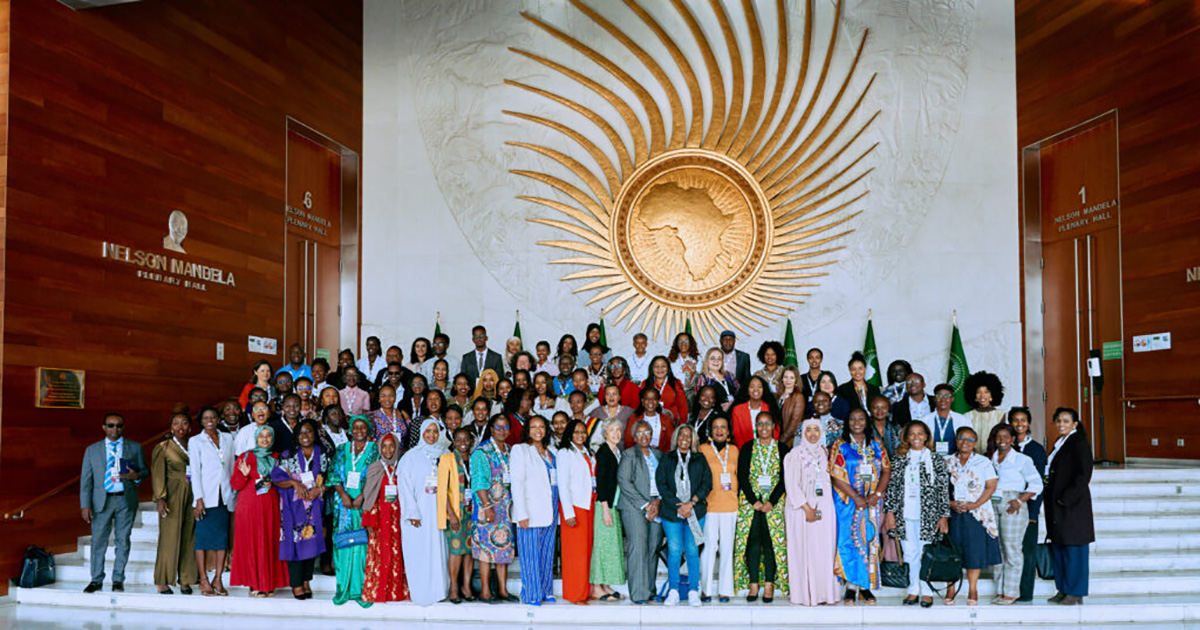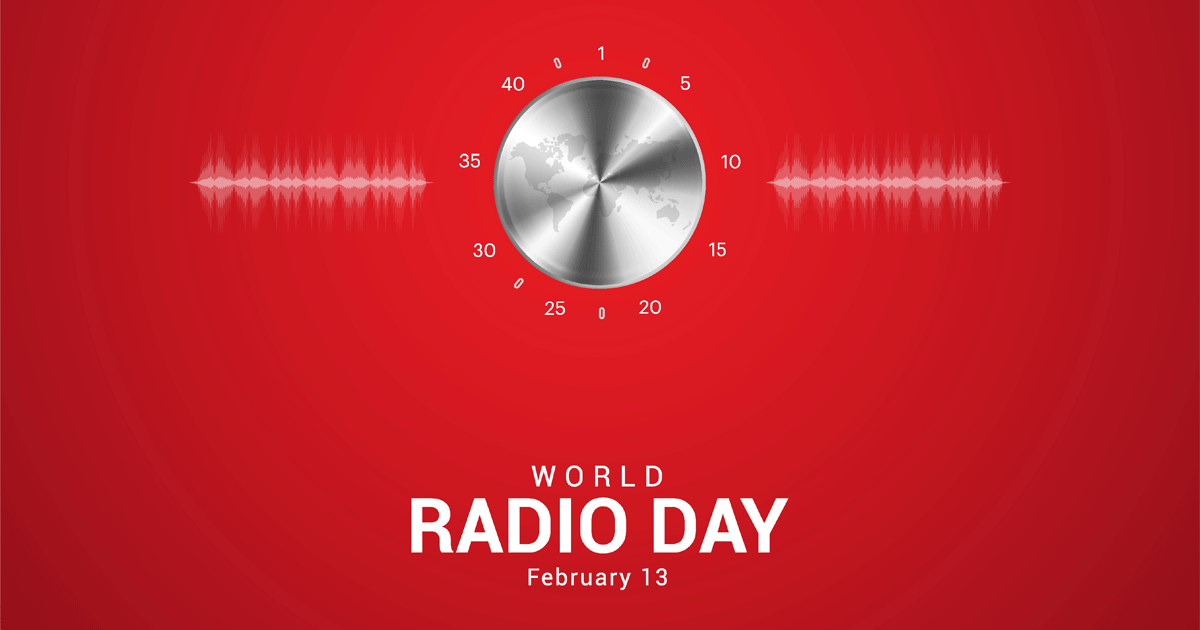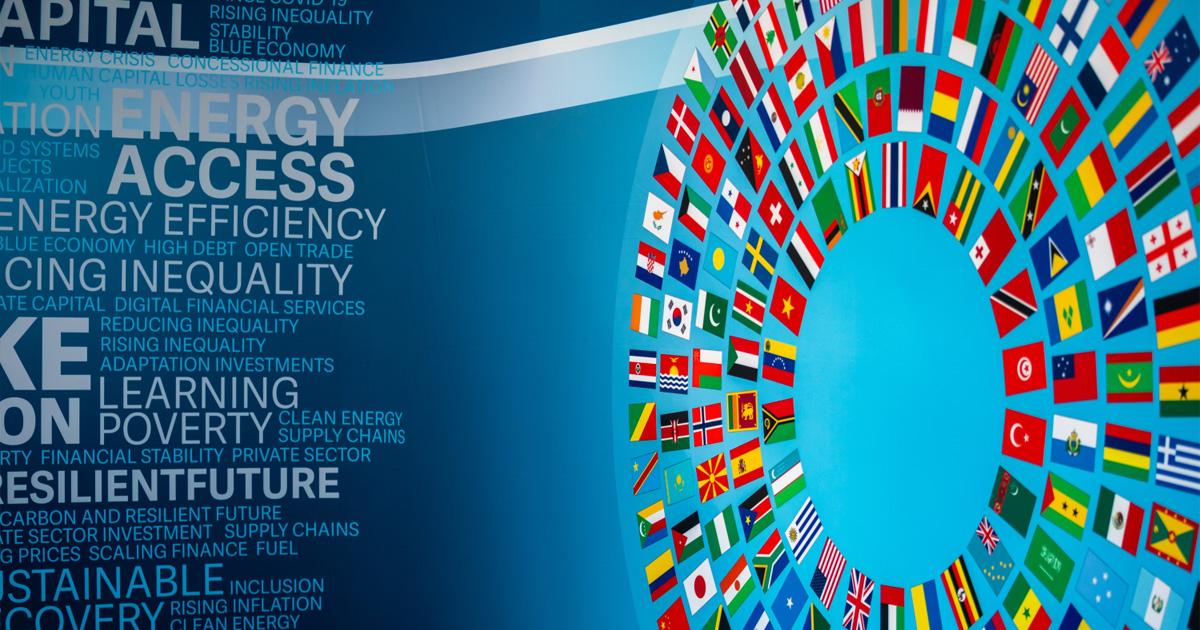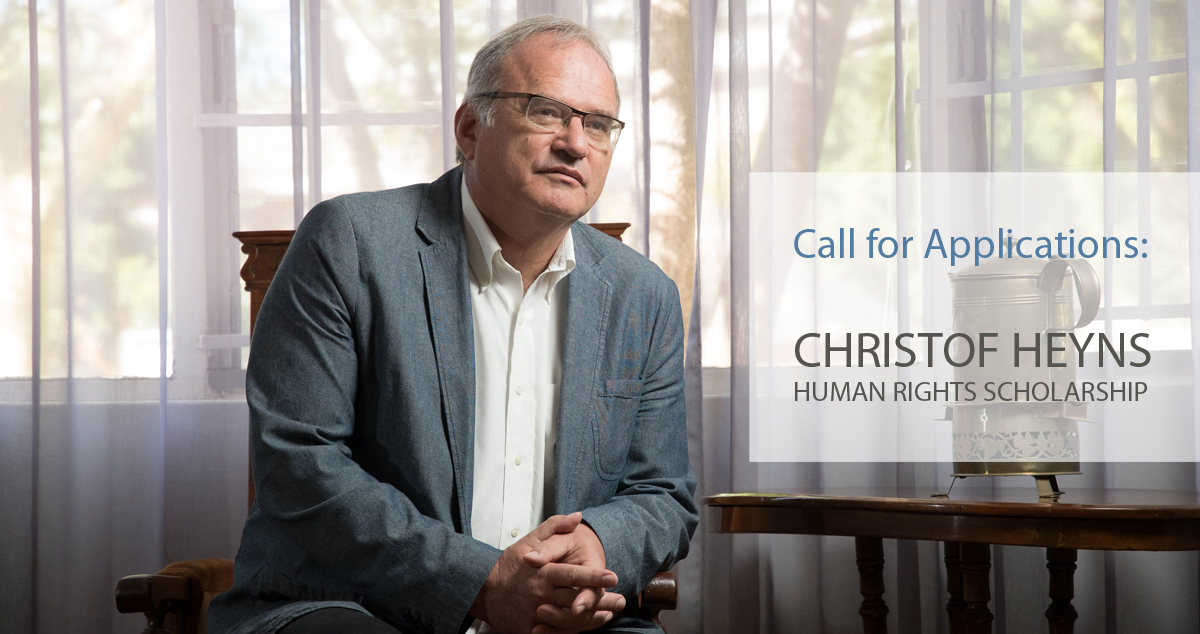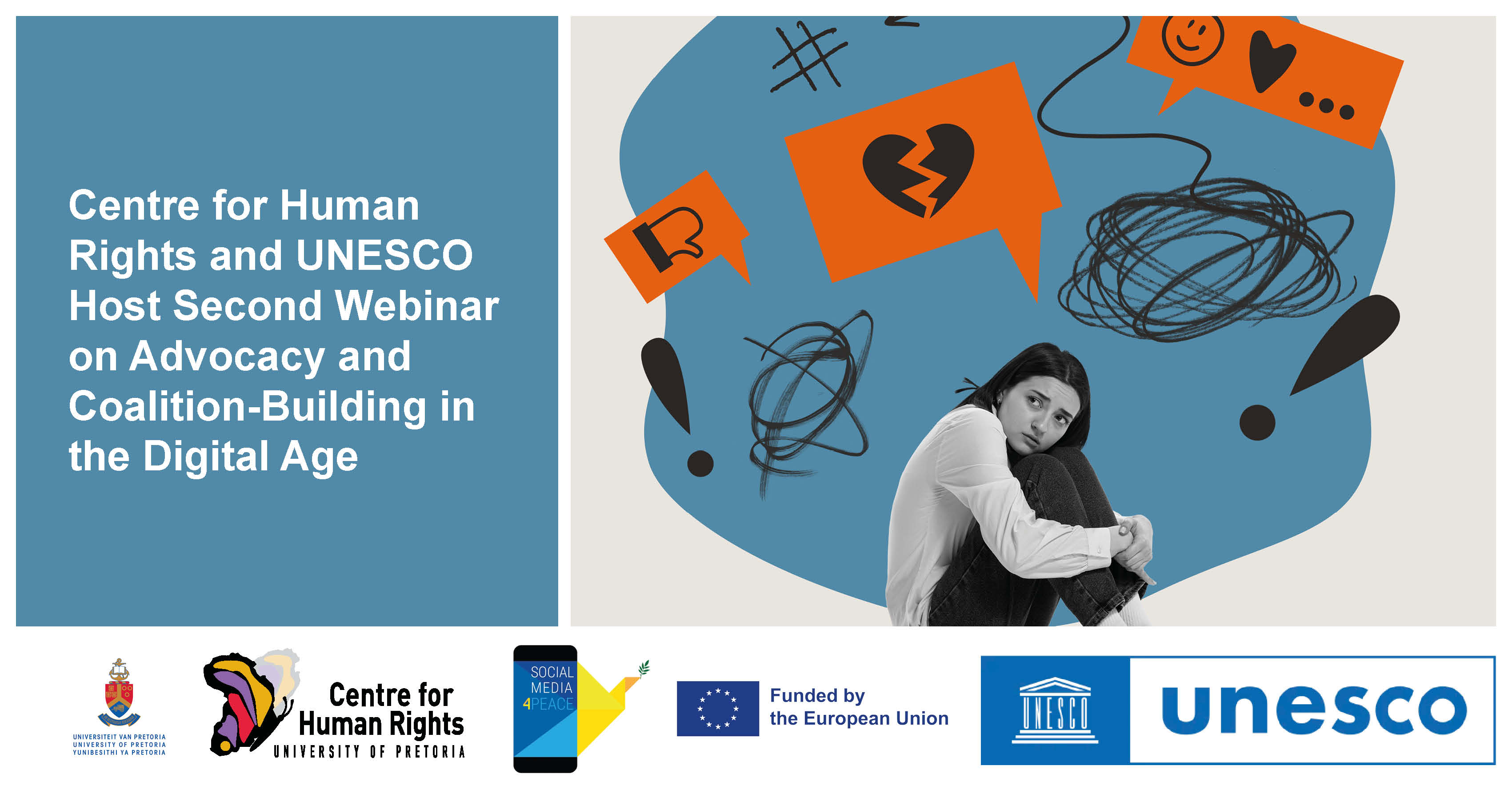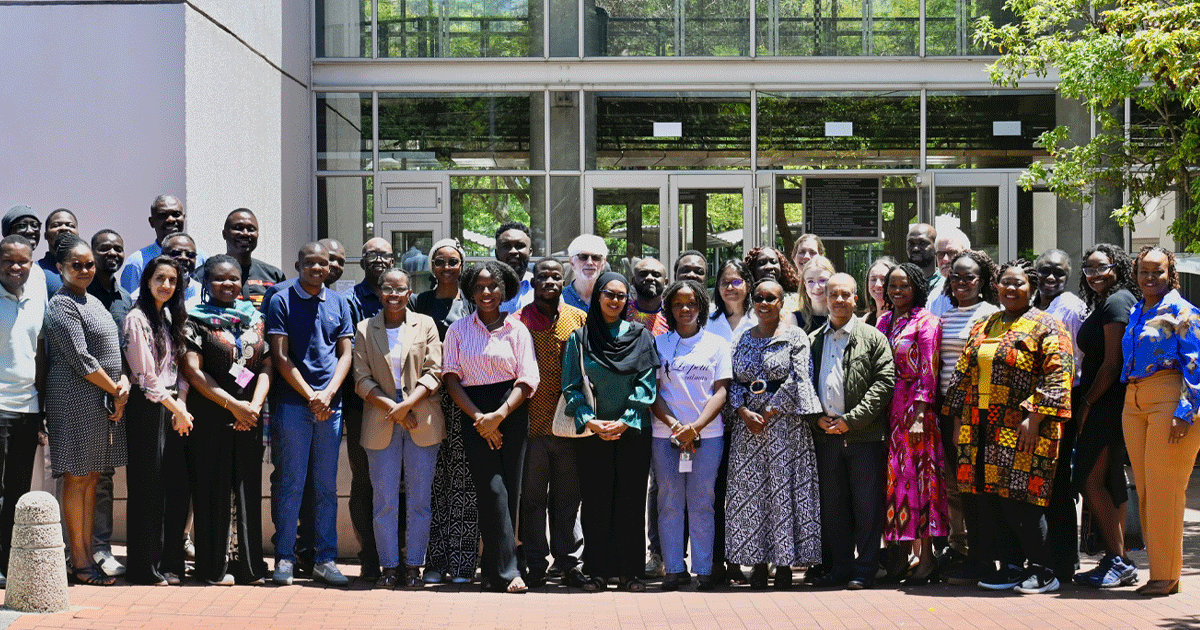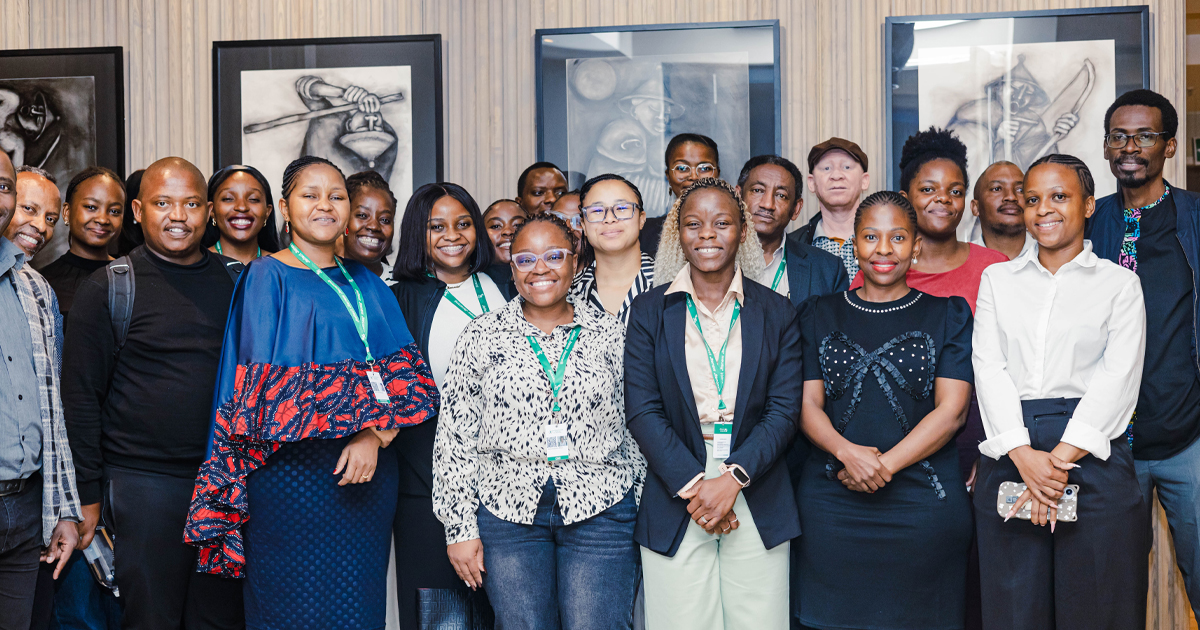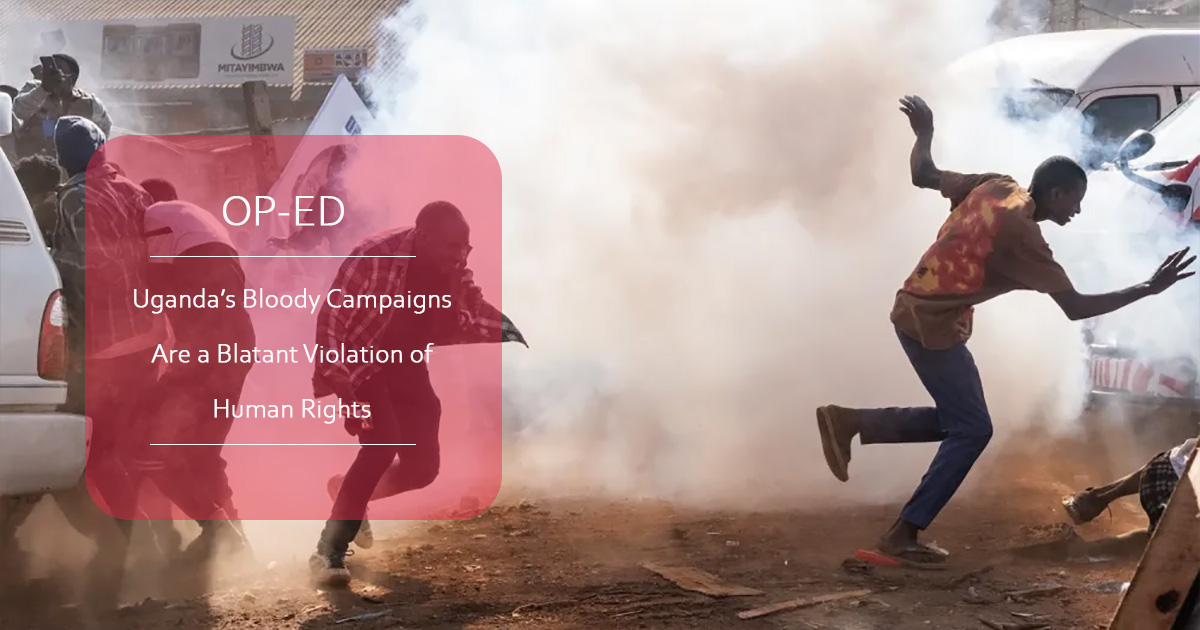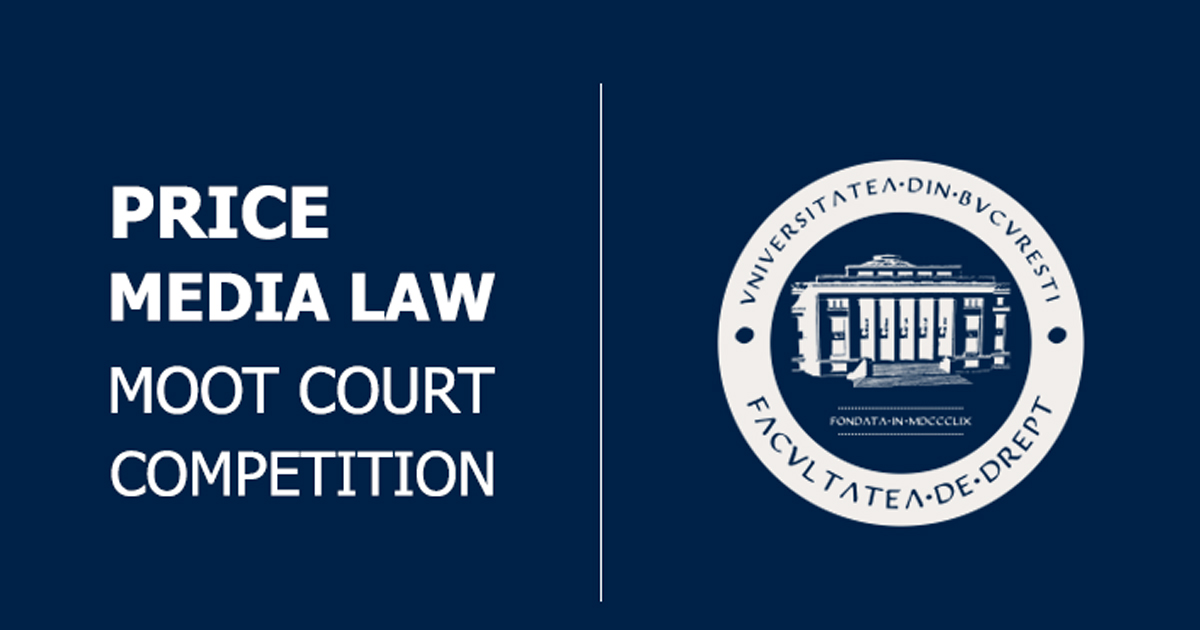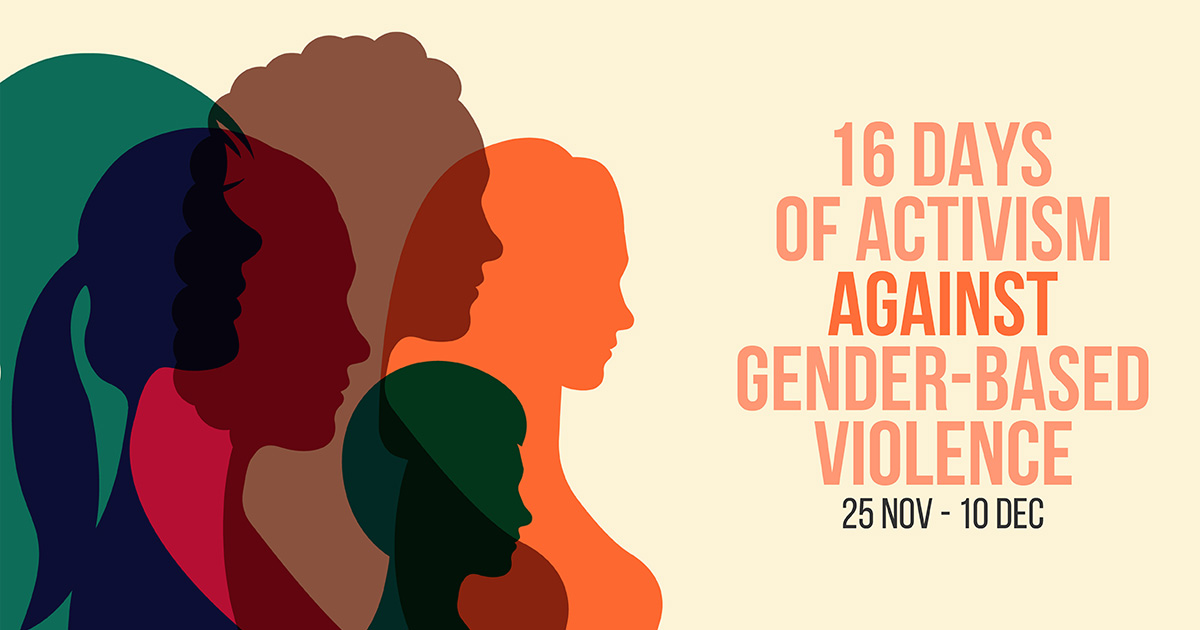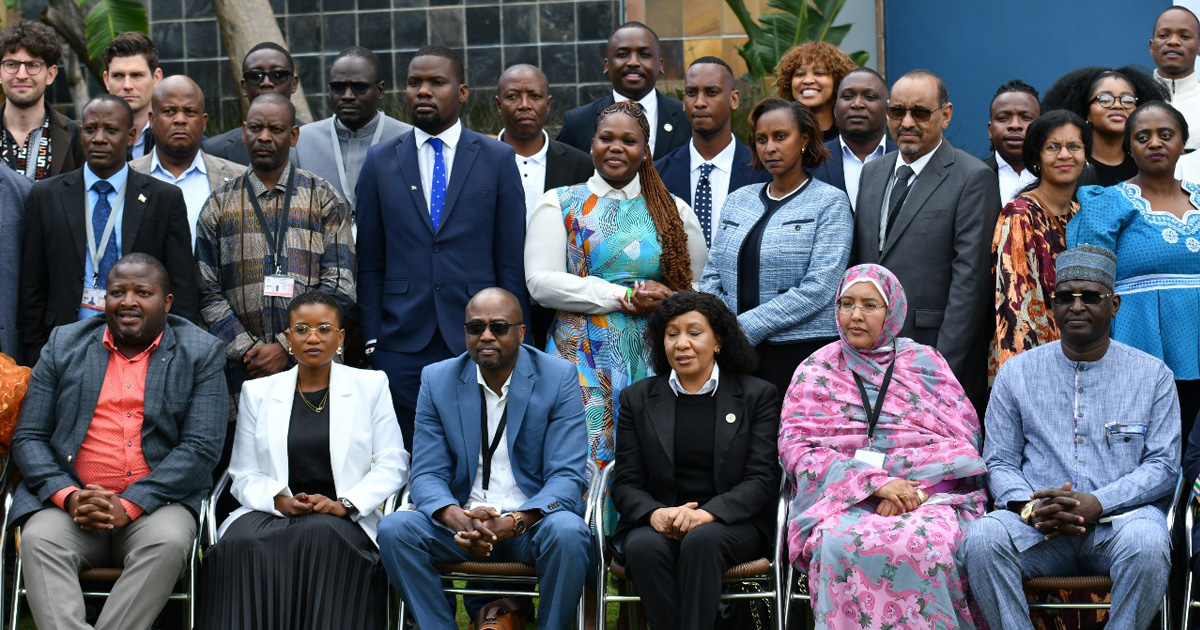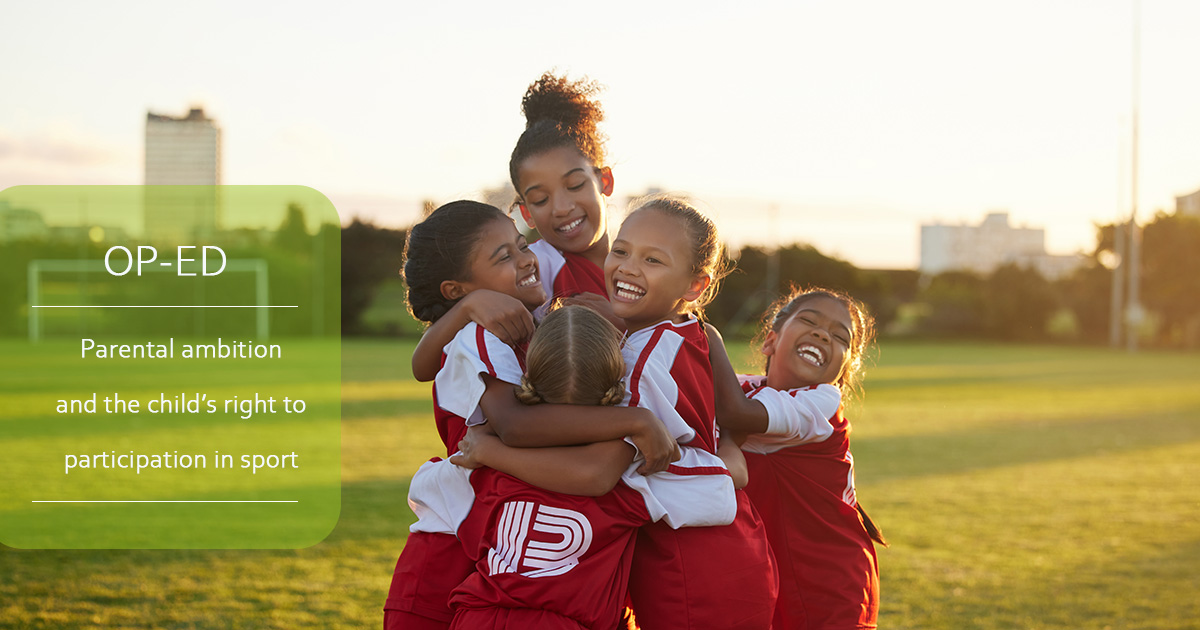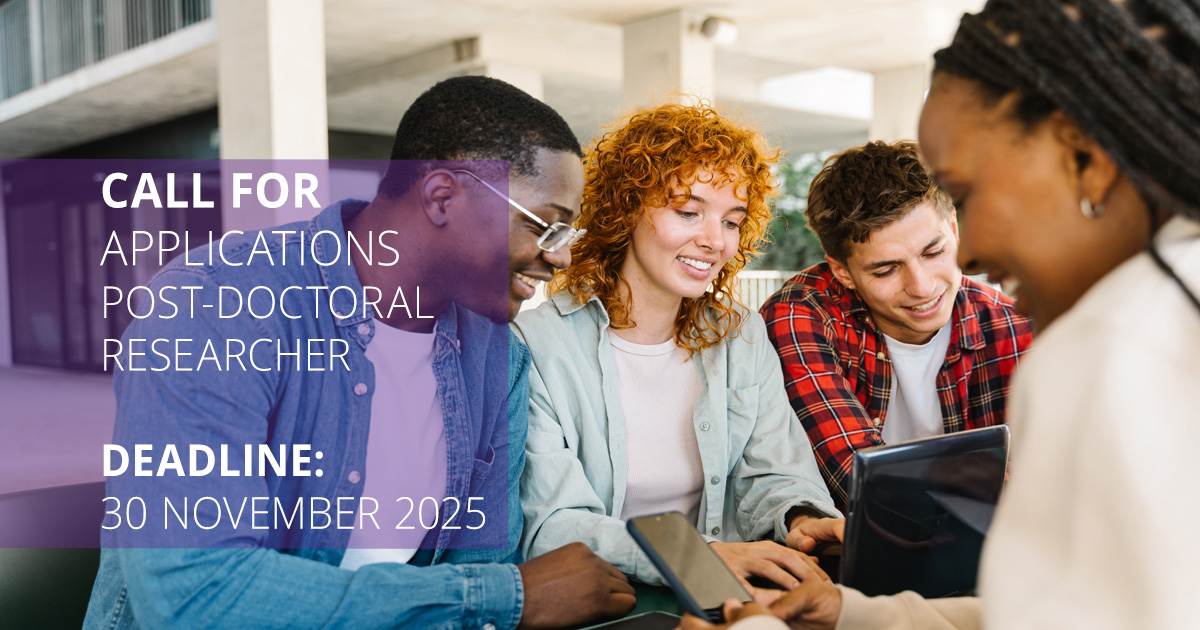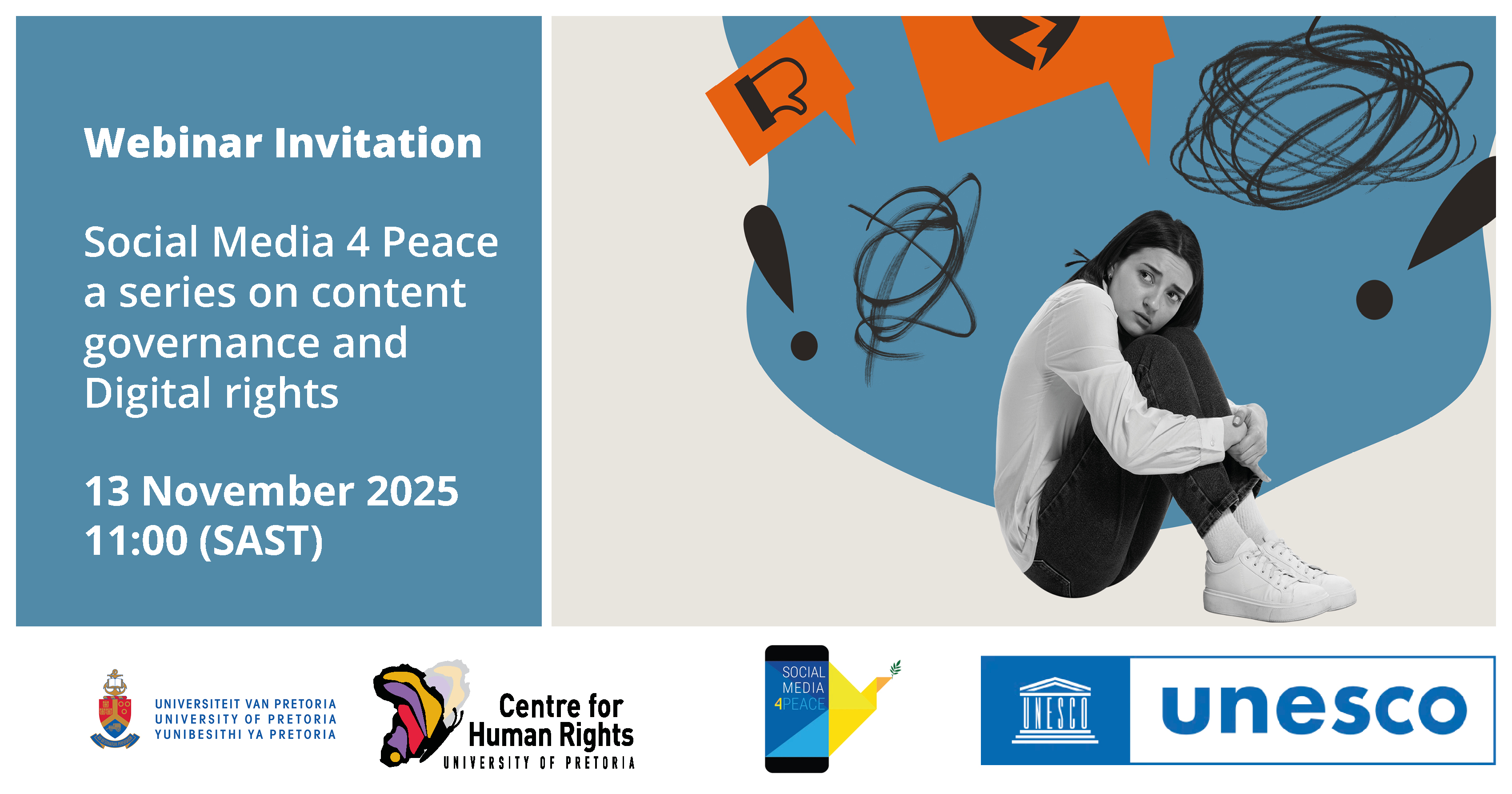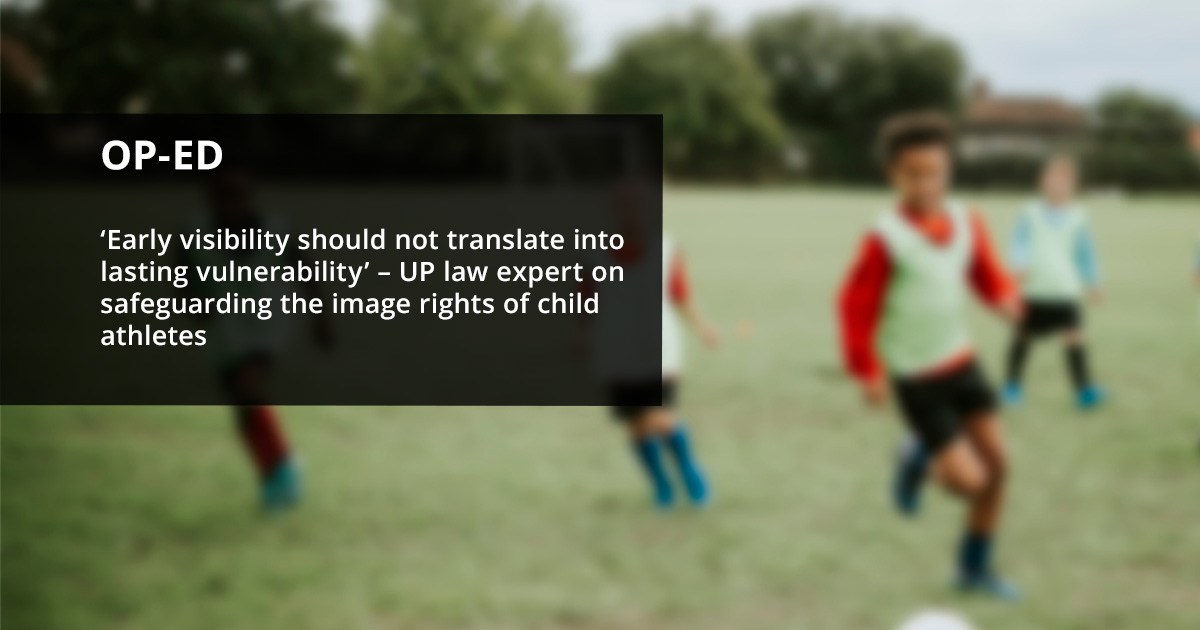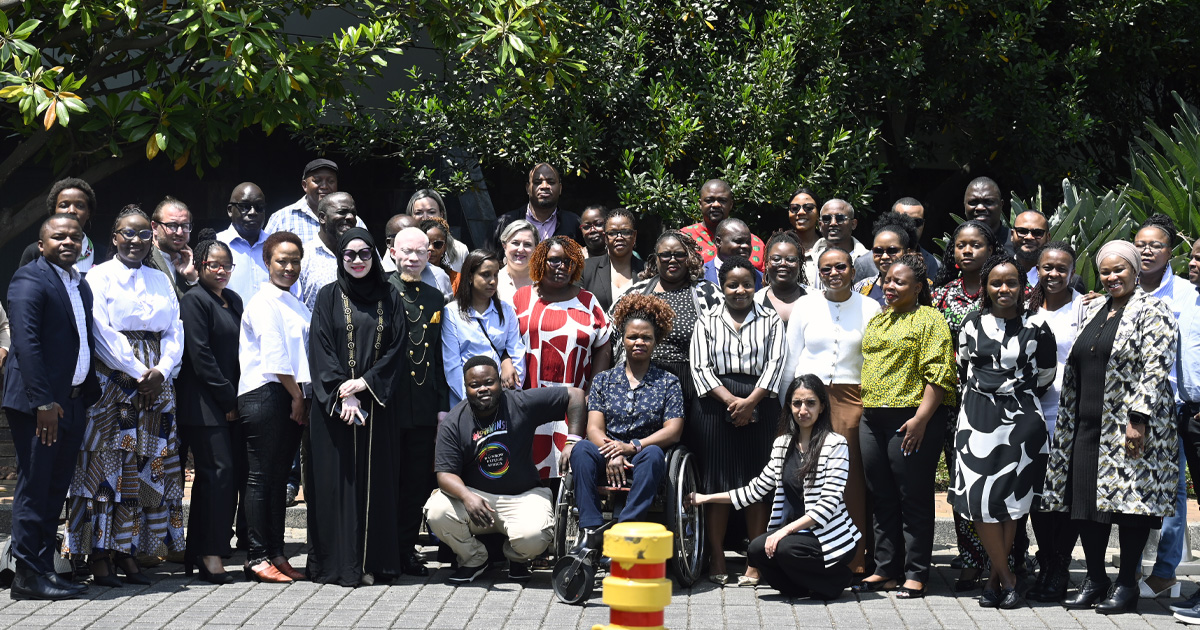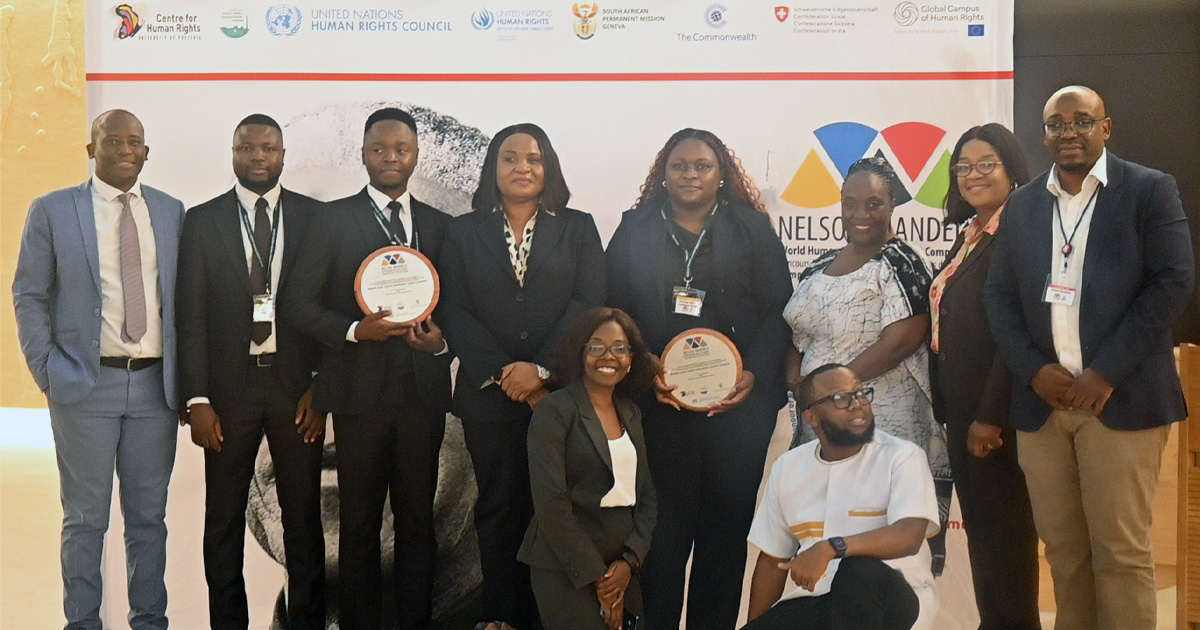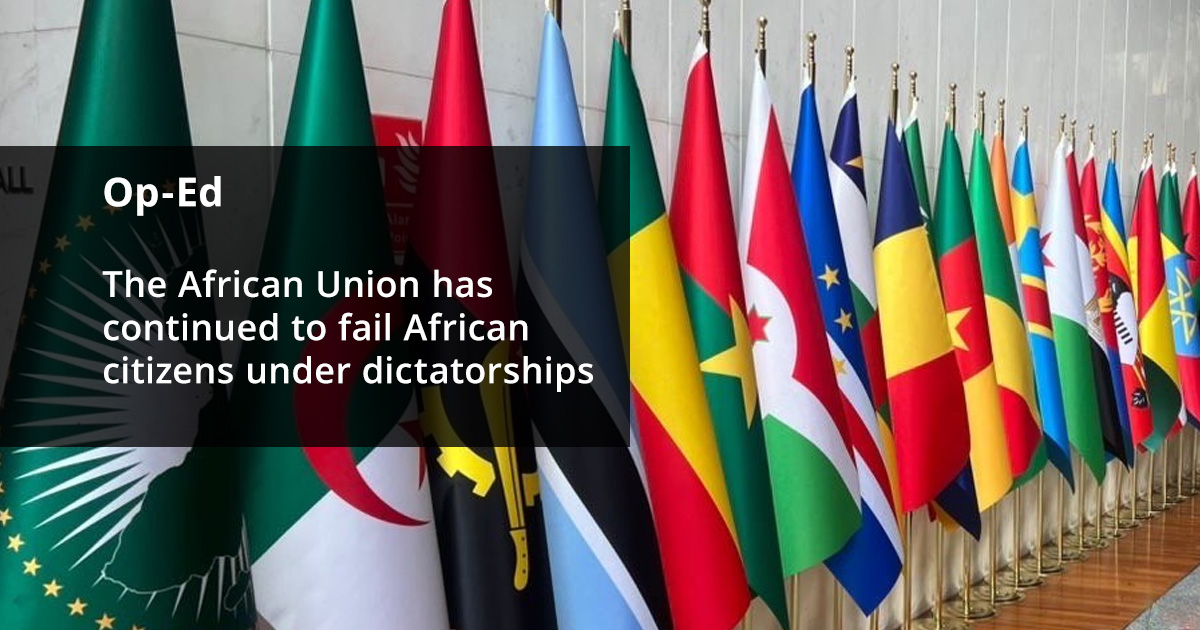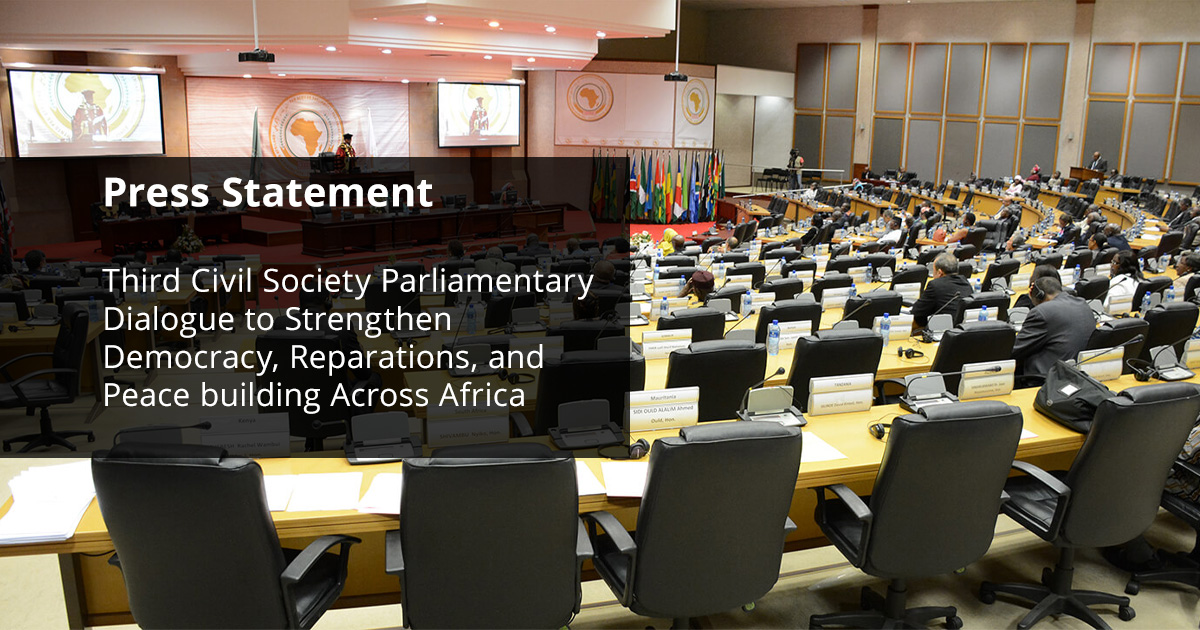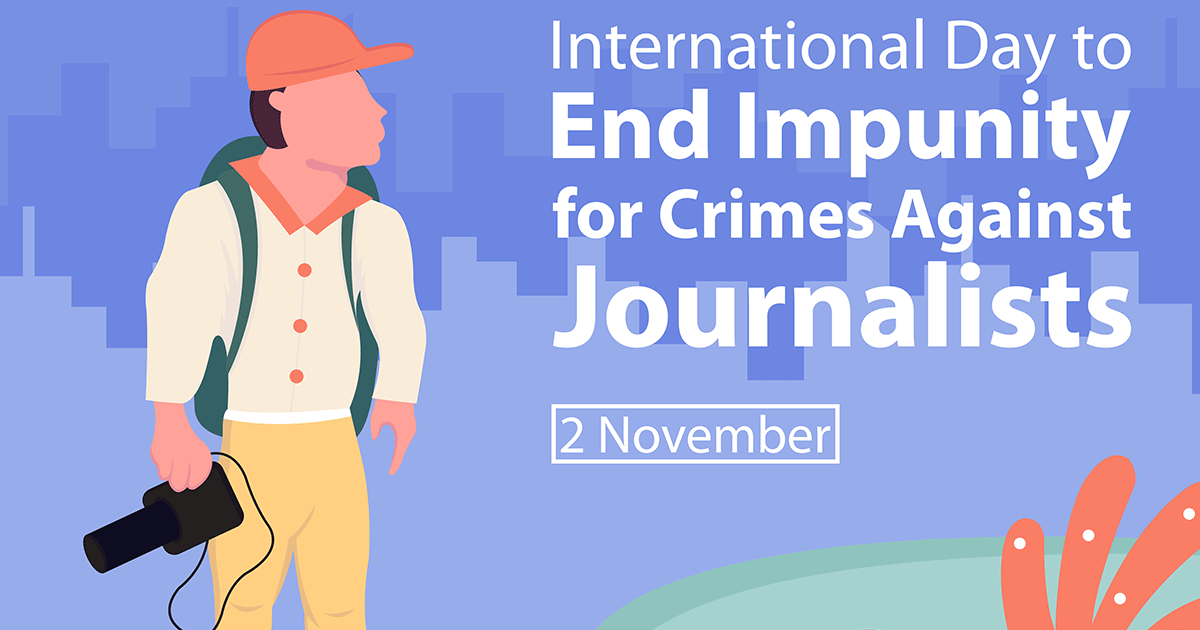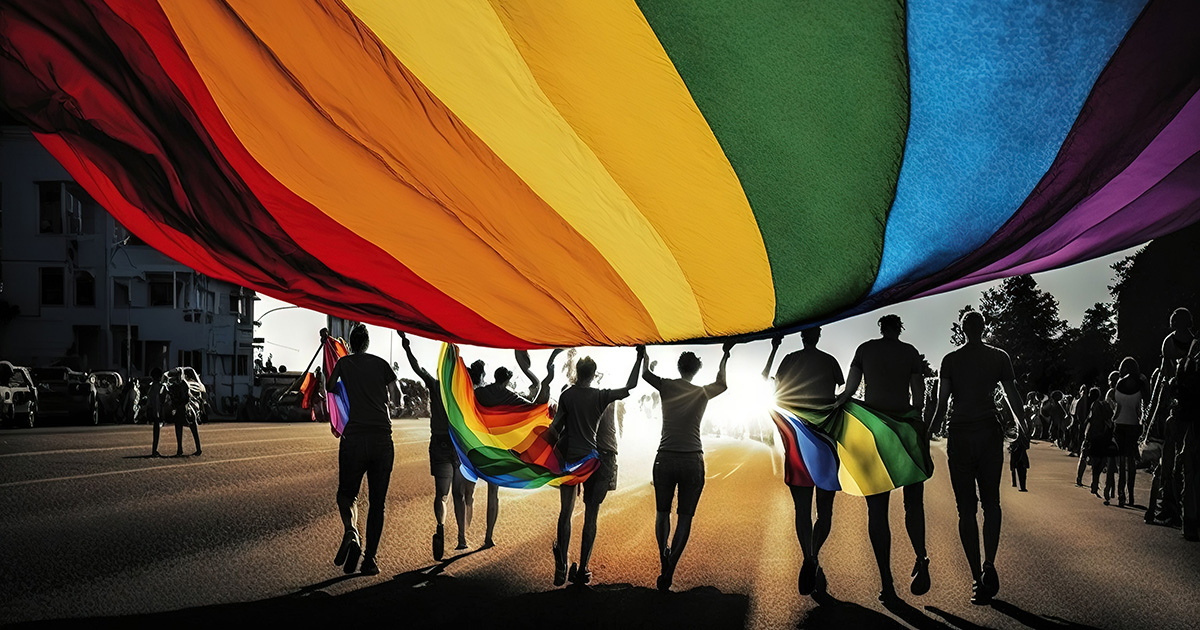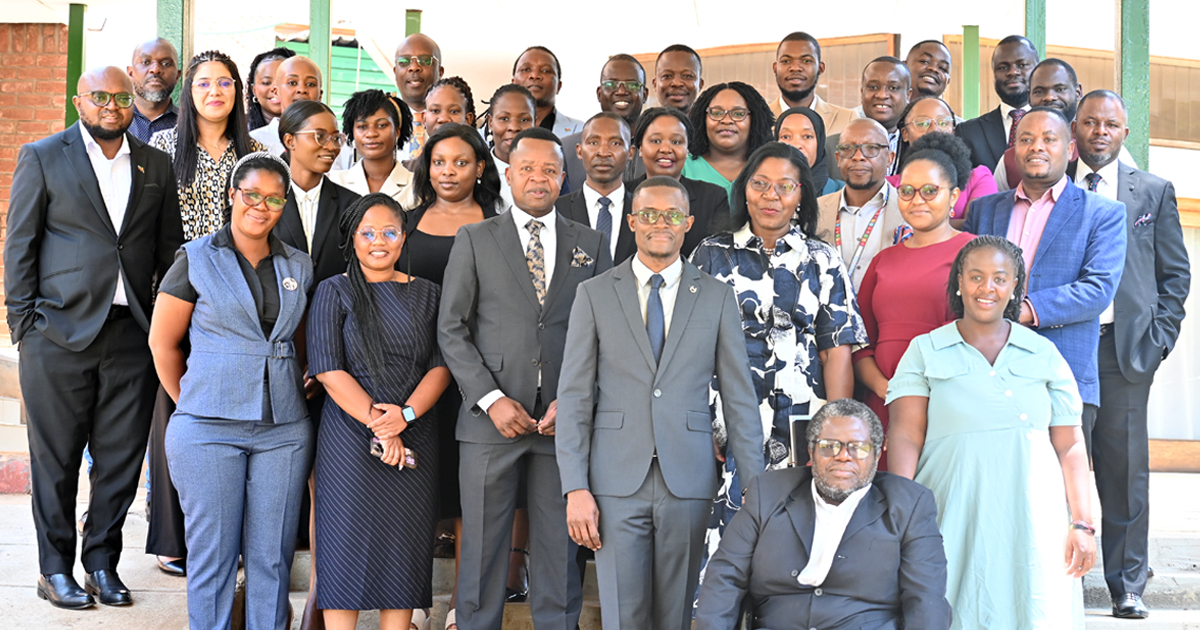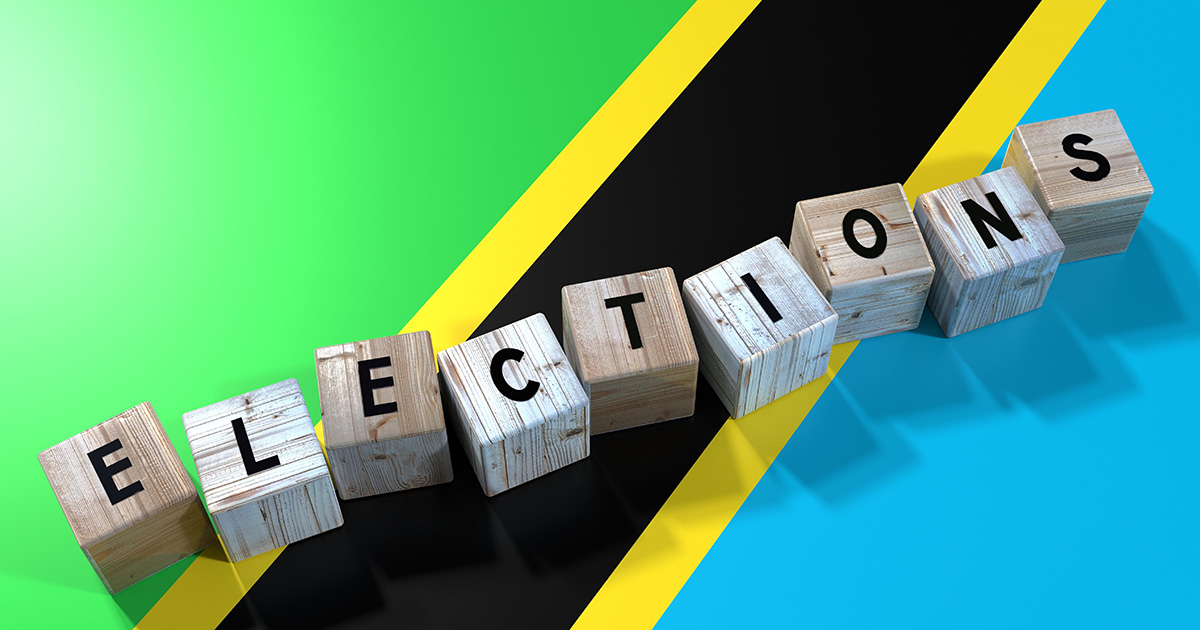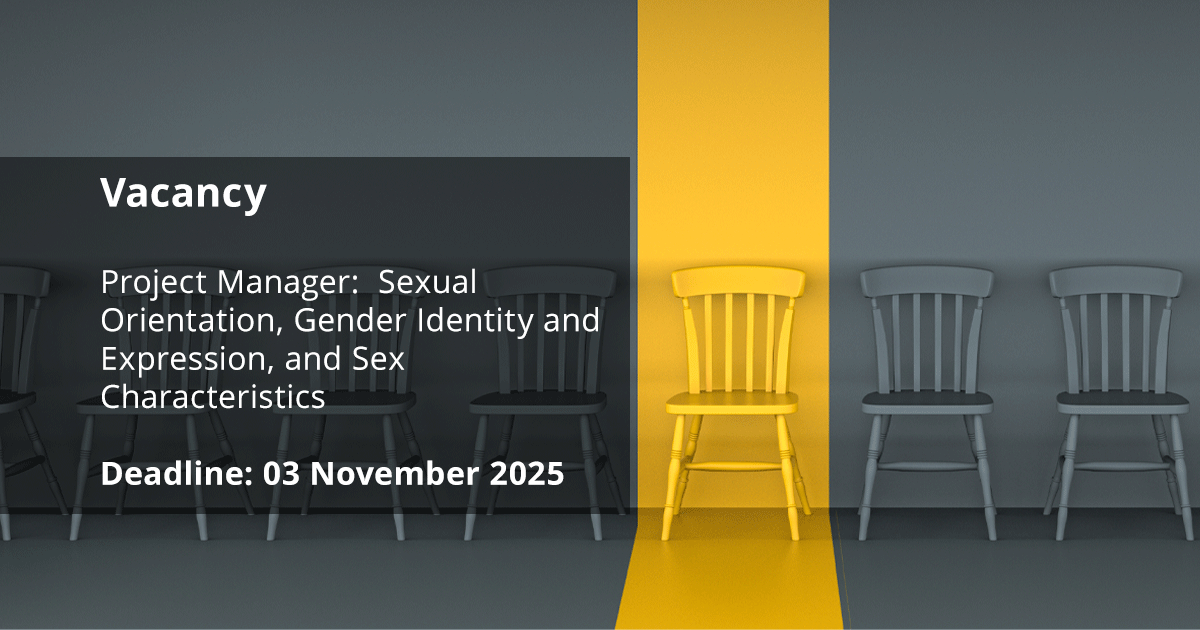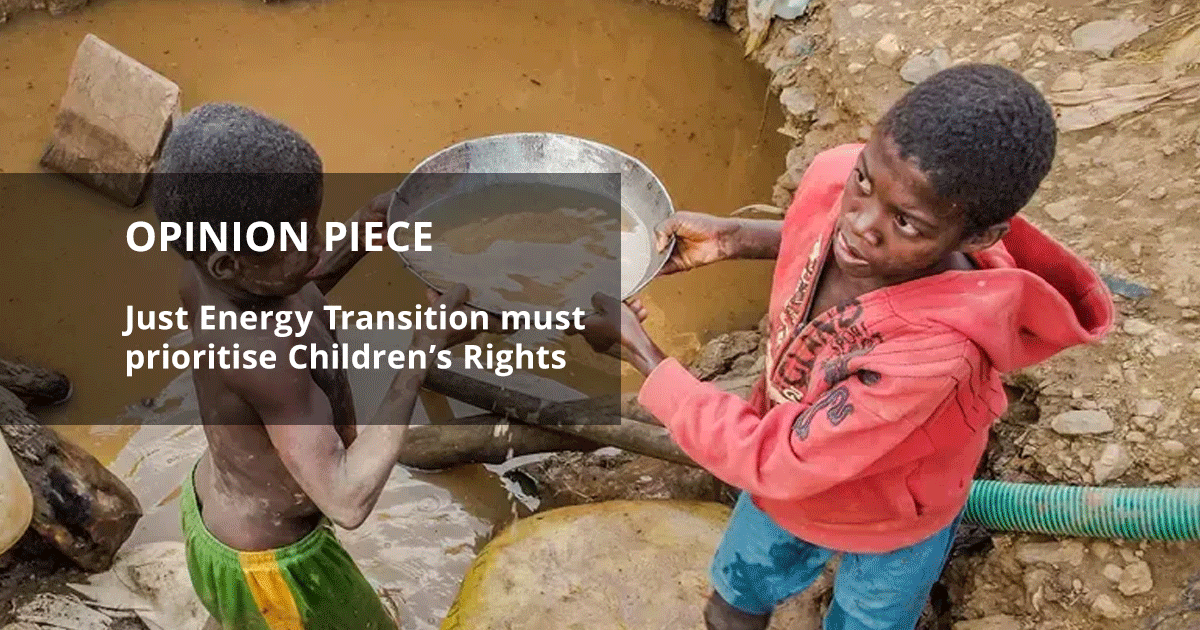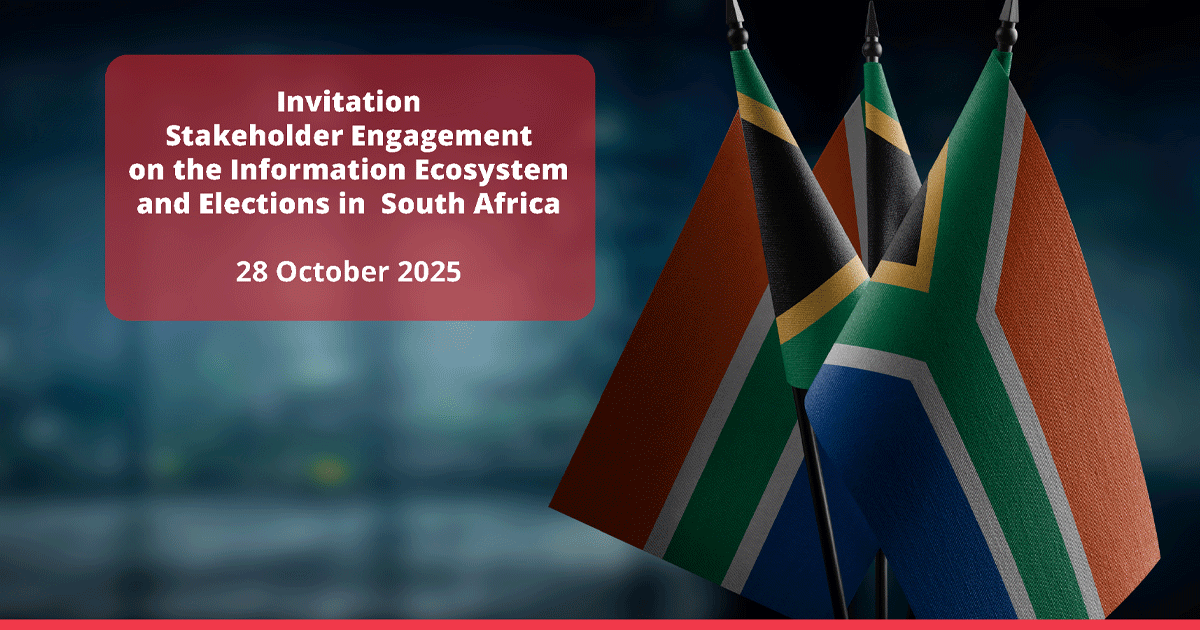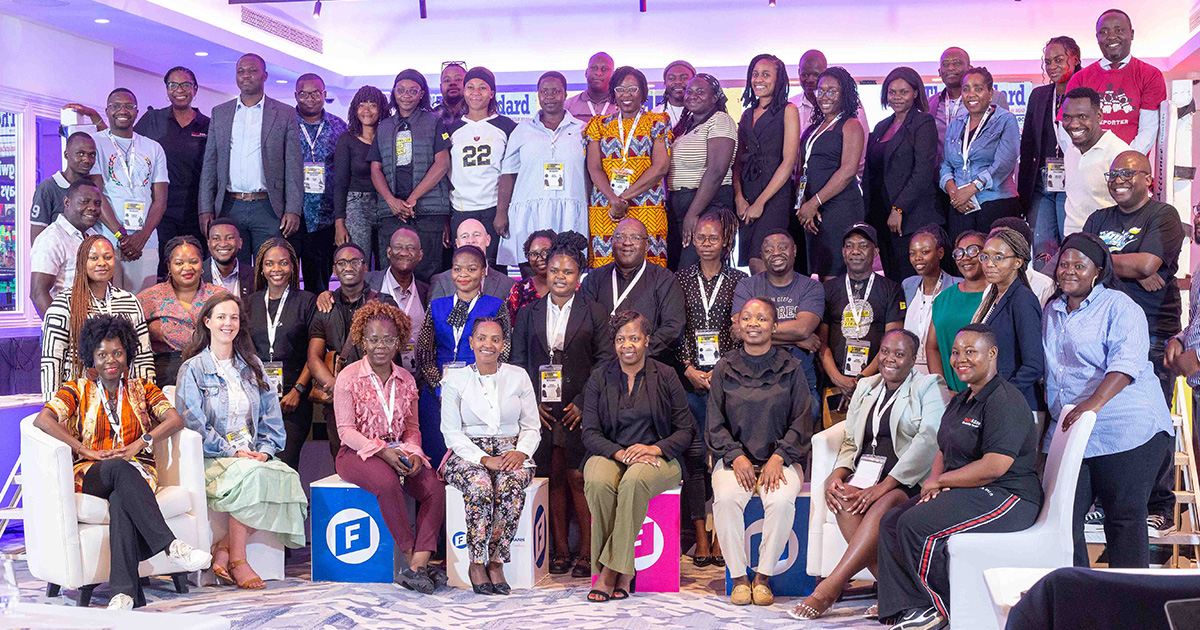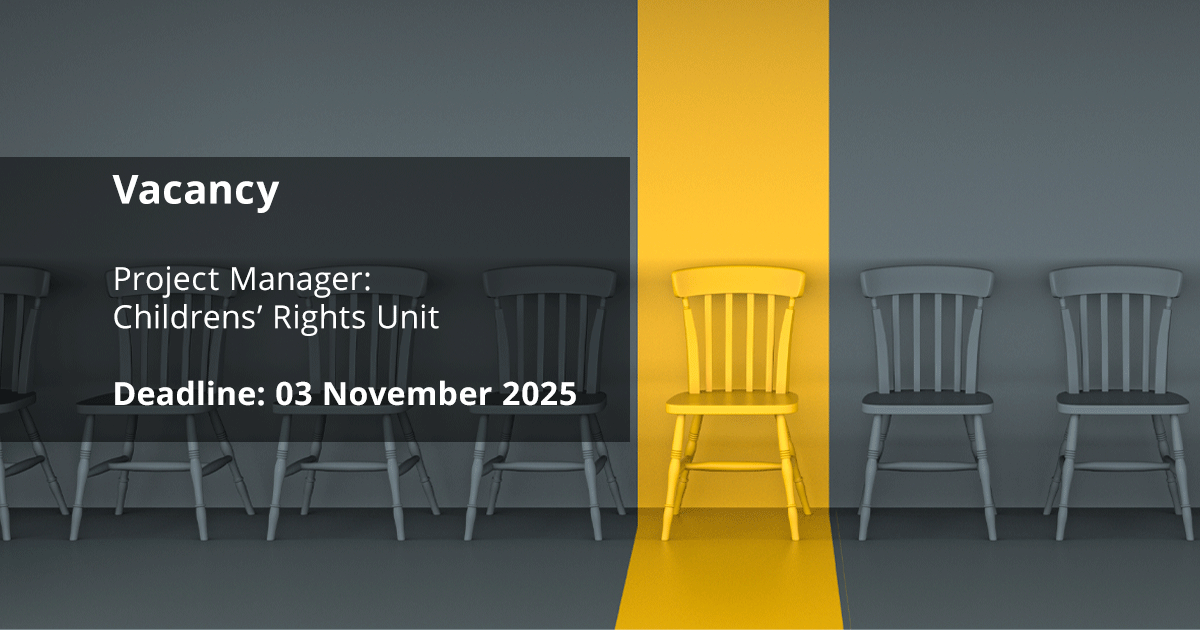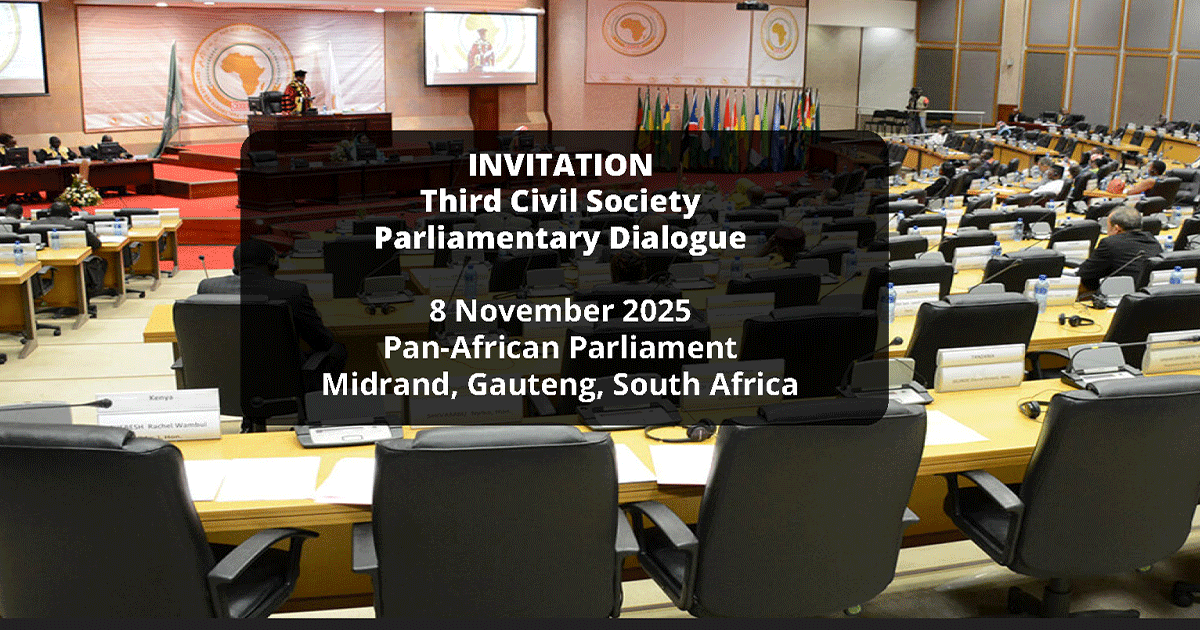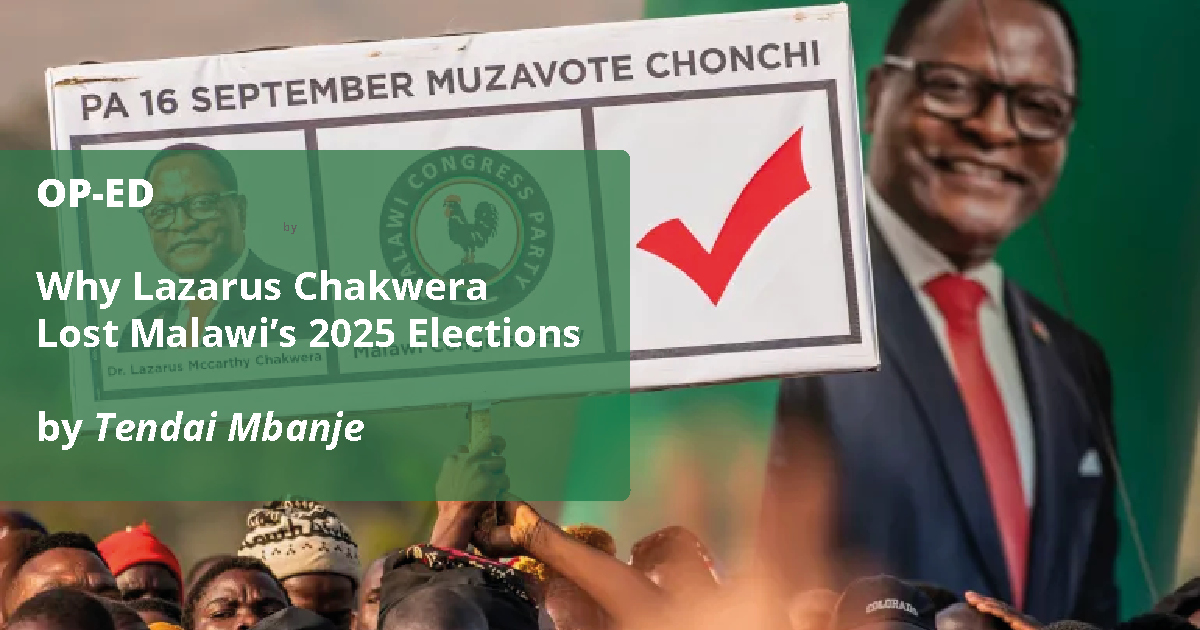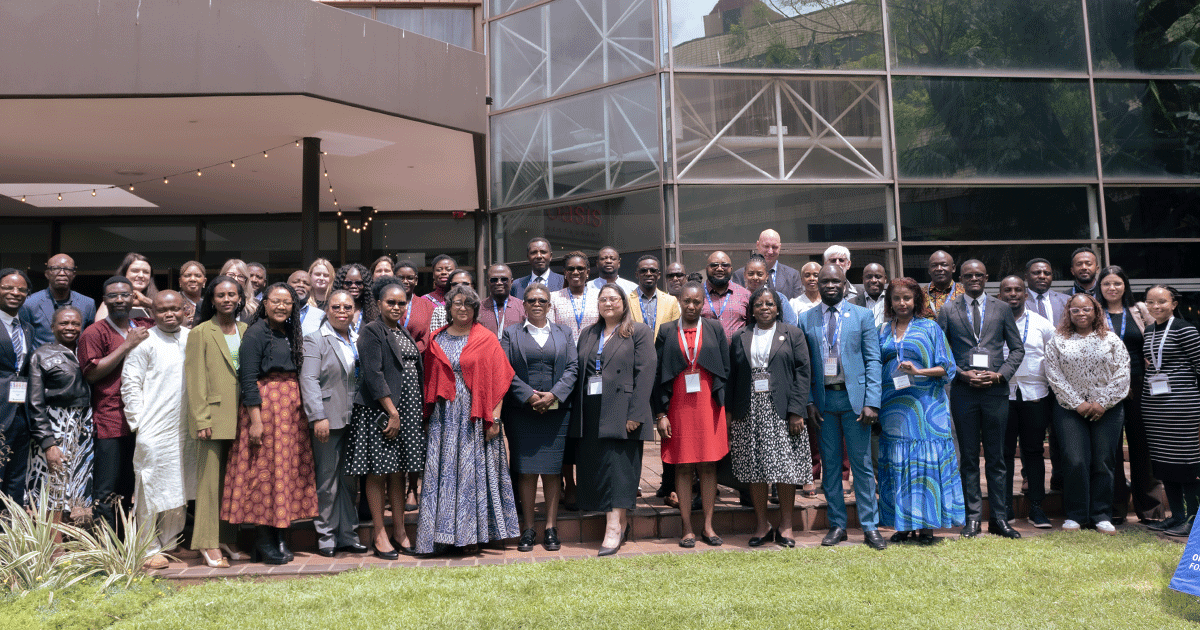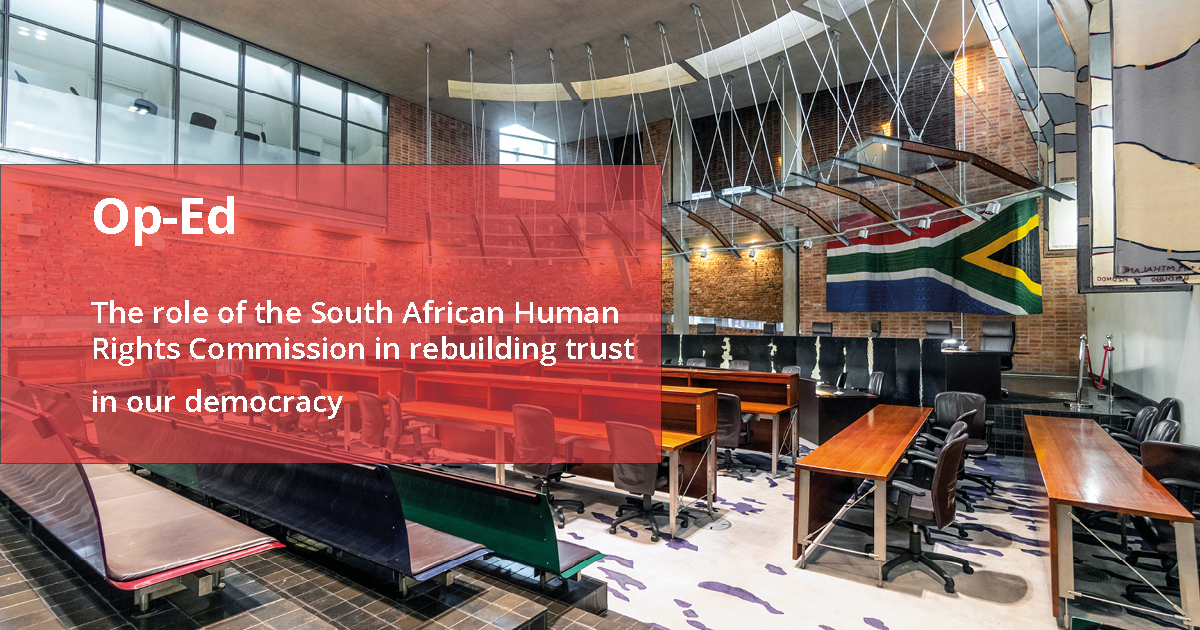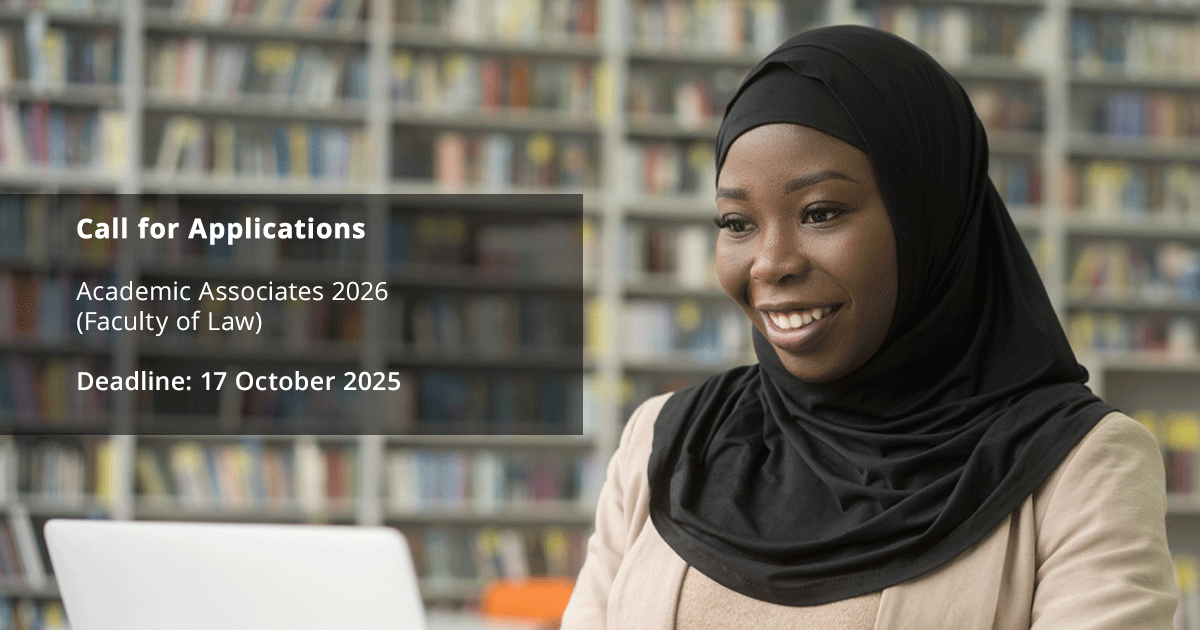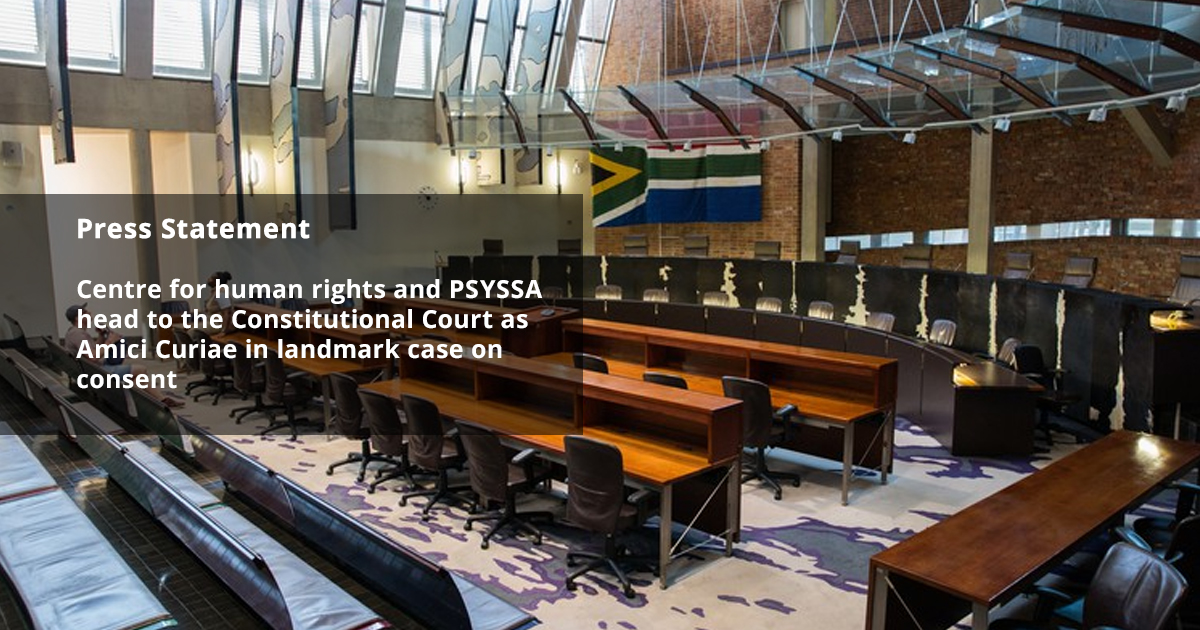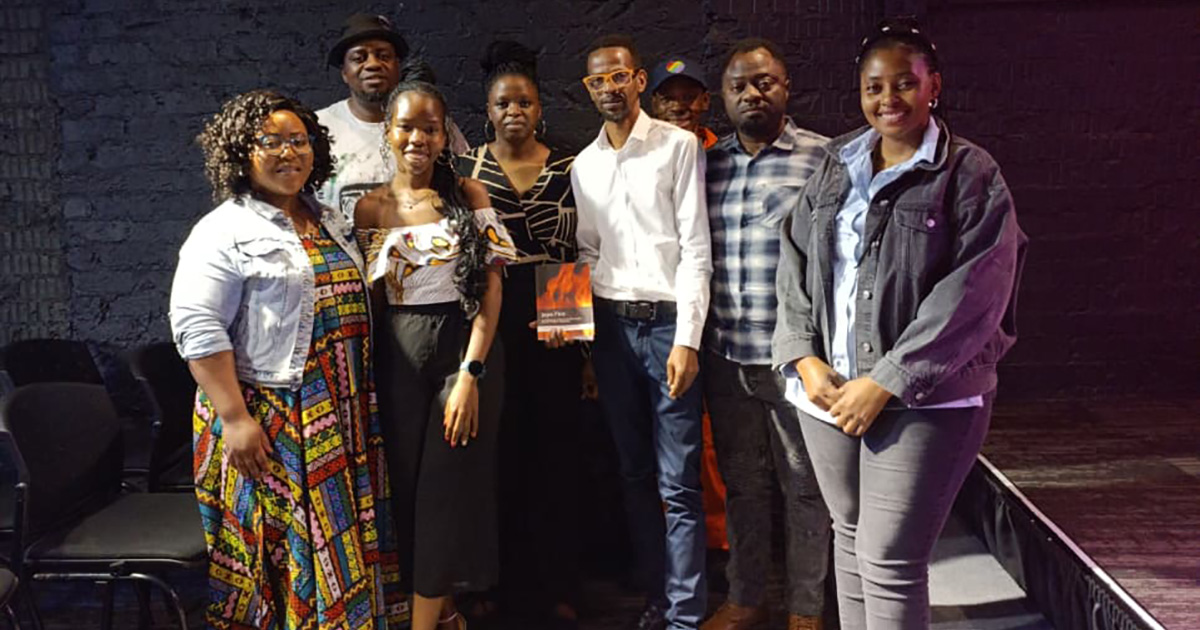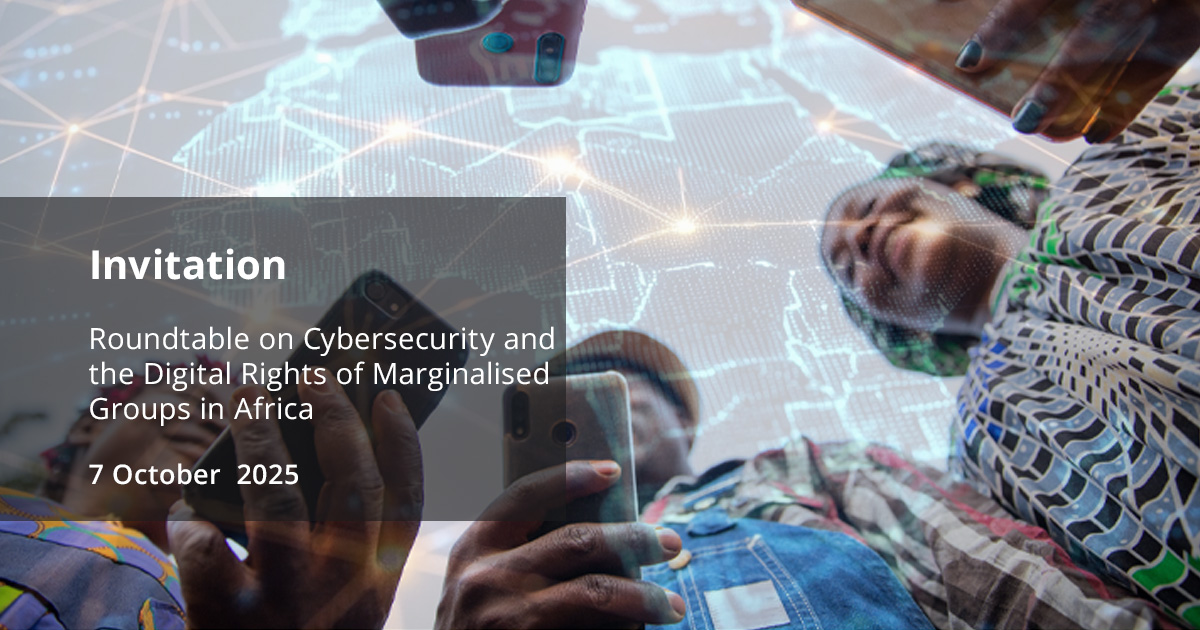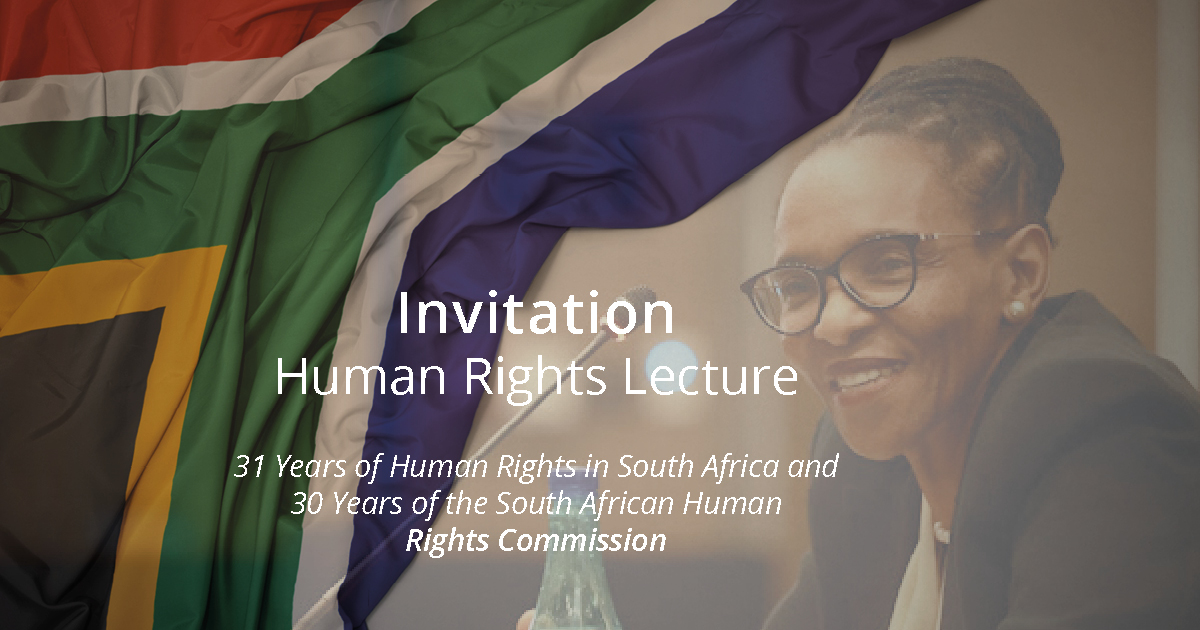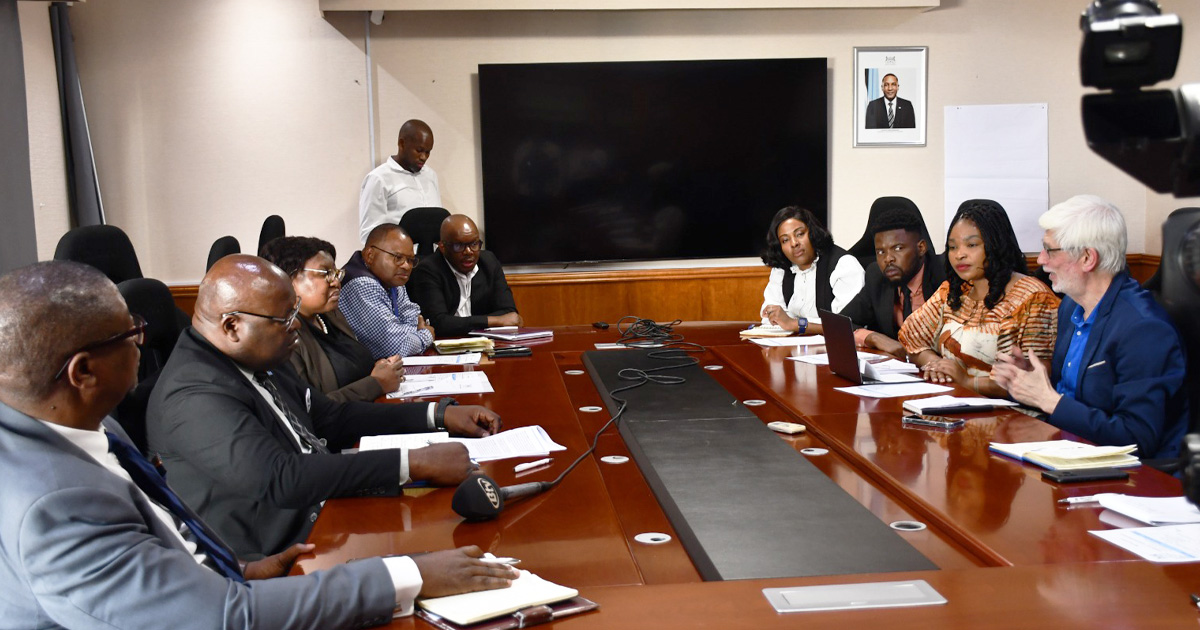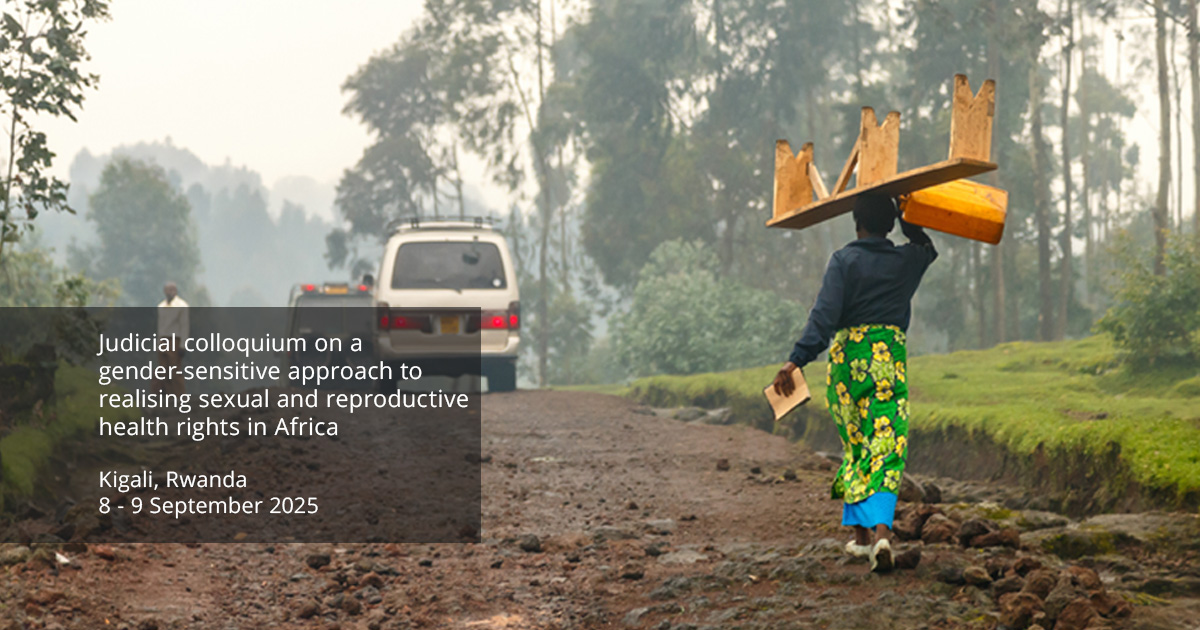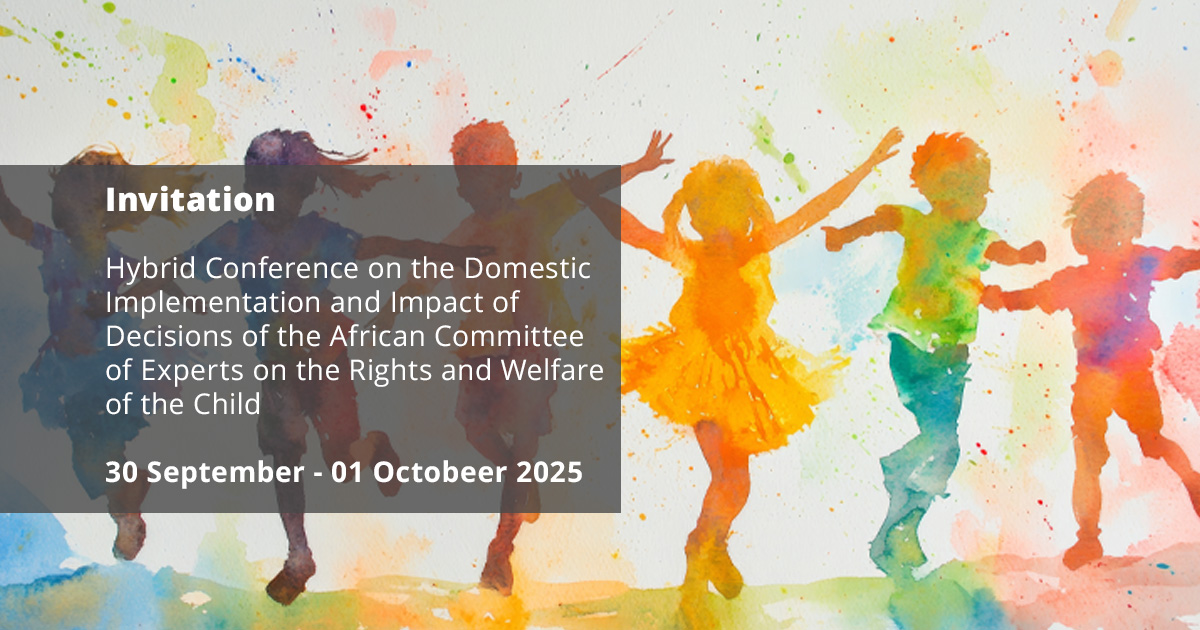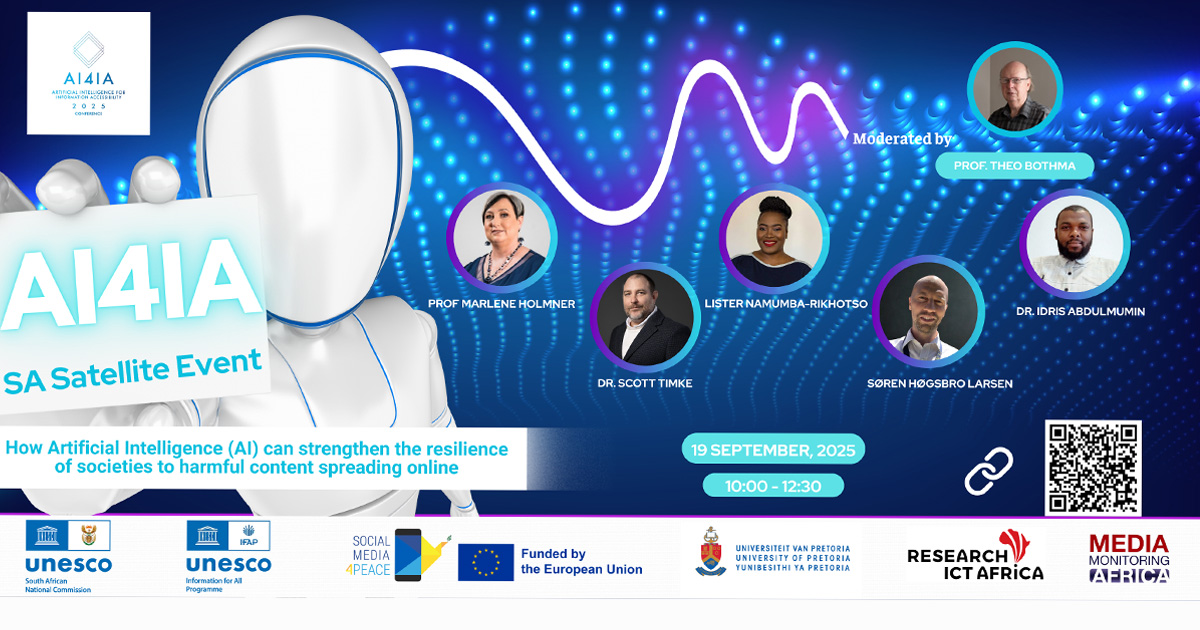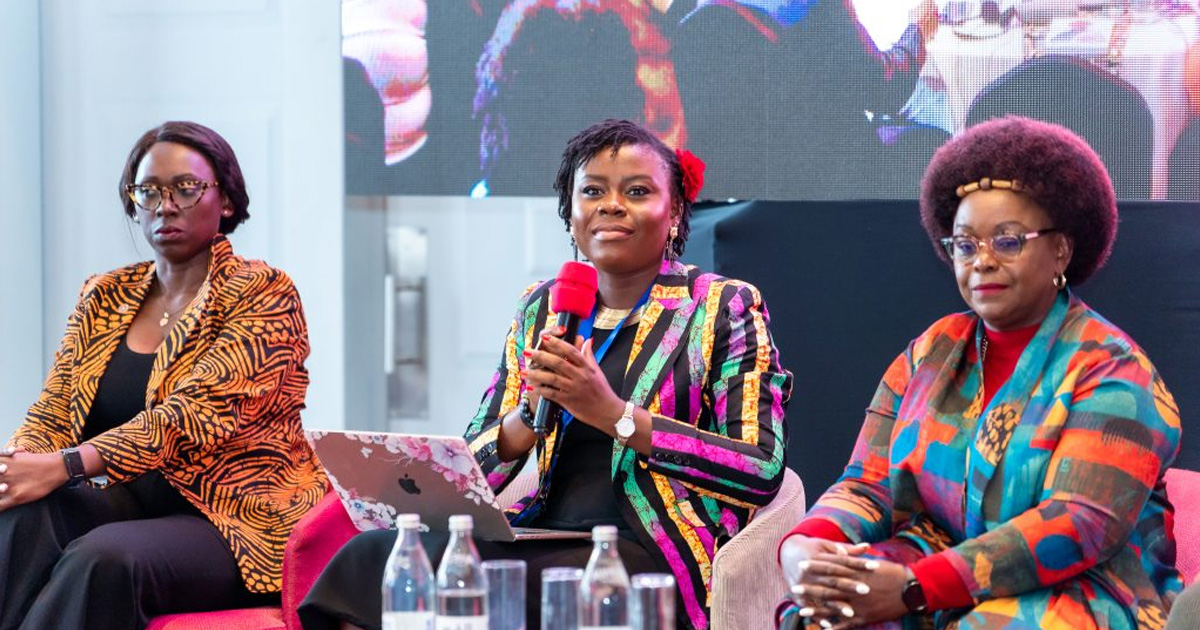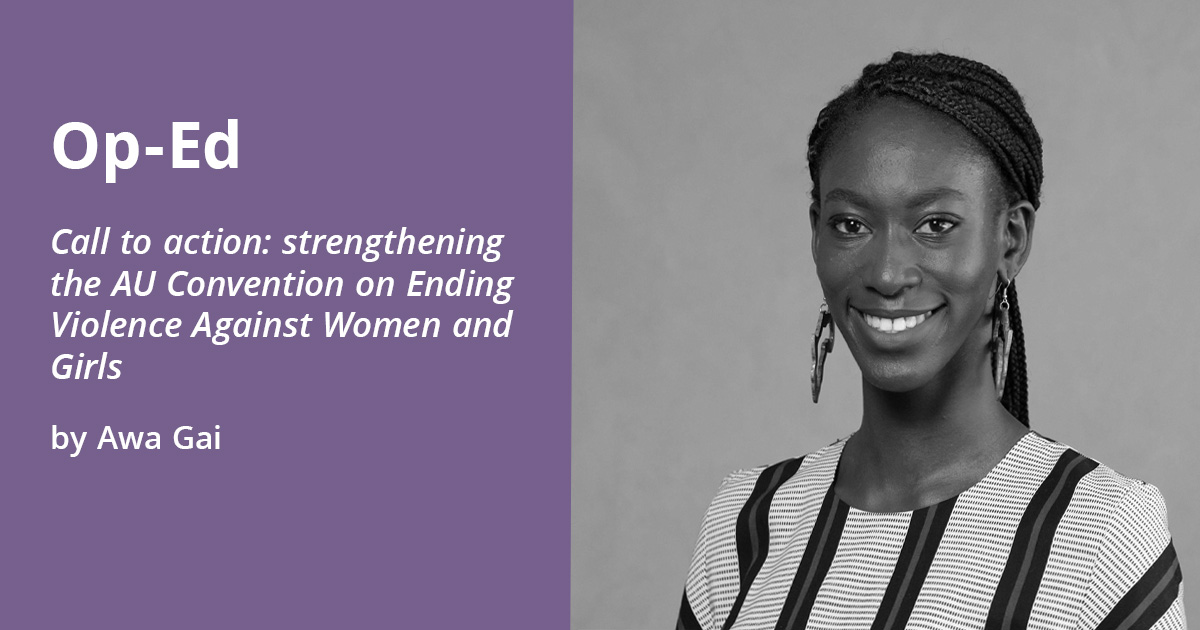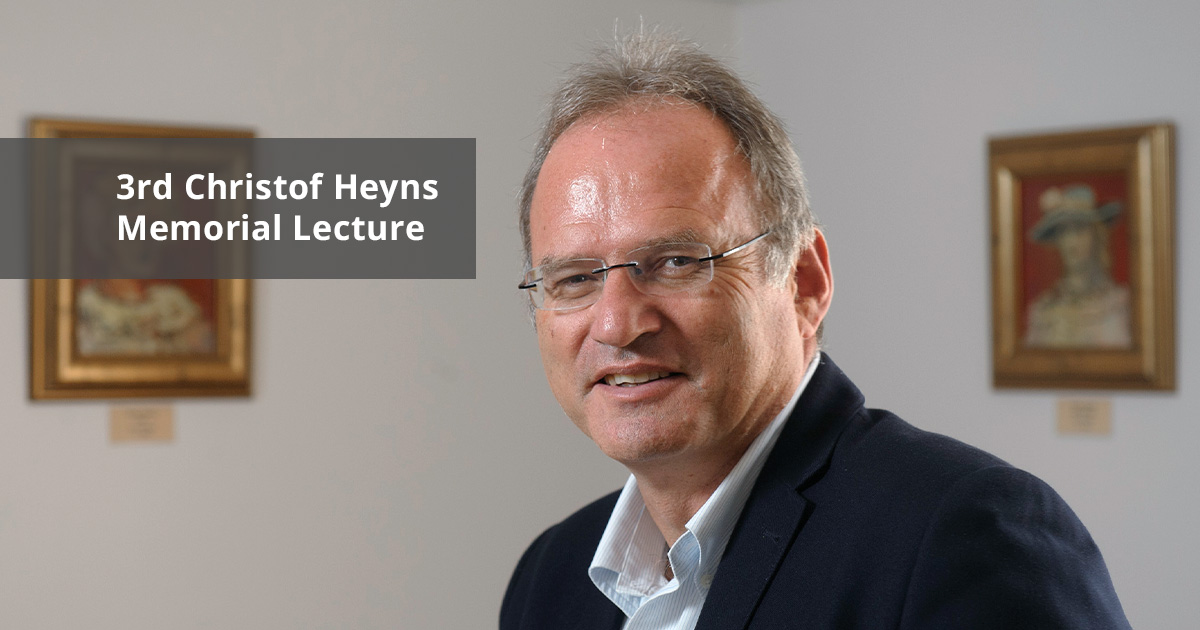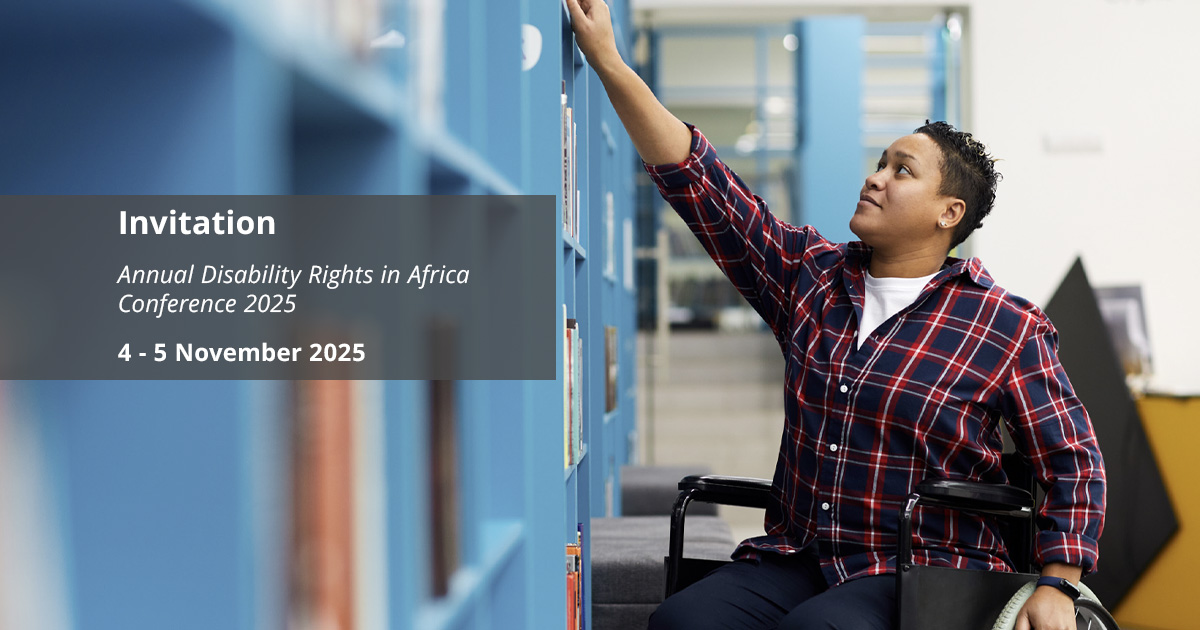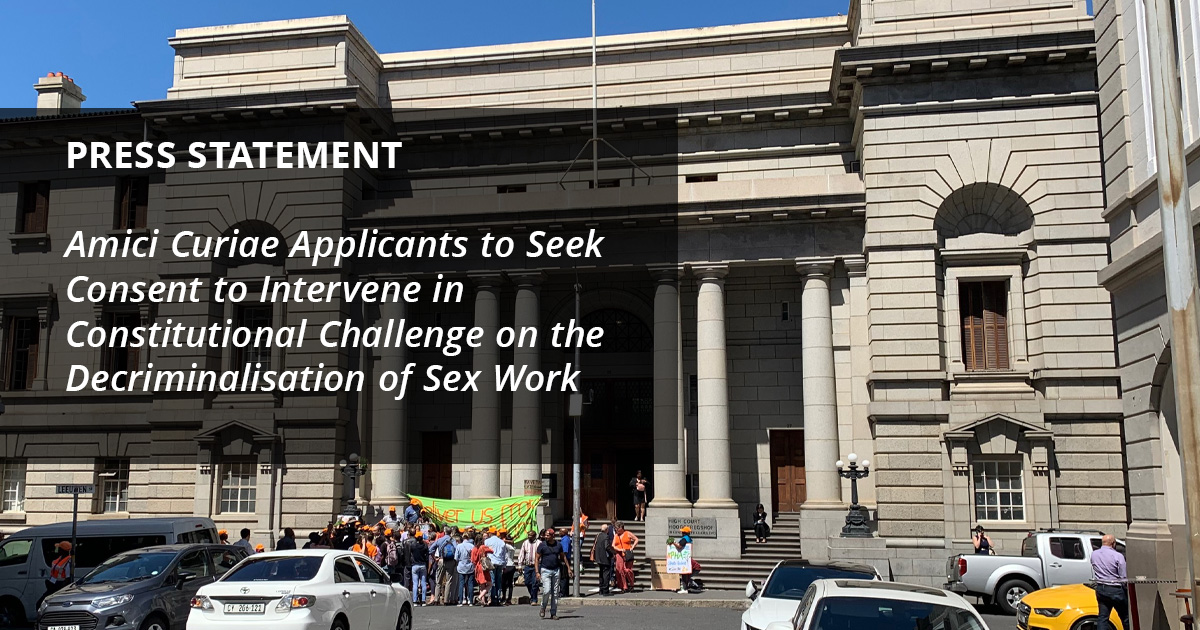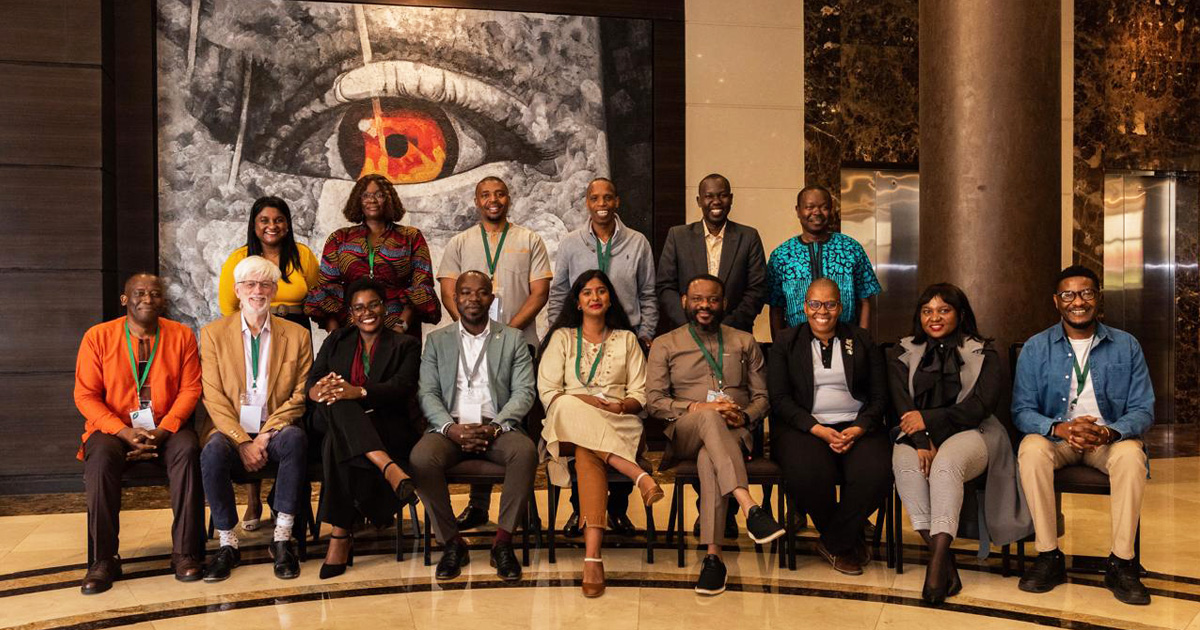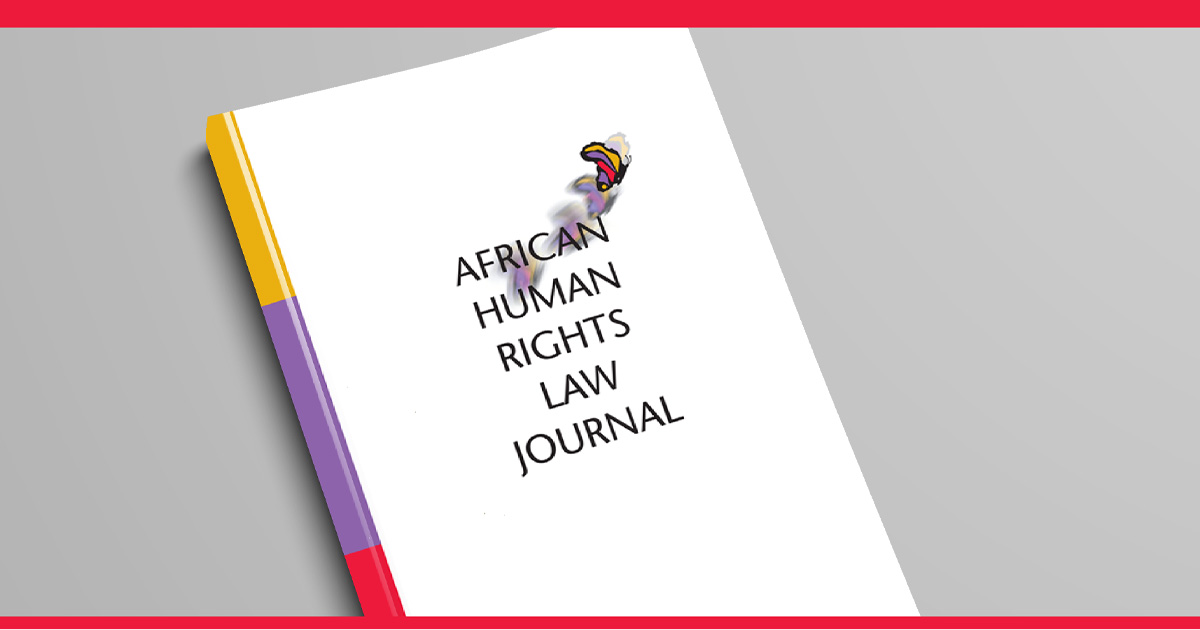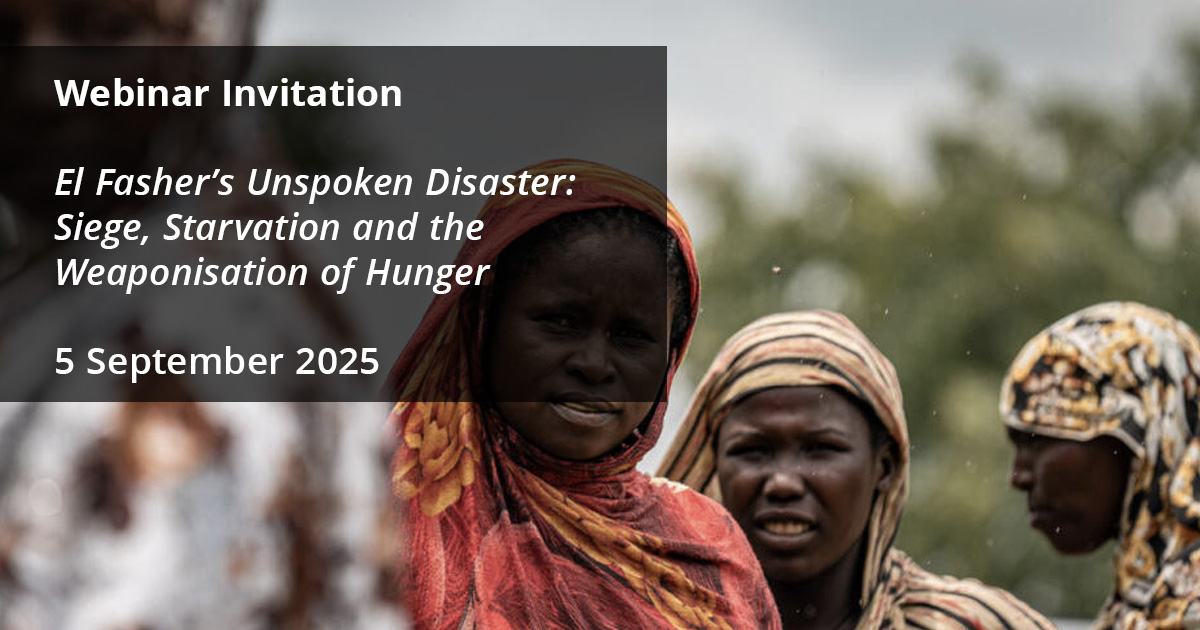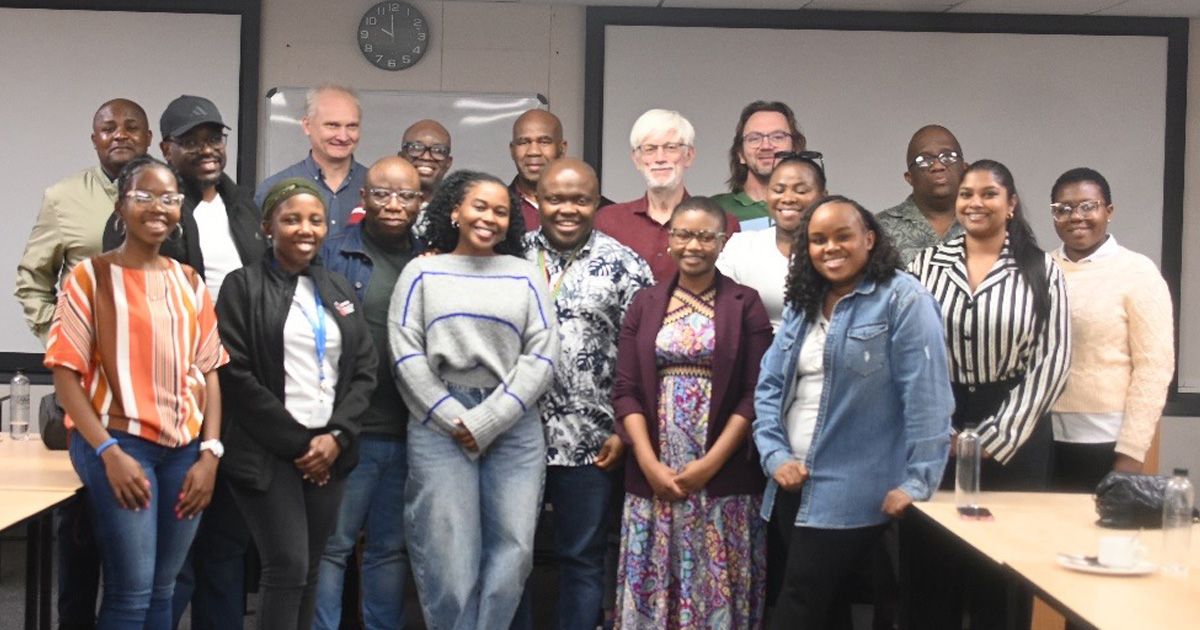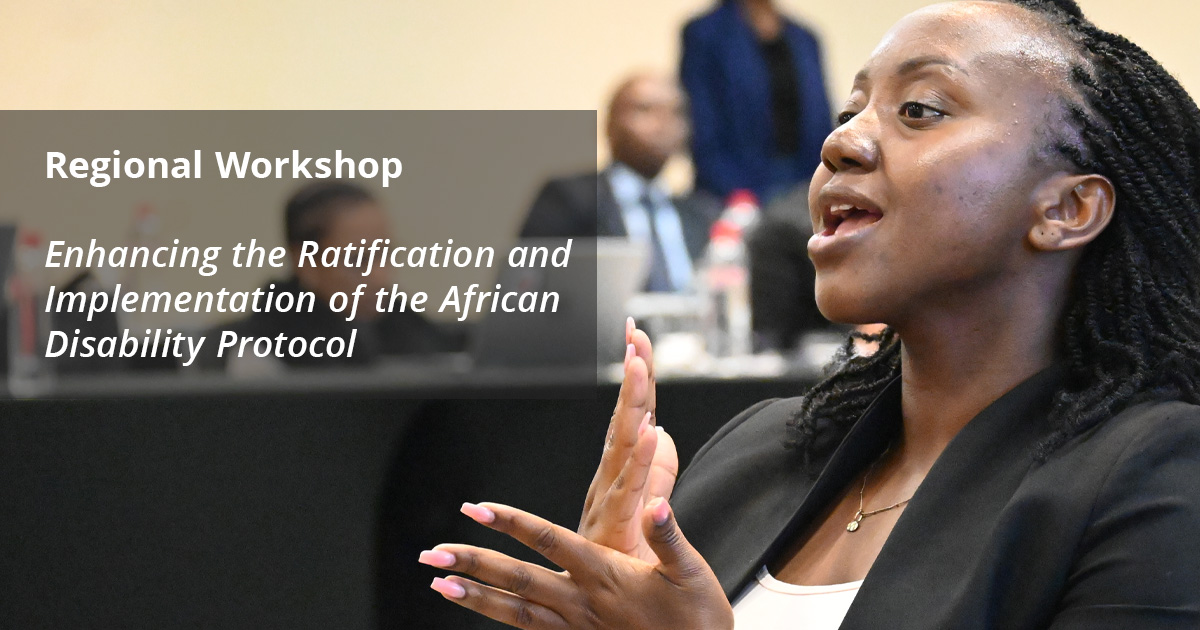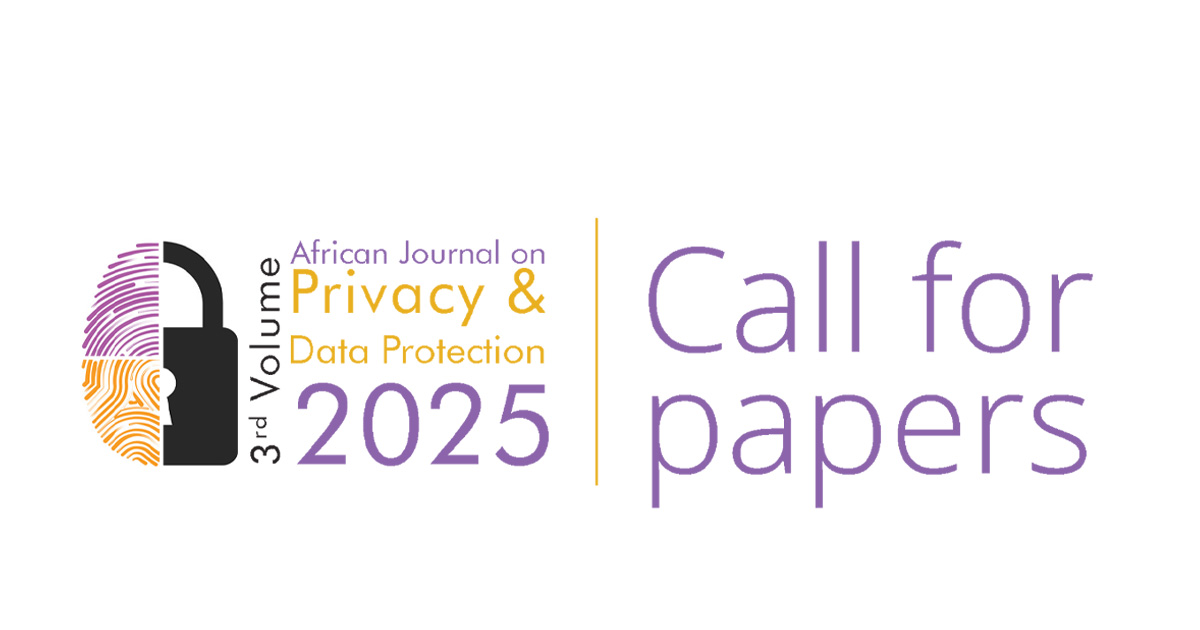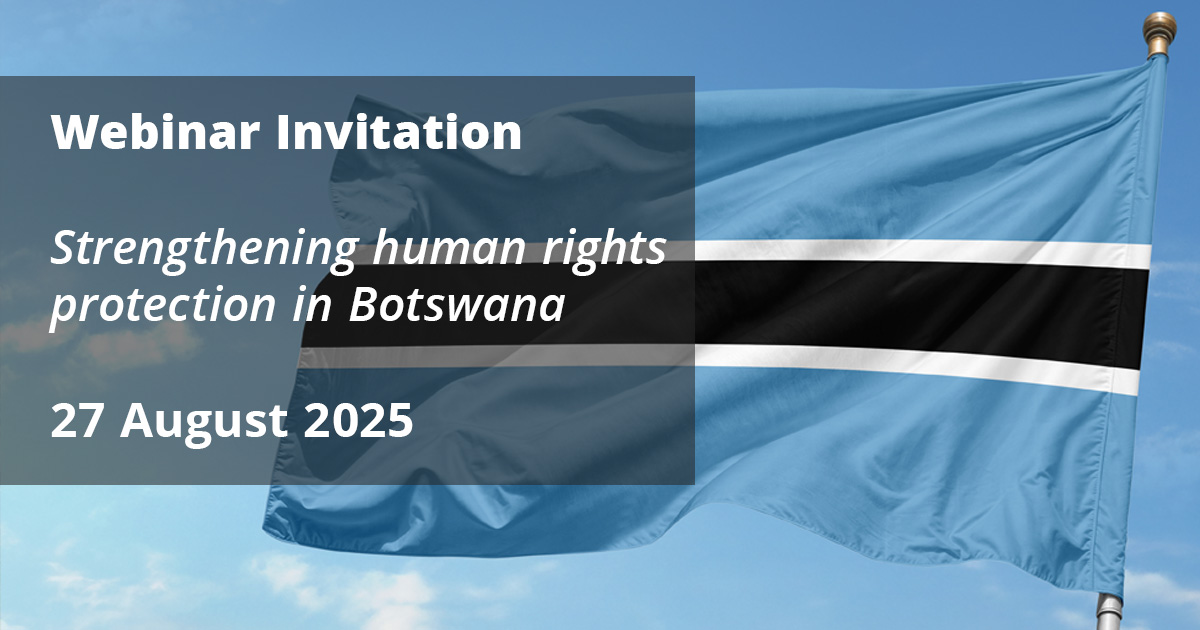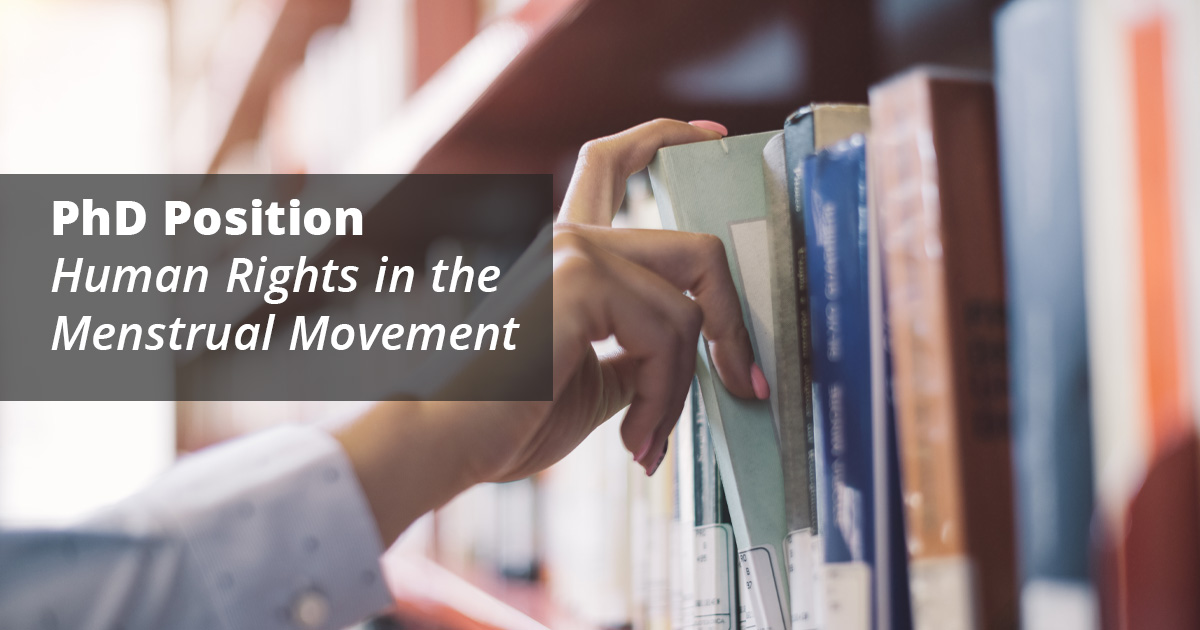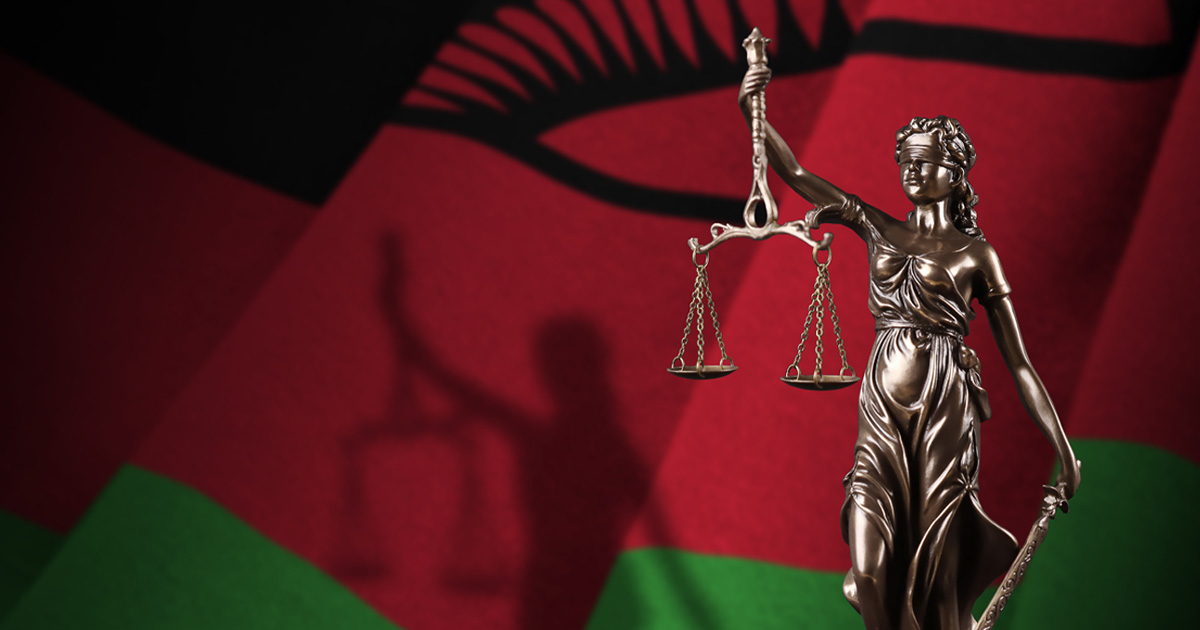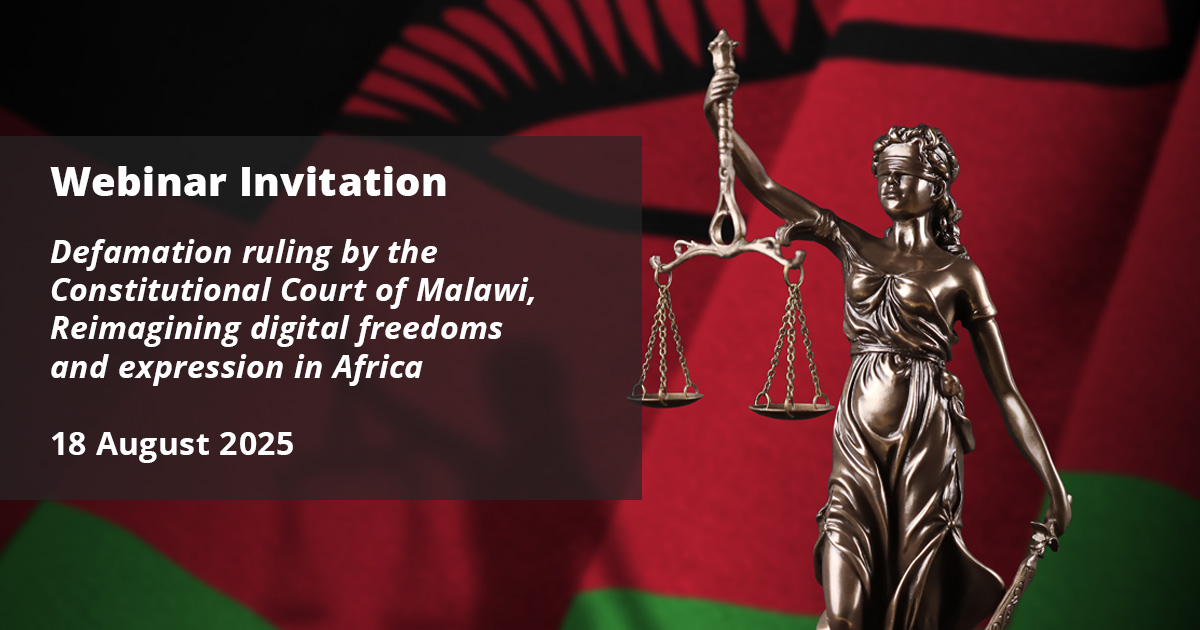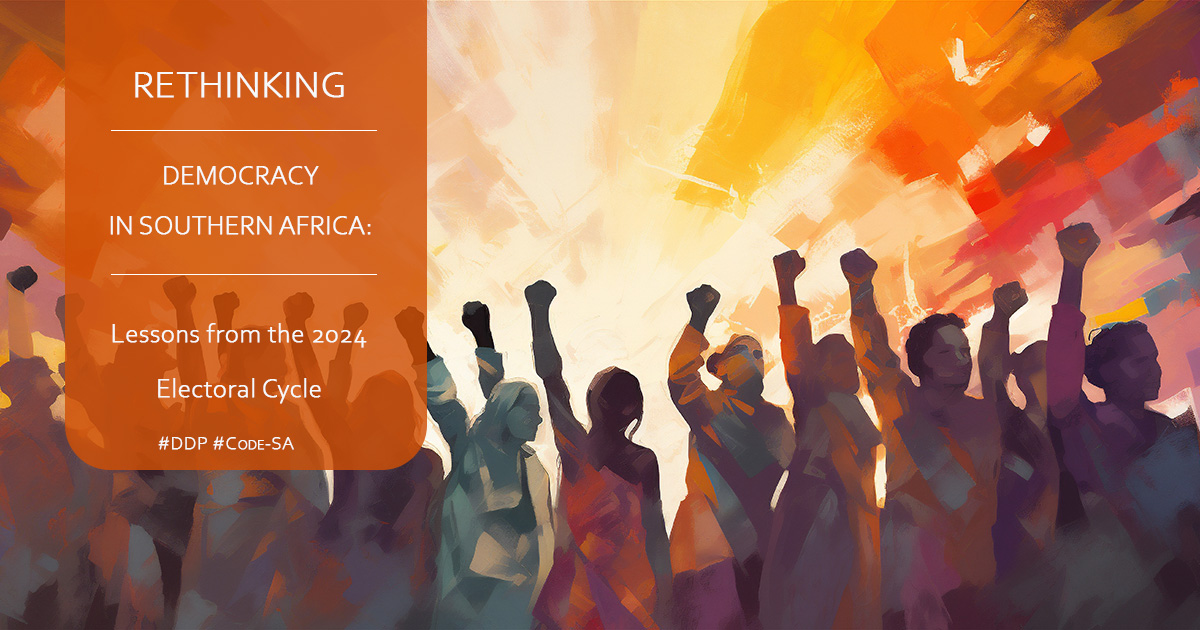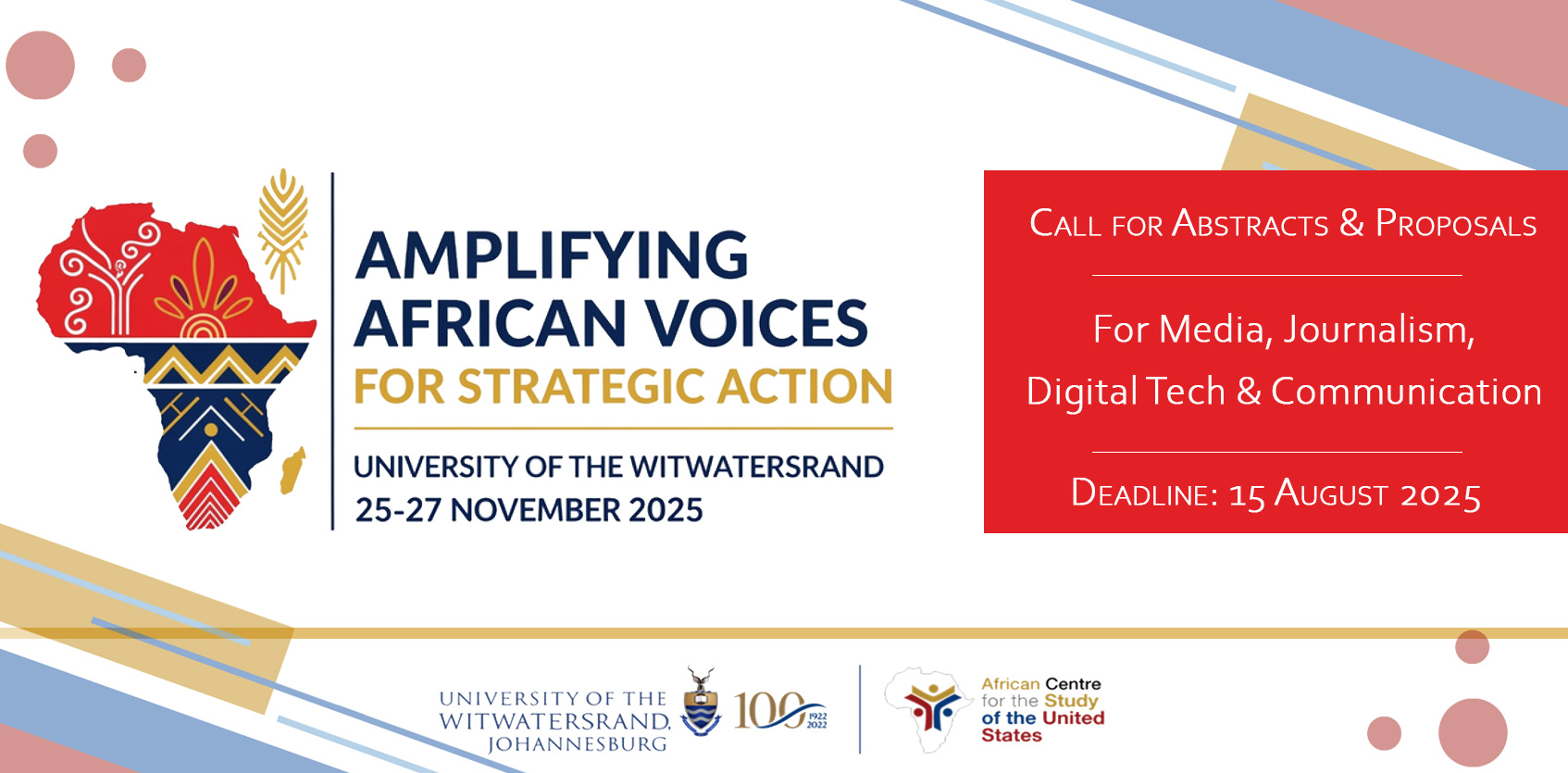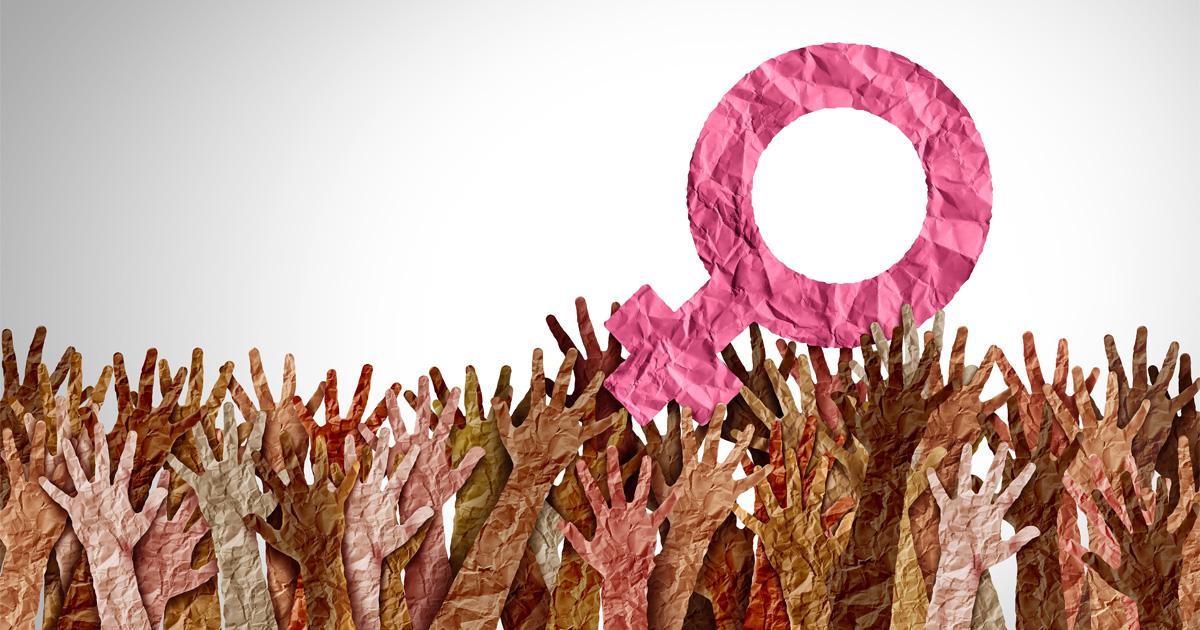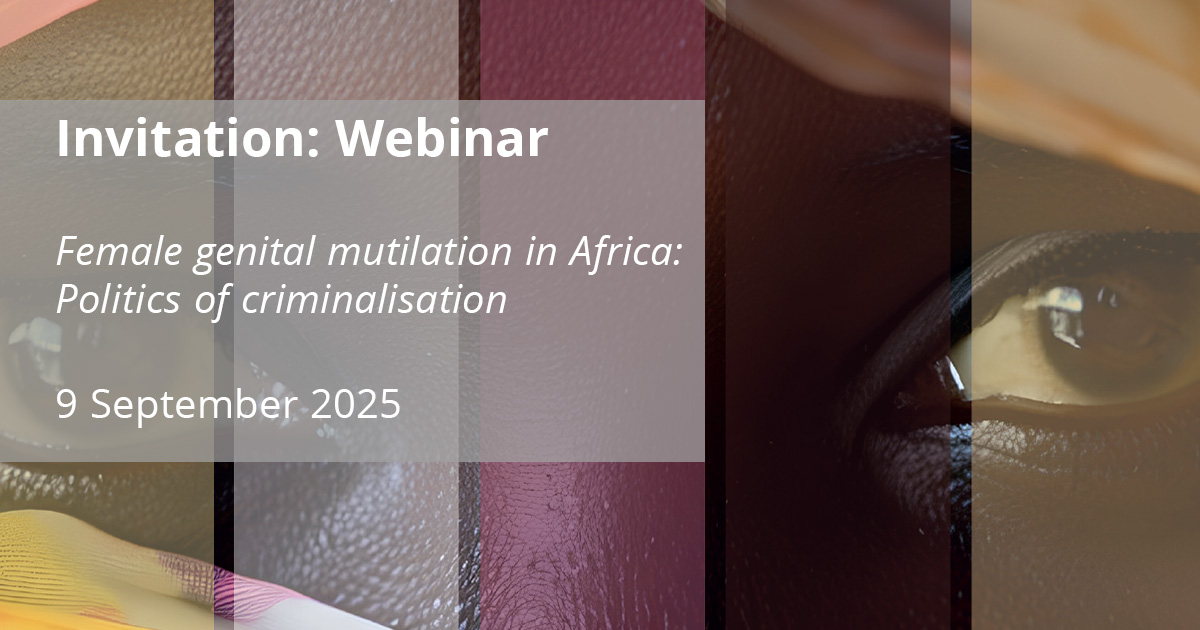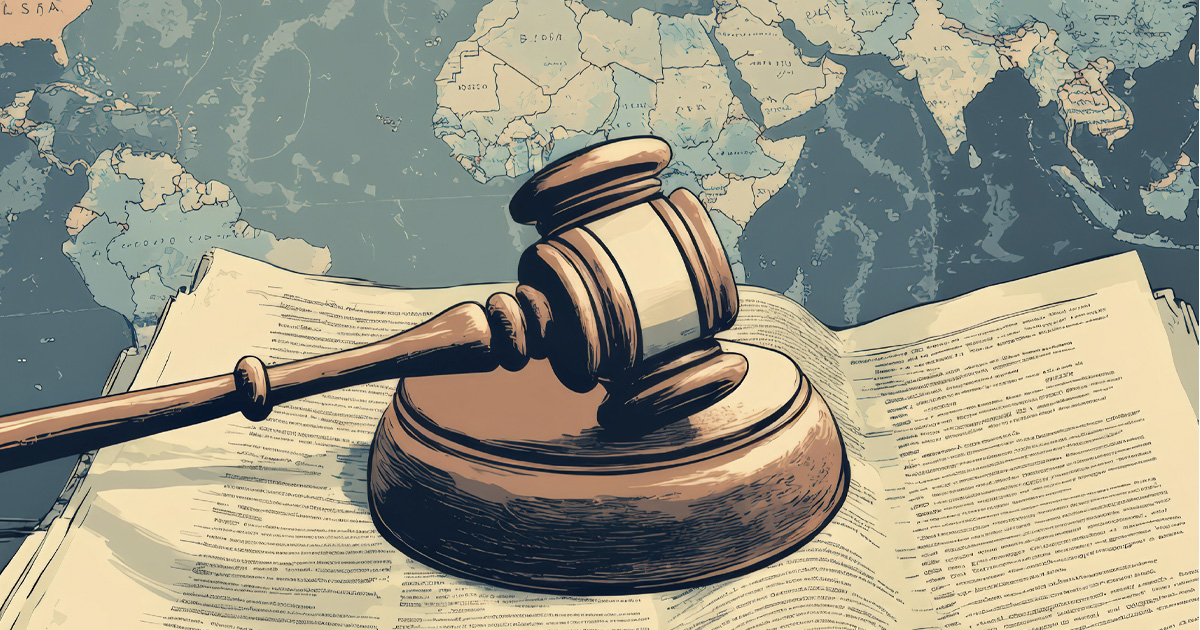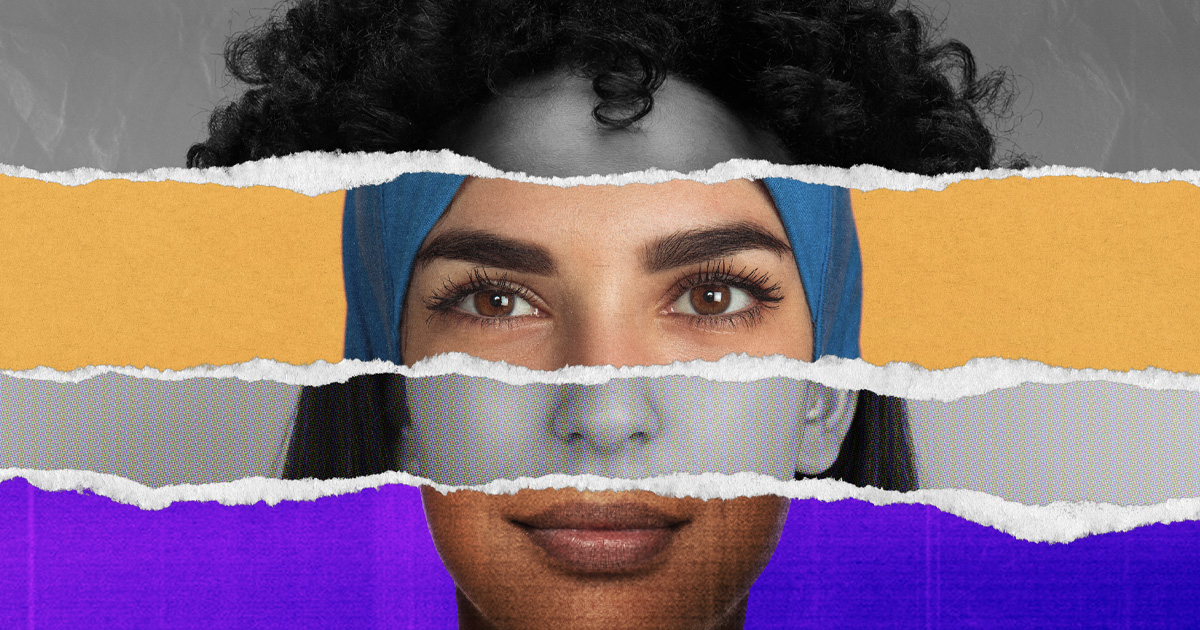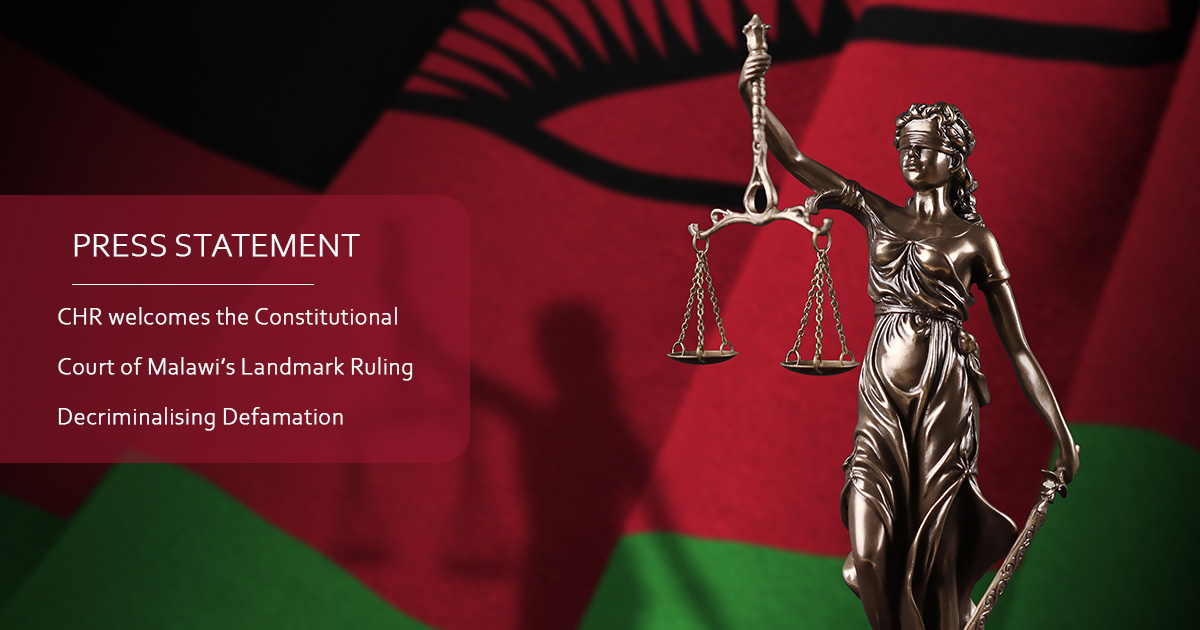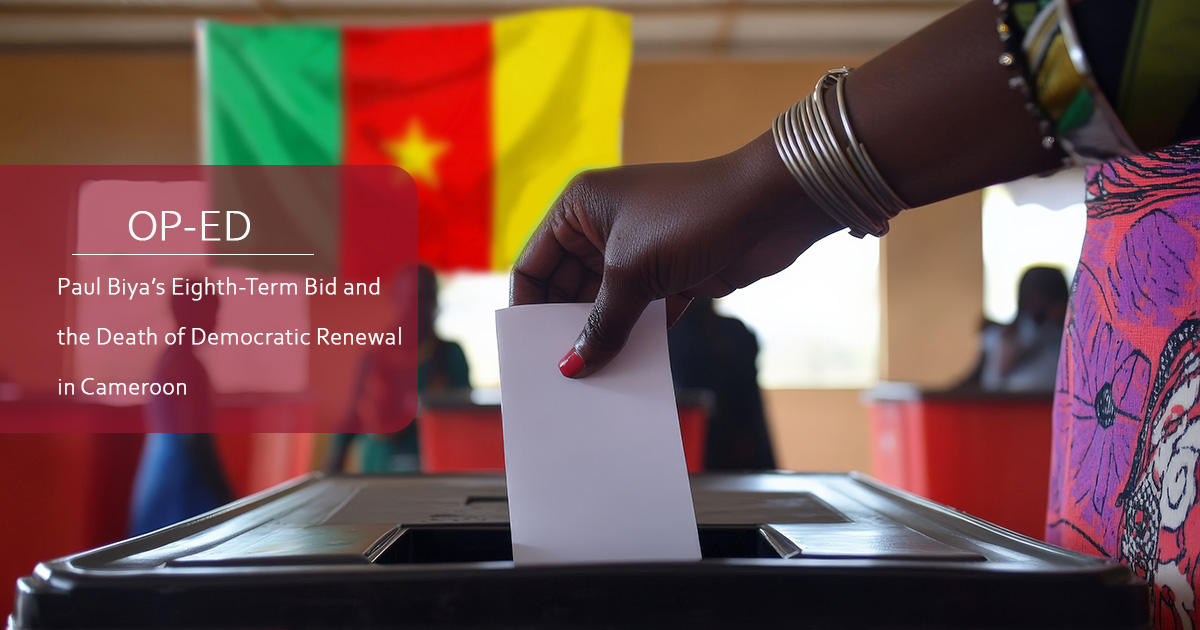- Details
The Centre for Human Rights, University of Pretoria (the Centre), in collaboration with Open Society Foundation will host a webinar to launch the Democratic Republic of Congo (DRC) Elections Report titled “Proactive Disclosure of Information During Elections: An Evaluation of DRC’s Compliance with the Guidelines on Access to Information and Elections in Africa During the Harmonised Elections of 23 August 2023.” This webinar will convene voices from academia, civil society, media, youth formations and public institutions to interrogate the extent to which DRC’s electoral stakeholders complied with the Guidelines on Access to Information and Elections in Africa, adopted by the African Commission on Human and Peoples’ Rights in 2017.
- Details
The Centre for Human Rights, Faculty of Law, University of Pretoria, has officially welcomed the fourth cohort of students to its Disability Rights in Africa (DRIA) master’s programme, marking another milestone in advancing disability rights scholarship on the continent.
- Details
The Centre for Human Rights, Faculty of Law, University of Pretoria, through its Expression, Information and Digital Rights (EIDR) Unit, participated in the 2025 conference of the African Women in Media (AWiM), hosted at the African Union headquarters in Addis Ababa, Ethiopia from 4 to 5 December 2025. The conference was convened under the theme “Beyond Commitments: Advancing Policies for Gender-Safe Media”.
- Details
Today, 13th February 2026, is World Radio Day, a moment to pause and honour one of the most familiar companions of our lives.
Radio represents and advances the fundamental rights to freedom of expression and access to information. Most of us grew up with the radio. It was always there in the background of ordinary days, perhaps resting on a kitchen shelf, placed on the bedside table, balanced on a windowsill, or tucked into the corner of a small shop. It played in buses and minibuses, in taxis, tro-tros, jeepneys, dala-dalas, colectivos and matatus. It kept farmers company in the fields, vendors alert at their stalls, drivers awake on long roads, and families connected long before smartphones entered our pockets.
- Details
The Human Rights Centre at the University for Peace (UPeace) invites you to participate in a fully online training on Multilateral Development Banks’ Accountability Mechanisms from 14 -15 May 2026 at 9:00am–12:00md (GMT-6).
- Details
Are you interested in contributing to the academic and practical excellence of organising international moot court competitions?
The Centre for Human Rights, Faculty of Law, University of Pretoria, is an internationally recognised institution combining academic excellence with impactful advocacy to advance human rights, particularly in Africa. The Centre organises and coordinates leading international and regional moot court competitions – the Christof Heyns African Human Rights Moot Competition and the Nelson Mandela World Human Rights Moot Court Competition – which form a core component of its teaching, training and advocacy mandates.
The Centre invites applications for the position of Moot Court Competitions Assistant Coordinator, to start at the beginning of the 2026 academic year. This position is intended for a doctoral candidate (LLD or PhD)who will be starting his or her doctoral studies in 2026 at the University of Pretoria. The role offers a valuable opportunity to gain project management experience alongside doctoral studies.
The position will be based at the Centre for Human Rights, University of Pretoria. The successful candidate will work closely with the Moot Court Coordinator and the Centre’s academic staff to support the effective planning, preparation and execution of the Centre’s moot court activities.
- Details
The Centre for Human Rights, Faculty of Law, University of Pretoria in collaboration with the Thulani Maseko Foundation, Human Rights Watch, Amnesty International and the International Commission of Jurists invite you to the Third Thulani Maseko Memorial Lecture under the theme: ‘The role of solidarity in advancing justice and accountability for the persecution of human rights defenders in Eswatini’.
- Details
Comprehensive Sexuality Education (CSE) is central to advancing young people’s sexual and reproductive health and rights (SRHR). While Malawi has demonstrated policy commitment to CSE, persistent challenges remain in implementation and coherence.
- Details
The 10th of February 2026 marks Safer Internet Day. This year’s theme, “Smart tech, safe choices: exploring the safe and responsible use of AI” could not be more relevant for children growing up online today. In South Africa, where more than 95 % of children regularly use the internet, digital spaces are now as central to childhood as classrooms, homes and playgrounds. That transformation has created opportunities, but it has also stressed rights that our Constitution already guarantees.
- Details
By Tendai Mbanje
Citizens of Burkina Faso now endure life stripped of dignity, denied the rights to political participation, association, expression, and assembly. Under the self‑proclaimed pan‑Africanist Captain Ibrahim Traoré, the promise of liberation has curdled into repression. Once hailed as a defender of sovereignty, Traoré has become an oppressor to his own people, extinguishing freedoms and ruling through fear.
- Details
By Michael Aboneka
Ugandans went to polls on 15 January 2026 and despite assurances by the Ministry of ICT and the Uganda Communications Commission (UCC) that the internet would remain on, the government once again pulled the "kill switch" on 13 January 2026 with no legal justifications whatsoever. UCC in their communication noted that they received direction from the national security council to switch off the internet due to security reasons. Despite having It is clear that the 2026 shutdown was not just a political tactic; it was a systemic dismantling of the human rights that underpin a free society.
- Details
18–19 November 2025 — Gqeberha, South Africa
The Centre for Human Rights hosted a two-day Community Leadership and Human Rights Training Workshop in Gqeberha from 18 to 19 November 2025. The event brought together 37 participants, including community leaders, civil society actors, educators, healthcare workers, students, high school learners, faith-based representatives, and members of migrant and refugee communities. The workshop aimed to deepen understanding of human rights and migration, promote constructive dialogue, and strengthen social cohesion at the community level.
- Details
UN reports that more than 300 incidents of government-enforced shutdowns have been recorded in over 54 countries in just the past two years
In the 21st century, democracy is meant to thrive on transparency, participation, and the free flow of information. Yet, a new cancer is eating away at its foundations: state-sponsored internet shutdowns. Once considered rare and extreme, these digital blackouts have become disturbingly routine. UNESCO reports that more than 300 incidents of government-enforced shutdowns have been recorded in over 54 countries in just the past two years. The year 2024 was the worst on record since monitoring began in 2016, and the trend has only worsened into 2026.
- Details
By Lakshita Kanhiya, LLD Candidate, Centre for Human Rights, University of Pretoria
A silence that is becoming harder to justify
For a country that frequently presents itself as a model democracy and a defender of the rule of law, Mauritius’ prolonged silence before Africa’s principal human rights body is increasingly difficult to explain. The State’s periodic report under the African Charter on Human and Peoples’ Rights (and relevant protocols) has been due since 2024. While Mauritius prepared and submitted its 11th Periodic Report under the African Charter on Human and Peoples’ Rights covering the period from August 2020 to April 2024, it failed to appear before the African Commission on Human and Peoples’ Rights (African Commission / Commission), the treaty body mandated to supervise the implementation of the provisions of the Charter to present it and engage in constructive dialogue with the Commission, so that the Commission can provide its feedback through issuing concluding observations. Mauritius was listed on the agenda of both the 81st Ordinary Session held in November 2024 and the 85th Ordinary Session held in October 2025 in The Gambia. On both occasions, the State delegation did not show up. As 2026 begins, the question can no longer be postponed, is Mauritius ready to account for its human rights record to the African Commission, or will it once again remain absent?
- Details
This edited volume seeks to re-center the Global South as a critical site of knowledge production and praxis on disability and chronic illness. It challenges the uncritical transfer of Euro-American theoretical models that often fail to reflect the social, political, and cultural realities of people living with disabilities and chronic illnesses in developing contexts. Instead, it promotes a decolonial rethinking of disability and chronicity one that values local epistemologies, community-based resilience, and intersectional justice.
- Details
Digital transformation has emerged as one of the most significant forces reshaping governance, economic development, and social relations worldwide. Advances in artificial intelligence, cloud computing, digital platforms, and data-driven systems increasingly influence how states function, how economies integrate, and how rights are understood and protected. Both African and Asian countries are navigating complex opportunities and challenges as they adapt their regulatory frameworks to keep pace with rapid technological change.
- Details
We stand in solidarity with Birzeit University, a member university of the Global Campus of Human Rights and a founding member of the Arab regional programme in Democracy and Human Rights, with its leadership, its faculty, its staff and its students.
- Details
Applications are invited for the award of the first Christof Heyns Human Rights Scholarship. Applications are open to current or prospective doctoral candidates studying towards a doctoral degree in human rights at the University of Pretoria.
Download Call for Applications
CLOSING DATE: The last day for applying is 30 January 2026.
- Details
Uganda goes to the polls on 15 January 2026. Ugandans will elect the president, members of parliament for a five‑year term. As the date of the elections draws near, various stakeholders have argued that these polls are not a celebration of democracy, but rather a repetition of authoritarian consolidation. Despite the presence of 27 political parties and over 21 million registered voters, human rights groups have reported that the electoral environment is marred by violence, repression, and systematic human rights violations. For instance, Amnesty International and Human Rights Watch have documented widespread intimidation, arbitrary arrests, and torture of opposition supporters, underscoring that these elections mean little for ordinary citizens. What should be a moment of democratic renewal has instead become another occasion for authoritarian entrenchment, echoing the failures seen in Tanzania’s recent elections, yet another troubling example within the East African Community (EAC).
- Details
On 20 November 2025, the Centre for Human Rights (CHR), Faculty of Law, University of Pretoria, in collaboration with UNESCO, hosted the second webinar in the Social Media 4 Peace (SM4P) Phase II series. Building on the foundational discussions of the first session, this webinar focused on advocacy strategies, coalition-building and platform engagement. The virtual gathering provided a critical space for 35 participants representing civil society, academia, media and youth and women’s organisations to share expertise on navigating the complexities of digital governance. The series serves as an essential precursor to the upcoming workshop in Cape Town, designed to equip stakeholders with the necessary tools to translate research and lived experiences into actionable policy interventions.
- Details
On 13 November 2025, the Centre for Human Rights (CHR), Faculty of Law ,University of Pretoria, in partnership with UNESCO, successfully convened the first webinar of the Social Media 4 Peace (SM4P) Phase II initiative. Titled “Foundations of Content Governance and Digital Rights,” the session brought together 20 participants from academia and civil society to establish a conceptual and legal framework for addressing online harms. This inaugural session serves as a cornerstone for the project’s goal of raising awareness among global stakeholders to address harmful content while strictly safeguarding freedom of expression and access to information.
- Details
By Belinda Matore, an LLD candidate and project officer at the Centre for Human Rights, Faculty of Law, University of Pretoria
It is indisputable that the modern influencer stands as a central figure in contemporary digital life. These individuals, whether operating on TikTok, YouTube or Instagram, possess the ability to translate complex ideas into accessible stories, set cultural rhythms and command the attention of audiences who often hold a deep scepticism toward traditional institutions. We routinely measure their success by the breadth of their reach, their follower counts, their engagement rates, and their capacity to drive consumer behaviour. Yet by focusing solely on the extent of their influence, we overlook a far more critical question: who influences the influencer? The answer is not merely academic; it is profoundly relevant to the health of public discourse. The systemic forces shaping a creator’s message are, by extension, the forces shaping what millions of people see, share, believe and often fight about online. If we seek to educate the public about online harms and cultivate a more peaceful digital environment, we must first understand and, at times, strategically disrupt these powerful underlying forces.
- Details
Global South Rising: Towards Equity, Justice, and Decolonising International Law Symposium
The Centre for Human Rights (Centre) and the NRF Chair in International Constitutional Law, at the Law Faculty at University of Pretoria, in partnership with the Law Faculty of the University of Hamburg, co-hosted the Global South Rising: Towards Equity, Justice, and Decolonising International Law Symposium from 8 to 9 December 2025 at the University of Pretoria Moot Court Room. The two-day event brought together 50 participants, including senior scholars, researchers, practitioners and students from the Global South and the Global North to critically interrogate the historical and contemporary foundations, structures, and logics of international law from Global South perspectives, and to propose pathways for reconstructing the field in more equitable and inclusive ways. This year marked the second event in the Global South Rising Symposium series initiated by Dr. Dorothy Makaza-Goede and first hosted at the University of Hamburg in November 2024, with funding from the Excellence Strategy of the Federal and State Governments (Germany).
- Details
The Vera Chirwa Award winners for 2025 were announced on International Human Rights Day, 10 December 2025, at the University of Pretoria Graduation and Awards Ceremony. Exceptionally, the Vera Chirwa Award was jointly awarded to three laureates. The careers of these three exceptional awardees, Abiola Idowu-Ojo, Ayalew Getachew and Horace Adjolohoun, brought them to currently serve at the helm of the three African Union (AU) human rights bodies. Abiola is the Executive Secretary of the African Commission on Human and Peoples' Rights (African Commission); Ayalew is the Acting Executive Secretary of the African Committee of Experts on the Rights and Welfare of the Child (African Children’s Committee); and Horace is the Head of the Legal Division at the African Court on Human and Peoples' Rights (African Court).
- Details
By Sally Ncube and Nkatha Murungi
The challenge is to initiate measures to strengthen the protection, participation and visibility of women and girls within the realm of climate policy.
- Details
From 23 to 25 November 2025, the Centre for Human Rights, Faculty of Law, University of Pretoria, participated in the 27th meeting of the Civil Society Organisations Forum on the African Charter on the Rights and Welfare of the Child (CSO Forum), held in Maseru, Kingdom of Lesotho. The Forum took place ahead of the 46th Ordinary Session of the African Committee of Experts on the Rights and Welfare of the Child (ACERWC), and the Symposium commemorating the 35th anniversary of the African Children’s Charter.
- Details
2025 marks the 35th anniversary of the adoption of the African Charter on the Rights and Welfare of the Child (ACRWC). The African Committee of Experts on the Rights and Welfare of the Child (the Committee) celebrated this milestone by hosting a symposium during its 46th Ordinary Session held in Maseru, Lesotho. During the symposium, the Centre for Human Rights, Faculty of Law, University of Pretoria (the Centre) partnered with Inclusion Africa to participate in a panel discussion titled ‘Children with Disabilities: Lessons and Policy Directions.’
- Details
Uganda goes to the polls on 15 December 2025 and the presidential campaigns by the 8 candidates are in high gear. When the campaigns kicked off at the end of September 2025, they were dubbed peaceful and everyone thought, for the first time, that the campaigns will be a peaceful event, free from state orchestrated violence. Lo and behold, we celebrated too early, the campaigns are now bloody with 45 days left to the polling day. This is not the first time the state apparatus has meted violence on Ugandan voters. In November 2020, 54 Ugandans were killed in just two days while exercising their right to protest following the arrest of the opposition candidate, Robert Kyagulanyi. Police and other security agencies fired live ammunitions which led to their death and injured many others. Today, Uganda’s political landscape continues to be stained by the reckless and violent suppression of opposition campaigns especially the brutal dispersal of rallies organized by NUP’s presidential Candidate Robert Kyagulanyi and other opposition candidates in a few instances. What should be moments of democratic participation, public debate, and political choice have instead become scenes of horror with civilians running from gunfire, bodies lying in blood in streets, families mourning loved ones shot down for daring to attend a campaign, imagine, a mere campaign rally.
- Details
The Price Media Law Moot Court Competition is one of the world's oldest human rights moot court competitions and indeed the only international moot to focus on the human rights aspects of media law. It is entering its 20th year in 2026. Typically, teams participate from around the world through regional rounds. Qualifying teams compete in the International Final Round that takes place in Oxford.
- Details
Introduction
More than just a date, 25 November serves as a stark reminder of the urgent need to end all forms of violence against women (VAW), commemorated globally as the International Day for the Elimination of Violence Against Women. It is also a call for decisive action to ensure justice for women who have been killed and to hold perpetrators accountable. The United Nations (UN) reports that nearly one in three women worldwide has been subjected to physical and/or sexual intimate partner violence at least once in their life. Even more worrying is that despite ongoing efforts by civil society organisations and states, VAW is increasingly overshadowed by a global rise in femicide, with one woman or girl being killed every 10 minutes. This alarming trend underscores the urgent need to strengthen our collective efforts, mechanisms and legal frameworks, which remain insufficient to protect women today.
- Details
On the 22 November 2025, the Centre for Human Rights, Faculty of Law, University of Pretoria held a workshop in Maseru, Kingdom of Lesotho. This workshop, the fourth of its kind following previous workshops in Zambia, Malawi and Kenya, focused on “Promoting Child Participation in Development Frameworks in Africa” and establishing a Child Leadership Teams in Lesotho which will form part of the African base of the Global Campus for Human Rights, Child Leadership Team (GC-CLT).
- Details
On 19 - 20 November 2025, Centre for Human Rights, Faculty of Law, University of Pretoria (the Centre) and Deutsche Gesellschaft für Internationale Zusammenarbeit (GIZ) hosted a workshop for strengthening the technical capacity of CSOs/NGOs and Individual lawyers to litigate violations of children’s rights before African Committee of Experts on the Rights and Welfare of the Child (ACERWC). The workshop brought together civil society organisations and lawyers from four of the African regions.
- Details
On 8 November 2025, the Centre for Human Rights, Law Faculty, University of Pretoria (the Centre) in partnership with Open Society Foundations (OSF) and the Pan-African Parliament (PAP) hosted the third annual civil society parliamentary dialogue, at the Pan-African Parliament Precinct. The dialogue aimed to strengthen parliamentary-civil society collaboration on democracy, human rights, and governance across Africa. This dialogue brought together civil society organisations, academics, university students and legislators from across the continent.
- Details
The Centre for Human Rights, Faculty of Law, University of Pretoria cordially invites you to to the second webinar on Social Media 4 Peace (SM4P) project, an initiative of UNESCO, addresses these challenges by promoting resilience against online harms, supporting evidence-based policy engagement and encouraging coalition-building. Phase II focuses on capacity strengthening, research and policy influence, with emphasis on vulnerable and marginalised groups.
- Details
FACULTY OF LAW CENTRE FOR HUMAN RIGHTS
ASSOCIATE PROFESSOR/PROFESSOR AND HEAD OF DEPARTMENT/
DIRECTOR: CENTRE FOR HUMAN RIGHTS (ONE POST)
The University of Pretoria is one of the leading research-intensive universities in South Africa. Its nine faculties and business school offer a wide range of undergraduate and postgraduate programmes. We are a diverse and dynamic community of staff and students committed to excellence, diversity, sustainability, and making a difference.
- Details
By Belinda Matore, an LLD candidate and project officer at the Centre for Human Rights in the Faculty of Law at the University of Pretoria
Imagine a child lacing up their shoes, ready to run onto the field not just to play, but to chase dreams, sometimes their own, sometimes their parents. For many kids, sport is a source of freedom, laughter and discovery. But too often, that joy gets tangled up in adult expectations and ambitions, turning something meant to inspire into a pressure cooker. While parents play a vital role in supporting young athletes, their hopes and desires can clash with a child’s right to choose, enjoy and grow through sport. This tension raises important questions about whose dreams are really being pursued and how we can protect children’s rights to have a voice in the game.
- Details
Are you interested in supporting the efficient delivery of an impactful multi-country research project?
The Centre for Human Rights is an internationally recognised university-based institution combining academic excellence and effective activism to advance human rights, particularly in Africa. It aims to contribute to advancing human rights, through education, research and advocacy. Centre is a partner in an innovative UKRI Future Leaders Fellowship project, hosted at the University of Bradford, that focuses on advancing gender-inclusive climate change governance in case study countries.
- Details
The Centre for Human Rights, Faculty of Law, University of Pretoria in partnership with UNESCO under the Social Media 4 Peace (SM4P) Phase II Project cordially invites you to a webinar on Social Media 4 Peace (SM4P) Webinar Series on Content Governance and Digital Rights
- Details
By Belinda Matore, an LLD candidate and project officer at the Centre for Human Rights in the Faculty of Law at the University of Pretoria
Images of children participating in sport are widespread across social media, club websites, newsletters and broadcasts. While such images celebrate achievement and community, they also expose minors to risks such as exploitation, cyberbullying, identity theft and digital permanence. In South Africa, legal protection for children’s images arises from the Constitution, common law personality rights and the Protection of Personal Information Act 4 of 2013 (POPIA). Yet these frameworks only partially address how children’s images intersect with safeguarding in digital environments.
- Details
From 4 - 5 November 2025, the Disability Rights Unit at the Centre for Human Rights, Faculty of Law, University of Pretoria hosted the ‘13th Annual disability rights in Africa conference’ under the theme ‘The African Disability Protocol: Promise and Challenges’. The conference was held in hybrid format at Southern Sun Hotel, OR Tambo International Airport and online via zoom. The aim of the conference was to critically engage with the substantive content of the Protocol to the African Charter on Human and Peoples’ Rights on the Rights of Persons with Disabilities in Africa (African Disability Protocol), and to interrogate strategies for its successful implementation in order to bring about the desired social change. The Conference brought together different stakeholders, including academics, civil society groups, policy makers and international and regional institutions, interested in advancing the rights of persons with disabilities in Africa through the implementation of the African Disability Protocol.
- Details
The 17th Nelson Mandela World Human Rights Mood Court Competition concluded at the European seat of the United Nations, the Palais des Nations in Geneva, Switzerland, on 18 July 2025, on day of commemorating 105 years since the birth of the internationally renowned human rights icon Nelson Mandela.
Midlands State University of Zimbabwe represented by Michelle Tanatsirwa Patricia Chiwanga and Watson Tonderai, emerged as the winners, with the Universidad Nacional de Colombia at Bogotá represented by Emily Pedraza Ochoa and John Santiago Cifuentes Rincón, clinching the runners-up spot. The two other teams that advanced to the semi-finals are University of Santo Tomas,(Philippines), which was represented by Joelle Joie Cruz and Exelcis Bernal and Symbiosis Law School NOIDA - Symbiosis International University, represented by Shashank Bhatt and Archisha Dhar. That the four top teams hailing from four different continents (Africa, Asia and Latin America), underscores the diversity and global reach of this Competition.
- Details
On 21 October 2025, the Centre for Human Rights, Faculty of Law, University of Pretoria, convened a consultative side event during the 85th session of the African Commission on Human and Peoples’ Rights in Banjul, The Gambia. Hosted in collaboration with the African Civil Society Engagement (ACSE), a coalition of dedicated African civil society organizations, the side event focused on advancing a general comment to strengthen the protection against discrimination and other human rights violations based on real or imputed sexual orientation and gender identity, building on the foundation laid by Resolution on Protection against Violence and other Human Rights Violations against Persons on the basis of their real or imputed Sexual Orientation or Gender Identity (Resolution 275) https://achpr.au.int/en/adopted-resolutions/275-resolution-protection-against-violence-and-other-human-rights-violations and Resolution on the Protection and Promotion of the Rights of Intersex Persons in Africa (Resolution 552).
- Details
The Centre for Human Rights, Faculty of Law, University of Pretoria, convened a two-day virtual Symposium on Privacy and Data Protection in Africa on the 22nd and 23rd October 2025. The Symposium that was hosted by the Expression, Information and Digital Rights Unit, convened over 50 participants, including data protection authorities, scholars, students, legal practitioners, policymakers, and researchers from across Africa and beyond. The symposium was convened against the backdrop that protection of privacy and personal data in the fast growing digitalizing world is one of the most pressing human rights challenges of the 21st century. Further, digital transformation is growing through online service delivery, artificial intelligence, and e-governance which pose both opportunities and threats such as data breaches and surveillance among others, underscoring the need for sustained and inclusive discourse on the subject.
- Details
The complicit silence or inaction of the AU at preliminary stages like these must be acknowledged and condemned for its direct contribution to the propagation of failed leadership in Africa and the perpetual suppression of its own citizens.
Recent elections in Cameroon and Tanzania have demonstrated further that even at the risk of entrenching undemocratic processes, the African Union (AU) prefers softer approaches towards the realisation of its principles of peace, security and good governance.
- Details
Pretoria, 3 November 2025 -The Centre for Human Rights, Faculty of Law, University of Pretoria, in partnership with the Open Society Foundations (OSF) and the Pan-African Parliament (PAP), are hosting the Third Civil Society Parliamentary Dialogue on 8 November 2025 at the Pan-African Parliament precinct in Midrand, Gauteng, South Africa.
- Details
When dawn breaks, the world stirs. But for many women journalists, the darkness continues. Because the threats they face are no longer only physical. They are digital and intimate and they are magnified by technology. On this 2 November, the Centre for Human Rights, Faculty of Law, University of Pretoria stands in solidarity with all women journalists, especially those whose voices are threatened by gender-based violence (GBV) facilitated or amplified through AI and recommits to ensuring that impunity no longer shields the abusers.
- Details
By CHR and HOLAAfrica
It is Pride Month 2025 in South Africa and the country is still fraught with the intersecting issues of homophobic sexual violence and the broader issue of gender based violence. Historically, South Africa’s human rights constitutional framework is lauded as hopeful and inspiring. South Africa is arguably the birthplace for the liberation of African sexual and gender minorities and a beacon of queer African hope and joy, if there ever was. However, over the decades South Africa has recorded alarming recurrences of hate-based brutality towards queer persons, especially through sexual violence. And sex has been repeatedly weaponised to curb the liberation, human rights and dignity of queer persons. Regardless of what any culture or philosophy says, the human body should never be seen as a site of domination, and the use of sex as a tool for correction/rehabilitation, or as a weapon of violence, is unlawful, unAfrican and dehumanising .
- Details
On the 07th October 2025, the Centre for Human Rights, Faculty of Law, University of Pretoria convened a roundtable on “Cybersecurity and the Digital Rights of Marginalised Groups in Africa: Towards an Inclusive Human Rights Agenda” as part of its contribution to Cybersecurity Awareness Month. The discussion reaffirmed the need to view cybersecurity not merely as a technical concern but as a fundamental human rights issue. The roundtable formed part of the Centre’s broader efforts to promote digital rights, inclusion and cybersecurity through a human-rights lens.
- Details
22–23 October 2025 | Sunbird Capital Hotel, Lilongwe, Malawi
From 22 to 23 October 2025, the Centre for Human Rights, Faculty of Law, University of Pretoria and Youth and Society (YAS), with support from the Raoul Wallenberg Institute on human rights and humanitarian law (RWI) convened a stakeholder dialogue and Round Table on the Implementation of decisions issued by African Human Rights Bodies in Respect of Malawi.
- Details
By Tendai Mbanje and Tito Magoti
Reports from polling stations this morning paint a bleak picture of civic abandonment. Between 7:00 a.m. and 8:00 a.m., some polling station saw no voters at all. A few women arrived between 8:45 and 10 a.m. These polling stations were not staffed by independent electoral officials, but by armed soldiers, an unmistakable symbol of coercion rather than civic participation. Most international election observers had already left the country by yesterday, citing intimidation and threats to their safety, with the EU conducting a ‘diplomatic watch.’ Meanwhile, digital repression intensified: access to platforms like X, TikTok and YouTube has been restricted since yesterday, further isolating citizens and silencing dissent. Huge military presence in major cities has created a climate of fear and terror, further diluting the whole meaning of democratic elections.
- Details
In pursuit of the ideals of excellence and diversity, the University of Pretoria wishes to invite applications for the Project Manager: Sexual Orientation, Gender Identity and Expression, and Sex Characteristics vacancy. The University of Pretoria's commitment to quality makes us one of the top research Universities in the country and gives us a competitive advantage in international science and technology development.
- Details
On 26 April 2024, the United Nations Secretary-General launched the Panel on Critical Energy Transition Minerals. The historic Panel brought together governments, intergovernmental and international organisations, industry and civil society, to develop a set of common and voluntary principles to build trust, guide the transition and accelerate the race to renewables. The main reason for setting the panel was to insulate communities from the negative impacts of Critical Energy Transition mining activities on livelihoods, the environment, health, human security and human rights as the world jostles for renewable energy.
- Details
The Centre for Human Rights, Faculty of Law, University of Pretoria, cordially invites you to a Stakeholder Engagement on the Information Ecosystem and Elections in South Africa. The engagement will unpack an assessment titled “Proactive Disclosure of Information and Elections in South Africa: National and Provincial Elections 2024.” This study evaluates the extent to which the rights to freedom of expression and access to information were realised during the 2024 elections, in line with the African Charter on Human and Peoples’ Rights (African Charter) and related regional instruments. The assessment builds on earlier studies of the 2019 and 2021 electoral cycles and contributes to the broader Leveraging Technology for Change initiative.
- Details
The Centre for Human Rights (CHR) Faculty of Law, University of Pretoria was honoured to collaborate with Heart and Soul TV(HSTV) in co-hosting the inaugural Southern Africa Media Summit (SAMS), held on 15-16 October 2025 in Harare, Zimbabwe. This landmark event convened a diverse range of stakeholders including journalists, media executives, policymakers, civil society organisations and human rights defenders from across Southern Africa. Together they engaged in meaningful dialogue and collective strategising aimed at strengthening independent journalism and reinforcing democratic accountability.
- Details
In pursuit of the ideals of excellence and diversity, the University of Pretoria wishes to invite applications for the Project Manager, Children's Right Unit vacancy. The University of Pretoria's commitment to quality makes us one of the top research Universities in the country and gives us a competitive advantage in international science and technology development.
- Details
The Centre for Human Rights,University of Pretoria in partnership with Open Society Foundations (OSF) and the Pan-African Parliament (PAP), is hosting the Third Civil Society Parliamentary Dialogue on the sidelines of the upcoming November 2025 PAP ordinary sitting.
- Details
The Centre for Human Rights, Faculty of Law, University of Pretoria, invites you to participate in a Symposium on Privacy and Data Protection in Africa, taking place virtually from 22 to 23 October 2025.
- Details
As Malawi demonstrated, when citizens mobilise around shared grievances and demand accountability, no amount of rigging can suppress their voice. The message is clear: leadership must be earned through integrity, service, and results or it will be decisively rejected at the ballot box.
The September 16, 2025, presidential election results in Malawi was a referendum on the leadership of President Lazarus Chakwera. His defeat signified a rejection of an administration widely perceived as failing to fulfill its promises, neglecting the needs of ordinary Malawians, and permitting corruption and economic mismanagement. The administration’s record of economic decline contributed to widespread voter dissatisfaction. This analysis is informed by direct field experience, extensive stakeholder consultations, firsthand interactions with citizens across multiple districts, and on-the-ground election observation in Malawi. It reflects a synthesis of lived realities, local perspectives, and institutional engagement within the Malawian context.
- Details
On 30 September – 3 October 2025 the Centre for Human Rights, Faculty of Law, University of Pretoria, convened a four-day engagement aimed at strengthening the implementation and domestic impact of the decisions of the African Committee of Experts on the Rights and Welfare of the Child (ACERWC) across Africa. The events comprising a two-day high-level conference (30 September–1 October 2025) convened in collaboration with the ACERWC and a two-day civil society capacity-building workshop (2–3 October 2025) were held at the Southern Sun Hotel in Pretoria, South Africa, and streamed live on the Centre’sdigital platforms.
- Details
Applications are invited for the award of the first Christof Heyns Human Rights Scholarship. Applications are open to current or prospective doctoral candidates studying towards a doctoral degree in human rights at the University of Pretoria. The Scholarship is for study in 2026.
Download Call for Applications
CLOSING DATE: The last day for applying is 28 November 2025.
- Details
Thirty-one years ago, South Africa did not just promise democracy; it built institutions to guard that promise. Chief among them was the South African Human Rights Commission (SAHRC), established to be the people’s watchdog: a body capable of investigating, advocating, and mediating when rights were under threat. Its mandate was to ensure that justice, equality, and dignity, the foundational principles of the land, were not abstract ideals but rather lived realities for every South African. Today, the paradox is stark: the country has some of the strongest rights protections on paper, yet many citizens experience democracy as hollow.
- Details
The Facult of Law, University of Pretoria invites students interested in enrolling or who are already enrolled for LLM or LLD studies in the Faculty of Law of the University of Pretoria may apply to be appointed as Academic Associates in one of the departments in the Faculty.
- Details
On 25 September 2025, the Centre for Human Rights, University of Pretoria (CHR), and the Psychological Society of South Africa (PsySSA) (the amici curiae), represented by Lawyers for Human Rights, will appear before the Constitutional Court of South Africa, to make oral submissions as part of their intervention as amici curiae in the matter of The Embrace Project NPC and Others v Minister of Justice and Correctional Services and Others (CCT314/24) and Centre for Applied Legal Studies and Others v The Embrace Project NPC and Others (315/24).
- Details
On 5 September 2025, the Centre for Human Rights, Faculty of Law, University of Pretoria, attended the Johannesburg launch of Japa Fire: An Anthology of Poems on African and African Diasporic Migration, held at The Forge in Braamfontein. The event was organised by the Africa Migration Report Poetry Anthology Series, with the Centre invited to contribute to a panel discussion on migration, identity, and belonging.
- Details
The Centre for Human Rights, Faculty of Law, University of Pretoria cordially invites you to a hybrid roundtable on cybersecurity and the digital rights of marginalised groups in Africa with a focus of an Inclusive human rights agenda.
- Details
On 18–19 August 2025, the Centre for Human Rights, in collaboration with Africa Unite and Refugee Social Services, hosted a two-day training workshop on Community Leadership and Human Rights: Promoting Solidarity and Dialogue at the Diakonia Conference Centre in Durban, KwaZulu-Natal.
The workshop convened 25 participants, including community leaders, educators, healthcare workers, students, faith-based representatives, and members of migrant and refugee communities. The objective was to build knowledge on human rights, migration, and media literacy, while equipping participants with practical tools to counter xenophobia and strengthen social cohesion at the community level.
- Details
Theme: 31 Years of Human Rights in South Africa and 30 Years of the South African Human Rights Commission
The South African Human Rights Commission (SAHRC), in collaboration with the Centre for Human Rights, Faculty of Law, University of Pretoria, and the Barney Pityana Family, cordially invite you top a Human Rights Lecture on Thursday, 2 October 2025, at the Javett Art Centre, University of Pretoria.
- Details
Between 27 August and 4 September 2025, the Centre for Human Rights, Faculty of Law, University of Pretoria undertook a focused series of engagements with stakeholders in Botswana aimed at strengthening the country's human rights architecture. The mission sought to build momentum around the ratification of outstanding African Union human rights instruments. Central to these engagements was the advocacy for Botswana to ratify the Protocol to the African Charter on Human and Peoples’ Rights on the Establishment of an African Court on Human and Peoples’ Rights, and to deposit the optional declaration under Article 34(6) of this Protocol, which would grant individuals and civil society organisations the right to access the African Court directly. These activities took place in the context of Botswana’s recent political transition, marked by the 2024 general elections and the rise to power of a new administration under President Duma Boko. These elections were widely celebrated as a democratic milestone in the region, renewing hopes for progressive policy shifts and a more robust human rights agenda under the new leadership.
- Details
On 8 and 9 September 2025 the Centre for Human Rights, Faculty of Law, University of Pretoria (the Centre) and the Initiatives for Peace and Human Rights (iPeace) hosted a hybrid judicial colloquium on a gender-sensitive approach to realising sexual and reproductive health rights (SRHR) in Africa in Kigali, Rwanda.
- Details
The Centre for Human Rights, Faculty of Law, University of Pretoria cordially invites you to a two day hybrid conference on the Domestic Implementation and Impact of Decisions of the African Committee of Experts on the Rights and Welfare of the Child to deliberate on the state of implementation of the decisions of African Children’s Committee and to consider pathways for improved domestic implementation of decisions.
- Details
The Centre for Human Rights, Faculty of Law, University of Pretoria cordially invites to the AI4IA Satellite Event, hosted by the University of Pretoria in collaboration with IFAP Committee, UNESCO ROSA and the EU-funded Social Media 4 Peace Project Partners in South Africa. This dialogue will bring together government, academia, civil society, media, youth, etc to explore how Artificial Intelligence can strengthen the resilience of societies to spreading harmful online content.
- Details
The Master’s Programme in Human Rights and Democratisation in Africa (HRDA) has a long tradition of training women human rights legal experts who are having an impact across the continent. A recent conference in Nairobi brought together over 100 women for an intergenerational dialogue, in which two alumnae shared their experiences after graduation.
- Details
by Awa Gai
To turn the AU Convention on Ending Violence Against Women and Girls into meaningful action demands all hands on deck to dismantle violence against women and girls and amplify the voices of survivors. The current call for a structured review highlight the need for stakeholer consultation to address gaps in implementation, particularly concerning Article 14.
During the 38th ordinary session of the Assembly of Heads of State and Government of the African Union (AU), held in Addis Ababa, Ethiopia, from 15 to 16 February 2025, the AU adopted the Convention on Ending Violence Against Women and Girls (AU-CEVAWG). This stems from a decision of the AU Heads of State and Government in February 2023, following which there was an endorsement to initiate negotiations for the Convention and its eventual adoption in February 2025. While this marks a significant milestone, feminist litigators and advocates who are active users of the African human rights system call for a pause to review the Convention, particularly to address gaps identified in Article 14 regarding its implementation by the African Commission on Human and Peoples’ Rights (ACHPR).
- Details
On 24 July 2025, the Centre for Human Rights at the Faculty of Law, University of Pretoria (Centre), and the Bonavero Institute of Human Rights, University of Oxford, co-hosted the annual Christof Heyns Human Rights Memorial Lecture. Former South African Constitutional Court Judge, and Director of the Bonavero Institute, Prof Kate O’Regan, welcomed participants and moderated the proceedings.
- Details
The African Disability Protocol: Promise and Challenges
The Centre for Human Rights, Faculty of Law, University of Pretoria, is convening the 13th Annual Disability Rights in Africa Conference from 4 - 5 November 2025, which will take place in a hybrid format in Johannesburg, South Africa (venue TBC) and online via Zoom. The theme for this year’s conference is “The African Disability Protocol: Promise and challenges”.
- Details
On 1–2 September 2025, the African Policing Civilian Oversight Forum (APCOF), the Centre for Human Rights, University of Pretoria (CHR), and the Dullah Omar Institute (DOI) (the Amici Applicants) represented by Lawyers for Human Rights, will appear before the High Court of South Africa, Western Cape Division, seeking consent to be admitted as amici curiae in the matter of S.H. and the Sex Worker Education and Advocacy Taskforce v Minister of Justice and Correctional Services and Others (Case No. 9229/2024).
- Details
Graduates of the academic programmes of the Centre for Human Rights, Faculty of Law, University of Pretoria, continue to make significant contributions to advance human rights, democracy and the rule of law around the African continent. Fourteen of these alumni were among the attendees of a recent meeting on the implications for the African human rights system of the ongoing African Union reform process. The meeting, organised by the Initiative for Strategic Litigation in Africa, was held in Nairobi, Kenya. Alumni of the Master’s programme in Human Rights and Democratisation in Africa (HRDA), Sexual and Reproductive Rights in Africa, and a now discontinued programme in HIV and International Human Rights Law were present.
“It is hardly possible to attend a gathering of African human rights activists, professionals and scholars without encountering a number of the Centre’s alumni. The meaningful work and commitment of these continental change agents warm the hearts of all of us at the Centre, and leave a significant mark”, remarked Frans Viljoen, previous Centre director, who was also at the Nairobi convening.
- Details
The African Human Rights Law Journal, published by Pretoria University Law Press, has been appearing in June and December annually since 2001. The December 2025 issue will mark 25 years of uninterrupted publication of the Journal, which is indexed in SCOPUS and the International Bibliography of the Social Sciences (IBSS) (among other indexes).
- Details
The Human Rights and Democratisation in Africa (HRDA) Alumni Association of the Centre for Human Rights, University of Pretoria, cordially invite you to a webinar addressing one of the most underreported humanitarian crises of our time. This webinar leverages our collective efforts to respond to urgent humanitarian crises and shed light on international law and international human rights issues happening in our region. As the association of alumni committed to advancing human rights protection across Africa, we utilise our platform for continental discourse to address contemporary challenges through rigorous legal analysis and advocacy mobilisation.
- Details
On Saturday, 23 August 2025, the programme held a retreat with students and lecturers/supervisors to assess the progress of mini dissertations, agree on an action plan and define the way forward to ensure the programme continues to deliver on its objectives. Which include, among others, to:
- Provide students with a multidisciplinary understanding of Human Rights.
- Strengthen critical thinking and Research Skills.
- Promote regional and global Human Rights awareness.
- Encourage practical engagement with Human Rights work.
- Advance Human Rights Scholarship in Africa
- Support diversity and inclusion in Human Rights discourse
- Details
From 19 – 20 August 2025 the Centre for Human Rights, Faculty of Law, University of Pretoria hosted a two-day ‘Regional Workshop on Enhancing the Ratification and Implementation of the African Disability Protocol’. The workshop brought together stakeholders from various sectors including the disability sector, academia, donor agencies, government, National Human Rights Institutions and civil society from various countries including Eswatini, South Africa, Malawi, Ghana, Kenya, Zimbabwe, Ethiopia, Tanzania, Mozambique, Uganda, Botswana.
- Details
The African Journal on Privacy & Data Protection (AJPDP) invites submissions for its 3rd Volume (2025).
- Details
The Centre for Humabn Rights, Faculty of Law, University of Pretoria cordially invites you to a webinar on Strengthening human rights protection in Botswana: A case for ratification of the African Court Protocol (and other core human rights treaties) and allowing citizens direct access to the Court
- Details
Do you agree that menstruation is about so much more than blood? Are you interested in linking menstruation to broader questions of gender justice and social mobilization? Then this PhD position might be the right fit for you. – The position is part of the PERIODS project on Human Rights in the Menstrual Movement funded by the European Research Council and led by Dr. Inga Winkler. You will play a key role in the project by taking the lead on the case study in South Africa focused on the intersections of informality, gender and menstruation in the urban context.
- Details
To mark the historic judgment handed down by the Constitutional Court of Malawi in Joshua Chisa Mbele v The Director of Public Prosecutions & The Attorney General, the Centre for Human Rights, Faculty of Law, University of Pretoria, through its Expression, Information and Digital Rights Unit, organised a webinar on 18 August 2025. The event was moderated by Mr Kennedy Owor and featured distinguished speakers: Hon. Ourveena Geereesha Topsy-Sonoo, Special Rapporteur on Freedom of Expression and Access to Information in Africa; Judge Redson Edward Kapindu, Judge-in-Charge of the High Court, Financial Crimes Division in Malawi; and Mr Wesley Chalo Kawelo Mwafulirwa, one of the lawyers who represented Joshua Chisa Mbele in this landmark case.
- Details
The Centre for Human Rights, Faculty of Law, University of Pretoria, invites you to a webinar exploring the implications of the Constitutional Court of Malawi’s landmark ruling decriminalising defamation. This decision marks a pivotal moment in the advancement of freedom of expression and digital rights across Africa, particularly in light of the growing trend of online censorship and digital repression in conflict-affected contexts.
- Details
On 31 July 31 2025, the Centre for Human Rights, Faculty of Law, University of Pretoria, in partnership with the Democracy Development Program (DDP) and CODE-SA, hosted a symposium that brought together electoral experts, civil society leaders, academics, and young activists to examine one of the most consequential election years in Southern Africa's recent history.
The 2024 electoral cycle across South Africa, Botswana, Mozambique, Namibia, and Mauritius revealed both the remarkable resilience and troubling fragility of the region's democratic institutions. This symposium provided a platform to assess electoral processes, examine shifts in political behavior, and propose concrete strategies to strengthen democracy ahead of the South African 2026 local government elections.
- Details
Theme: “Africa in the G20: Advancing Solidarity, Equality, and Sustainability”.
Sub Theme: “African agency in the G20: Media, Journalism, Digital Tech, and Communications”.
25-27 November 2025, Science Stadium, University of the Witwatersrand, Johannesburg, South Africa.
Background and introduction
The partners of the Amplifying African Voices for Strategic Action (AFSA) are delighted to host the 2nd Annual AFSA conference on 25-27 November 2025. This conference is being held as part of the G20 Summit, hosted by the Republic of South Africa, a first on the African continent. To this end, a general call for abstracts and proposals has been previously issued, inviting individuals and organizations to submit proposals and abstracts for the themes of “conceptualizing African agency”, “geopolitics and global affairs”, and “communicating African agency”. Information relating to the previous generic call, is accessible on this link: https://www.africa-usforum.africa/conference/. The broad conference concept note is also available on this link.
- Details
On Thursday 7 and Friday 8 August 2025, the Centre for Human Rights, Faculty of Law, University of Pretoria, trained over 40 reproductive justice stakeholders from across Africa on the effective litigation of sexual and reproductive health rights (SRHR) claims before national and regional mechanisms in Africa. The training, which was hosted at ANEW Hotel in Hatfield - Pretoria, South Africa, was the third in a series launched in 2023 to equip SRHR actors with the theoretical knowledge and practical skills needed to conceptualise and effectively litigate cases to enhance judicial protection of SRHR.
- Details
Despite increasing legal prohibitions, female genital mutilation (FGM) continues to affect an estimated 92 million women and girls aged 10 and above across Africa. This Sexual and Reproductive Health Matters webinar explores Female Genital Mutilation in Africa: Politics of Criminalisation, a new book edited by Satang Nabaneh and published in February 2025, that confronts the persistent gap between legal reform and lived realities.
- Details
Call for consultants: A critical analysis of the challenges to the implementation of the decisions of African Human Rights Bodies
Over the years, the human rights bodies of the African Union, namely; the African Court on Human and Peoples’ Rights, the African Commission on Human and Peoples’ Rights, and the African Committee of Experts on the Rights and Welfare of the Child (the Court, Commission and Committee respectively), as well as sub-regional courts (REC courts) have delivered decisions on various aspects of human rights on the continent. Significant efforts have been made to document the status of the implementation of these decisions, including most recently a Study on the status of the implementation of the decisions of the Committee, which was launched in April 2025. There is also a fledgling body of academic literature engaging on various aspects of implementation from a variety of entry points, including: critiques of the mechanisms employed by the bodies to monitor implementation of their decisions and recommendations; the domestic legal and policy frameworks relating to implementation of supranational decisions; and the actual and/or potential role of various implementation stakeholders. The body of evidence on the implementation of decisions of the sub-regional courts such as the ECOWAS Community Court of Justice (ECOWAS CCJ) and the East African Court of Justice (EACJ) is also growing.
- Details
Over the years, the human rights bodies of the African Union (AU), namely; the African Court on Human and Peoples’ Rights, the African Commission on Human and Peoples’ Rights, and the African Committee of Experts on the Rights and Welfare of the Child (referred as the Court, Commission and Committee respectively), as well as Regional Economic Communities (RECs) courts have delivered decisions on various aspects of human rights on the continent. However, the approach to the rights of women and girls in norm interpretation and enforcement has not been consistent across mechanisms at both the regional and sub-regional level.
- Details
Landmark Defamation Ruling in Malawi: A Victory for Freedom of Expression
The Centre for Human Rights, Faculty of Law, University of Pretoria, welcomes the landmark judgment handed down by the Constitutional Court of Malawi in the case of Joshua Chisa Mbele v The Director of Public Prosecutions & The Attorney General [2025] MWHC (Constitutional Referral No. 2 of 2024). This ruling marks a pivotal moment in the advancement of freedom of expression and digital rights across Africa, as it affirms that limitations on online speech must be narrowly tailored, lawful and proportionate, in line with constitutional and international human rights standards. By striking down overly broad provisions that criminalise “offensive” or dissenting speech in the digital space, the Court has sent a strong message against the suppression of online civic engagement. This ruling therefore strengthens the jurisprudence on freedom of expression and digital rights on the continent, paving the way for more open, inclusive and democratic online spaces across Africa.
- Details
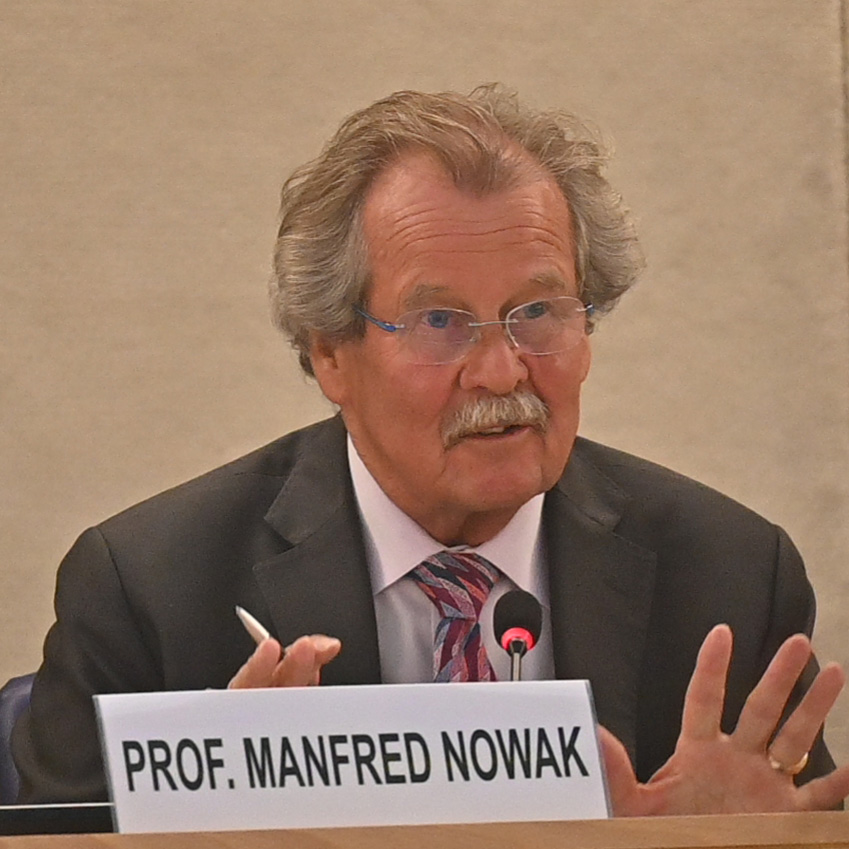
Manfred Nowak is an Austrian international human rights lawyer and professor with a distinguished career. He served as UN Special Rapporteur on Torture from 2004 to 2010, conducting crucial missions and authoring major reports, including one on Guantánamo. Since 2016, he has been the Secretary General of the Global Campus of Human Rights in Venice, and he is also the Scientific Director of the Vienna MA in Applied Human Rights. Professor Nowak co-founded and formerly co-directed the Ludwig Boltzmann Institute of Human Rights in Vienna. His extensive experience also includes roles as a judge at the Human Rights Chamber for Bosnia and Herzegovina (1996–2003), a UN expert on enforced disappearances (1993–2006), and the Independent Expert for the United Nations Global Study on Children Deprived of Liberty. He was also a member of the international panel of experts that adopted the Yogyakarta Principles.
- Details
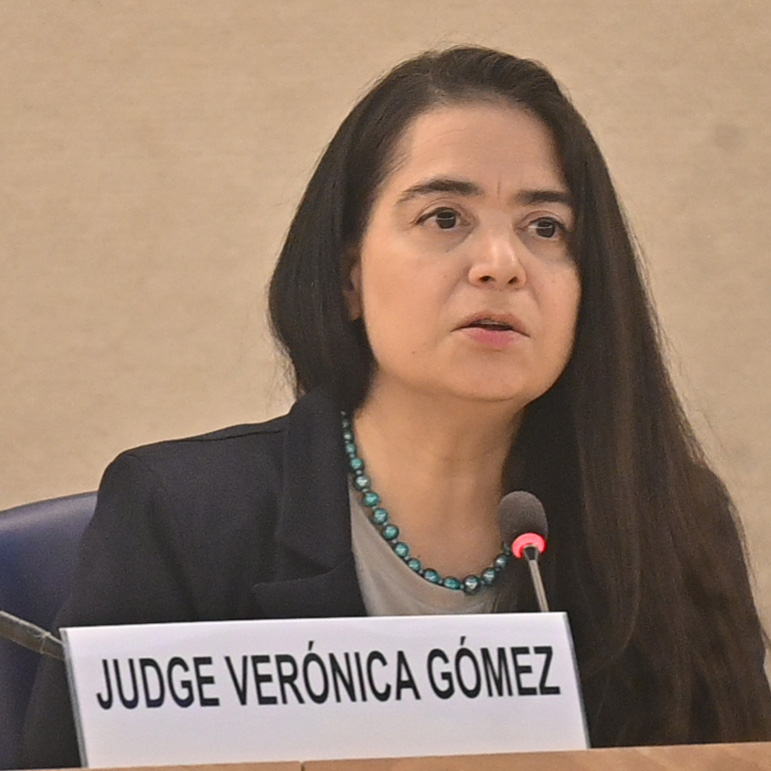
Veronica Gomez is a sitting Judge on the Inter-American Court of Human Rights (2023–2028), elected by the Organisation of American States in November 2021 and sworn in in 2022. She previously served as President of the Global Campus of Human Rights (2019–2023) and is currently the Director for Education at the International Center for Political Studies (Centro Internacional de Estudios Políticos) at Argentina's Universidad Nacional de San Martín (UNSAM). From 1998 to 2009, she was a Principal Specialist at the Inter-American Commission on Human Rights (IACHR), where she made significant contributions to the Inter-American human rights system.
- Details
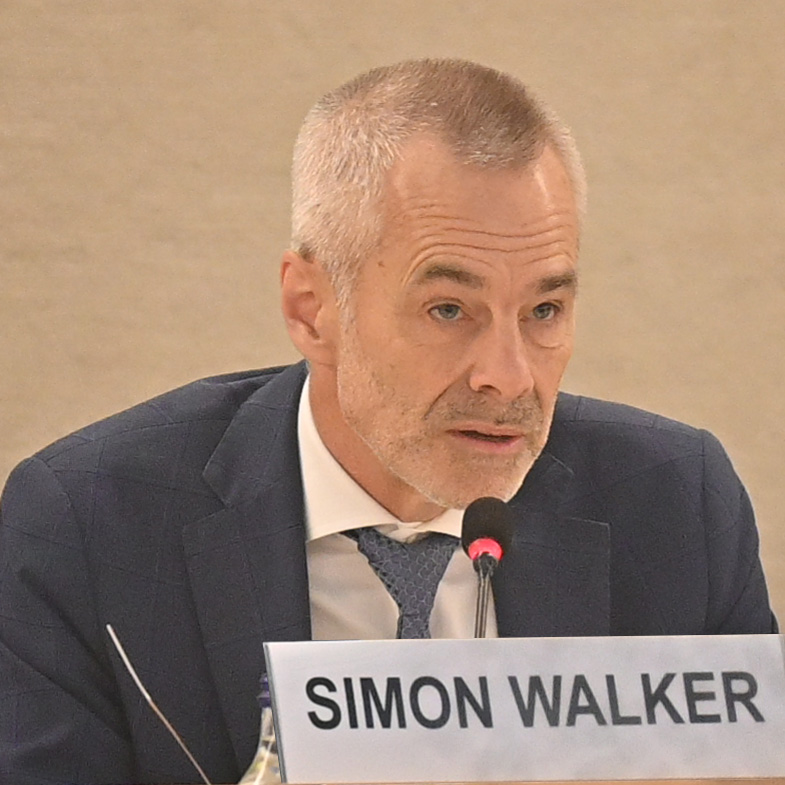
Simon Walker is a seasoned human rights lawyer and international civil servant. He currently serves as Chief of the Rule of Law and Democracy Section at the Office of the High Commissioner for Human Rights (OHCHR), where he leads a team of experts working on a broad range of issues, including the administration of justice, counter-terrorism and human rights, the abolition of the death penalty, drug policy and human rights, conditions of detention, media freedom and the safety of journalists, democracy, transitional justice, and human rights in armed conflict.
Previously, he served as Chief of Section One in the Human Rights Treaties Branch (2011–January 2022) and as Representative of the OHCHR in Cambodia.
- Details
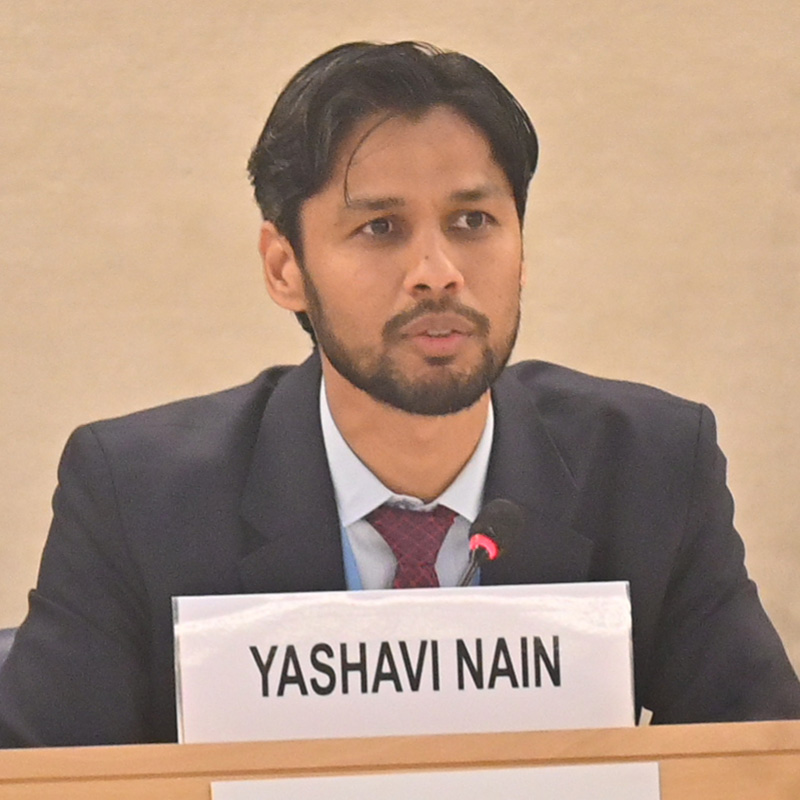
Yashasvi Nain is an international human rights lawyer currently serving as Human Rights Advisor at the Permanent Delegation of the Commonwealth to the United Nations in Geneva. In this role, he assists Commonwealth member states, especially Small Island Developing States (SIDS) and Least Developed Countries (LDCs), in navigating UN human rights mechanisms like the Human Rights Council and treaty bodies. Previously, he led international advocacy at the Commonwealth Human Rights Initiative. Mr. Nain brings extensive experience in migration, statelessness, and refugee law from his time at the Office of the UN High Commissioner for Human Rights (OHCHR) and the UN High Commissioner for Refugees (UNHCR). He holds a B.A., LL.B. (Hons) from Rajiv Gandhi National University of Law, India, and a Master’s in Law from the Geneva Academy, where he was a Hans Wilsdorf Scholar.
- Details
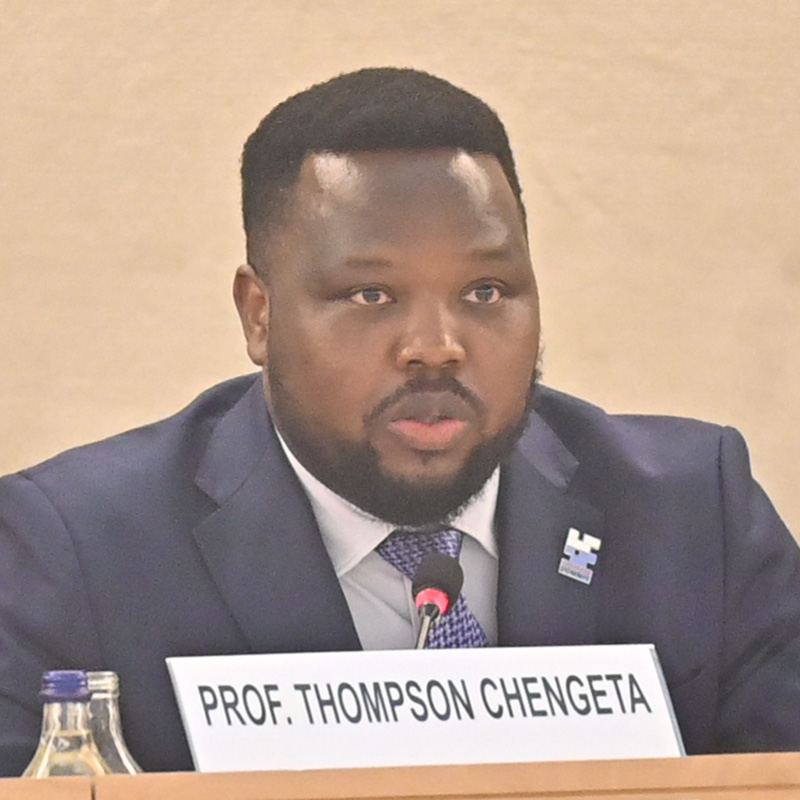
Thompson Chengeta is a Professor at the School of Law, Liverpool John Moores University (appointed in 2024), specialising in autonomous weapon systems, AI ethics, and drone regulation. He is a leading voice in these fields, serving on the International Panel on the Regulation of Autonomous Weapons and as Lead Campaigner for Africa with the Campaign to Stop Killer Robots. Professor Chengeta is also the Principal Investigator for the African Commission on Human and Peoples' Rights’ study on the human rights implications of AI, robotics, and emerging technologies. His expertise is further recognised through his appointment to the UN Secretary-General’s Advisory Body on Disarmament Matters and his role as Legal expert and advisor for the International Committee for Robot Arms Control.
- Details
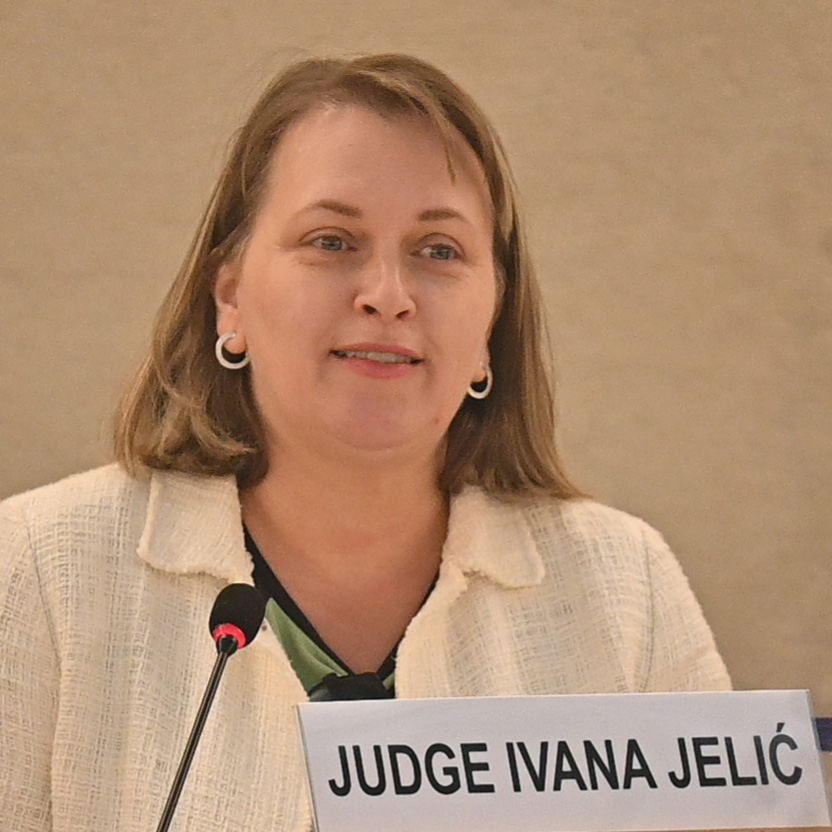
Ivana Jelić is a Judge at the European Court of Human Rights, elected in respect of Montenegro in July 2018, with her term running until 2027. She has served as Vice-President of the Court since November 1, 2024, and as President of her Section since July 2024. Judge Jelić's prior experience includes roles as an Associate Professor at the University of Montenegro and as a Member (2012-2016) and Vice-Chair (2014-2016) of the Advisory Committee on the Framework Convention for the Protection of National Minorities (ACFC) at the Council of Europe. She was also a Member (2015-2018) and Vice-President (2017-2018) of the United Nations Human Rights Committee.
- Details
As Cameroon approaches its presidential election on October 12, 2025, it is reported that the political atmosphere is marked by uncertainty, frustration, and a sense of democratic fatigue. The incumbent President Paul Biya, now 92 years old and the world’s oldest serving head of state, has officially announced his candidacy for an eighth term. The announcement was posted via verified social media channels. Biya, having ruled Cameroon since 1982, his re-election bid, though widely anticipated and predictable, has reignited contentious debates over legitimacy, succession, and the future of democracy in Cameroon. Biya’s announcement comes amid mounting concerns about his fitness to govern, especially considering his age and regular absence from the public eye, which has fuelled speculation about his health and capacity.



